RIGHTS GUIDE INTERNATIONAL
BAYLOR UNIVERSITY PRESS
DUKE UNIVERSITY PRESS SYRACUSE UNIVERSITY PRESS
TEXAS TECH UNIVERSITY PRESS
UNIVERSITY OF GEORGIA PRESS
UNIVERSITY OF NEBRASKA PRESS
UNIVERSITY OF NEW MEXICO PRESS
UNIVERSITY OF NORTH CAROLINA PRESS
UNIVERSITY OF OKLAHOMA PRESS
VANDERBILT UNIVERSITY PRESS
FALL 2023
Contents
Contacts
For the sale of translation rights, please contact the following subagents:
Albania, Belarus, Bosnia, Bulgaria, Croatia, Georgia, Macedonia, Montenegro, Romania, Serbia
Slovenia and Ukraine
LIVIA STOIA AGENCY
livia.stoia@liviastoiaagency.ro
00 (40) 21 222 95 82
Arabic DAR CHERLIN amelie@darcherlin.com
China and Taiwan
BARDON-CHINESE MEDIA AGENCY david@bardonchinese.com
886 2 2364 4995
France
ANNA JAROTA AGENCY megan@ajafr.com
0033 0 1 45 75 21 28
Germany BERLIN AGENCY jung-lindemann@berlinagency.de
Greece
READ N’ RIGHT AGENCY nike@readnright.gr 3022210 29798
Hungary
ANNA JAROTA AGENCY dominika@ajapl.com 0048500867656
Indonesia
MAXIMA CREATIVE AGENCY santo@maximacreativeliterary.com 62 21 70010541
Italy
THE REISER AGENCY segreteria@reiseragency.it
Japan
TUTTLE-MORI AGENCY fumika-ogihara@tuttlemori.com
81 3 3230 4081
Korea
DURAN KIM AGENCY
Duran@durankim.com
82 2 583 5724
Poland
ANNA JAROTA AGENCY dominika@ajapl.com 0048500867656
Russia
ALEXANDER KORZHENEVSKI AGENCY
Alex.akagency@gmail.com
31 020 616 0940
South Asia
SURIT MITRA suritmaya@gmail.com
Spain, Portugal, Brazil, and Latin America AGENCIA LITERARIA RAQUEL DE LA CONCHA
Beatriz.coll@rdclitera.com
Turkey
NURCIHAN KESIM® LITERARY AGENCY
filiz@nurcihankesim.net
90 216 511 56 86
All other territories
Jennifer Schaper jennifer.schaper@duke.edu
Vanderbilt University Press 1 University of North Carolina Press 7 University of New Mexico Press 17 University of Nebraska Press 25 University of Georgia Press 41 Texas Tech University Press 45 Syracuse University Press 53 University of Oklahoma Press 59 Duke University Press 62 Baylor University Press 99
Cover credit: Based on the cover of Beyond the Sovereign Self: Aesthetic Autonomy from the Avant-Garde to Socially Engaged Art by Grant H. Kester (Duke University Press, 2024) designed by Mattson Gallagher.
Vanderbilt University Press
About Vanderbilt University Press

Established in 1940, Vanderbilt University Press is the principal publishing arm of one of the nation’s leading research universities. The Press’s primary mission is to select, produce, market, and disseminate scholarly publications of outstanding quality and originality. In conjunction with the long-term development of its editorial program, the Press draws on and supports the intellectual activities of the university and its faculty. Although its main emphasis falls in the area of scholarly publishing, the Press also publishes books of substance and significance that are of interest to the general public, including regional books. In this regard, the Press also supports Vanderbilt’s service and outreach to the larger local and national community.
The editorial interests of Vanderbilt University Press include most areas of the humanities and social sciences, as well as health care and education. The Press seeks intellectually provocative and socially significant works in these areas, as well as works that are interdisciplinary or that blend scholarly and practical concerns. At present, Vanderbilt publishes around twenty-five new titles each year.
vanderbiltuniversitypress.com
Samurai in the Land of the Gaucho
Transpacific Modernity and Nikkei Literature in Argentina
KOICHI HAGIMOTO
In the early twentieth century, historical imaginings of Japan contributed to the Argentine vision of “transpacific modernity.” Intellectuals such as Eduardo Wilde and Manuel Domecq García celebrated Japanese customs and traditions as important values that could be integrated into Argentine society. But a new generation of Nikkei or Japanese Argentines is rewriting this conventional narrative in the twenty-first century. Nikkei writers such as Maximiliano Matayoshi and Alejandra Kamiya are challenging the earlier, unapologetic view of Japan based on their own immigrant experiences.
Compared to the experience of political persecution against Japanese immigrants in Brazil and Peru, the Japanese in Argentina generally lived under a more agreeable sociopolitical climate. In order to understand the “positive” perception of Japan in Argentine history and literature, Samurai in the Land of the Gaucho turns to the current debate on race in Argentina, particularly as it relates to the discourse of whiteness. One of the central arguments is that Argentina’s century-old interest in Japan represents a disguised method of (re)claiming its white, Western identity.
Through close readings of diverse genres (travel writing, essay, novel, short story, and film) Samurai in the Land of the Gaucho yields a multilayered analysis in order to underline the role Japan has played in both defining and defying Argentine modernity from the twentieth century to the present.
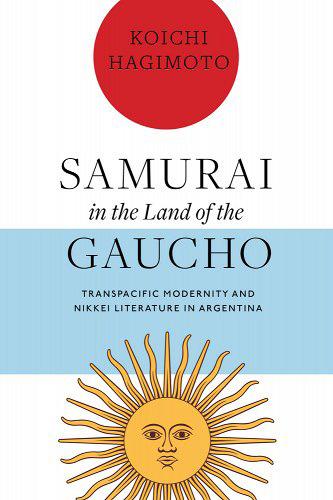
July 2023
212 pages
Latin American Studies / Asian Studies
Rights: World
1
Koichi Hagimoto is an associate professor of Spanish at Wellesley College.
September 2023
278 pages
Social Science / Media Studies
Rights: World
Performing Populism
Visions of Spanish Politics from 15-M to Podemos RUBEN PEREZ-HIDALGO
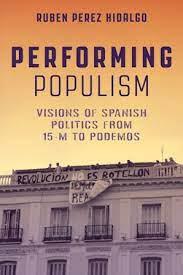
From electoral posters to fiction films, documentaries, and internet memes, Performing Populism traces the ways that collective Spanish identities evolved from a period when “the people” seemed to have been willingly subsumed under the apathetic ideation of the middle-class consumer to the moment in 2011 when a crisis of representation forced many into political consciousness. This rude awakening kickstarted the reconstruction of a Spanish “us” that staged exhibitions of popular will on par with and parallel to the Arab Spring, but in a European register that embraced the countercultural through art that disremembered its political past but could not escape the ghostly shadow of its history.
Ruben Perez-Hidalgo is a lecturer of Spanish studies in the Department of Spanish and Latin American Studies at the University of Sydney.

The Paradox of Paradise
Creative Destruction and the Rise of Urban Coastal Tourism in Contemporary Spanish Culture
WILLIAM J. NICHOLS
The Paradox of Paradise focuses on the trajectory of urban coastal tourism in Spain from the late Franco years to the present through the lens of Spanish cultural production.

“Sun-and-fun” destinations like Torremolinos (located in the Costa del Sol) and Benidorm (located in the Costa Blanca) established a model for urban renewal that literally built the coasts to accommodate and expand foreign tourism as the driving force of the so-called Spanish Economic Miracle.
December 2023
272 pages
History / Europe
Rights: World
In addition to inserting the coasts into the scope of Iberian urban studies (typically dominated by studies of Madrid and Barcelona) this project breaks new ground by bringing to the fore unexplored cultural artifacts vital to the narrative of development along the coasts in Spain: in particular the ubiquitous tourist postcard, which advances not only the post-Franco economic miracle, but does so by highlighting the transformation of the actual Spanish landscape along its coasts.
William J. Nichols is an associate professor of Spanish literature and culture at Georgia State University.
2
The End of the Future
Trauma, Memory, and Reconciliation in Peruvian Amazonia BARTHOLOMEW DEAN
This book explores the complicated and confusing linkages between memory and trauma for individuals caught up in civil war and post-conflict reconciliation in the Peruvian Amazon's Huallaga Valley—an epicenter for leftist rebels and a booming shadow economy based on the extraction and circulation of cocaine. The End of the Future tells the story of the Túpac Amaru Revolutionary Movement's (Movimiento Revolucionario Túpac Amaru, MRTA) violent attempts to overthrow the state in the late 1980s and early 1990s from the perspective of the poorest residents of the lower Huallaga's Caynarachi Basin.
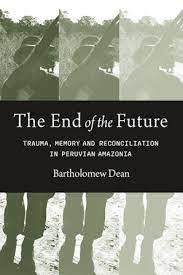
Bartholomew Dean is an associate professor of anthropology at the University of Kansas.
Latin America and the Transports of Opera Fragments of a Transatlantic Discourse ROBERTO IGNACIO DÍAZ

Latin America and the Transports of Opera studies a series of episodes in the historical and textual convergence of a hallowed art form and a part of the world often regarded as peripheral. Perhaps unexpectedly, the archives of opera generate new arguments about several issues at the heart of the established discussion about Latin America: the allure of European cultural models; the ambivalence of exoticism; the claims of nationalism and cosmopolitanism; and, ultimately, the place of the region in the global circulation of the arts. Opera’s transports concern literal and imagined journeys as well as the emotions that its stories and sounds trigger as they travel back and forth between Europe—the United States, too—and Latin America.
November 2023
288 pages
Social Science / Anthropology
Rights: World
November 2023
352 pages
Music / Genres & Styles
Rights: World
3 Vanderbilt University Press vanderbiltuniversitypress.com
Roberto Ignacio Díaz is an associate professor of Spanish and comparative literature at the University of Southern California.
December 2023
296 pages
Performing Arts / Theater
Rights: World
Sonic Strategies
Performing Mexico's War on Drugs, Mourning, and Feminicide
CHRISTINA BAKER
In Sonic Strategies, author Christina Baker highlights the tactics employed by contemporary performance artists in Mexico in response to the violence surrounding the government’s so-called War on Drugs. Taken together, the case studies in this book illuminate how critiques of the nation’s rising death tolls, governmental corruption, and gendered violence very literally sound, whether in Música de balas, a post-dramatic piece by Hugo Salcedo; the lamentations of the nation’s Antigones; satirical revisions of Mexican Golden Age film in the cabaret piece Nosotras las proles; or the story of transfeminicide in César Enríquez’s La Prietty Guoman by way of US pop music. By paying close attention to both planned and spontaneous sounds within live and textual experiences, Sonic Strategies contends that conscientious listening reveals dynamic practices that reside beyond the linguistic and embodied gesture.

Subjunctive Aesthetics

Mexican Cultural Production in the Era of Climate Change

CAROLYN FORNOFF
January 2024
288 pages
Literary Criticism
Rights: World
Studies indicate that Mexicans are more worried about climate change than any other global issue, more anxious about natural disasters than any other quotidian threat (including crime), and that suicide rates have risen along with temperatures. These fears are grounded in reality: in the last twenty years, Mexico issued more than 2,000 extreme weather warnings linked to hydrometeorological events, and ranked in the top ten countries in terms of absolute economic losses caused by (un)natural disasters. Mexico is also one of the deadliest countries in the world for environmental activists: in 2018 alone, twenty-one defenders of the land were murdered, and many others criminalized or intimidated. Social anxiety in Mexico about ongoing and future climate change is reflected in the outpouring of eco-cultural production over the past decade, a body of work that has yet to be comprehensively studied. The exponential explosion of cultural responses to climate change is not limited to any one genre: Mexican poets like Karen Villeda and Isabel Zapata have thematized extinction, sci-fi writer Alberto Chimal recently published a dystopian young adult climate fiction, and performance artist Naomi Rincón Gallardo has created works that contest extractivism’s murderous tactics. Subjunctive Aesthetics brings together these artists and others to collate a diverse constellation of Mexican cultural responses to climate change that index the multifaceted nature of this crisis.
4
Christina Baker is an assistant professor of Latin/x American theater and performance at Temple University.
Carolyn Fornoff is an assistant professor of Latin American literatures and cultures in the Department of Spanish and Portuguese at the University of Illinois at Urbana-Champaign.
The End of Catholic Mexico
Causes and Consequences of the Mexican Reforma (1855-1861)
DAVID ALLEN GILBERT
In The End of Catholic Mexico: Causes and Consequences of the Mexican Reforma (1855-1861), historian David A. Gilbert provides a new interpretation of one of the defining events of Mexican history: the Reforma. During this period, Mexico transformed from a Catholic confessional state to a modern secular nation, sparking a three-year civil war in the process. While past accounts of the Reforma have foregrounded its class dimensions and portrayed it as a liberal triumph over conservative elites, Gilbert instead argues that the Reforma was a religious war fueled two competing interpretations of the Catholic faith. These competing interpretations, Gilbert contends, generated sharp disagreements about Mexico's future, which further polarized the country and led to a culture war centered on religion.
Gilbert's fresh account of this pivotal moment in Mexican history will be of interest to scholars of Latin American religious history, nineteenth-century church history, and U.S. historians of the antebellum republic.
David A. Gilbert is a professor of history at Clayton State University.
Eyes on Amazonia
Transnational Perspectives on the Rubber Boom Frontier
JESSICA CAREY-WEBB
The Amazon extends across nine countries, encompasses forty percent of South America, and hosts four European languages and more than three hundred indigenous languages and cultures. Eyes on Amazonia: Transnational Perspectives on the Rubber Boom Frontier is a fascinating exploration how Latin American, European, and U.S. intellectuals imagined and represented the Amazon region during the late nineteenth and early twentieth centuries. This multi-faceted study, which draws on a range of literary and non-literary texts and visual sources, examines the complex ways that race, gender, representation, mobility, empire, modernity, and personal identity have indelibly shaped how the region was and is seen. In doing so, the book argues that representations of the Amazon as a backward region in need of the civilizing influence of colonialism and modernization served to legitimize and justify imperial control.
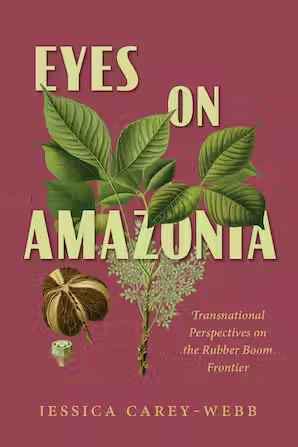
Eyes on Amazonia operates in cultural geography, ecocriticism, and visual cultural analysis. The diverse and fascinating documents and images examined in Eyes on Amazonia capture the modernizing project of this region at a crucial juncture in its long history: the early twentieth century rubber boom.
March 2024
256 pages
History / Latin America / Mexico Rights: World
February 2024
288 pages
Political Science / Imperialism Rights: World
5 Vanderbilt University Press vanderbiltuniversitypress.com
Jessica Carey-Webb is an assistant professor of Spanish and Portuguese at the University of New Mexico.
February 2024
244 pages
History / Social History
Rights: World
Biocosmism
Vitality and the Utopian Imagination in Postrevolutionary Mexico JORGE QUINTANA NAVARRETE
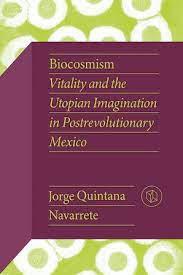
Most scholars study postrevolutionary Mexican culture as a period in which cultural production significantly shaped national identity through murals, novels, essays, and other artifacts that registered the changing political and social realities in the wake of the Revolution. In Biocosmism, Jorge Quintana Navarrete shifts the focus to examine how a group of scientists, artists, and philosophers conceived the manifold relations of the human species with cosmological forces and nonhuman entities (animals, plants, inorganic matter, celestial bodies, among others).
Drawing from recent theoretical trends in new materialisms, biopolitics, and posthumanism, this book traces for the first time the intellectual constellation of biocosmism or biocosmic thought: the study of universal life understood as the vital vibrancy that animates everything in the cosmos from inorganic matter to living organisms to outer space. It combines both analysis of unexplored areas—such as Alfonso L. Herrera’s plasmogeny—and innovative readings of canonical texts like Vasconcelos’s La raza cósmica to examine how biocomism produced a wide array of utopian projects and theorizations that continue to challenge anthropocentric, biopolitical frameworks.
Jorge Quintana Navarrete is an assistant professor of Spanish at Dartmouth University.
The Rights of Nature and the Testimony of Things
June 2024
288 pages
Political Science / Public Policy / Environmental Policy Rights: World
Literature and Environmental Ethics from Latin America MARK ANDERSON
The Rights of Nature and The Testimony of Things: Literature and Environmental Ethics from Latin America begins by analyzing the ethical debates and political contexts relating to Latin American “rights of nature” legislation and the political ontology of nonhuman political speech within a framework of intercultural and multispecies diplomacy. Anderson shows how these political ontologies work in Latin American writing on animal ethics, since animal rights are often considered the bridge between human rights and the rights of nature.
In addition to legal frameworks, Anderson looks at Latin American literary contributions and how they can complicate our understanding of the philosophy of ethics he explores in terms of human and nonhuman relation and obligation. He expands this discussion into the cosmopolitics of human-plant assemblages, which leads to a formulation of environmental ethics centered on the collective, multispecies work of maintaining environments and ecological cycles, as well as responding to the critical roles that disability and reciprocal care play within this ethics. Finally, the author analyzes the points of connection and divergences between Latin American relational ontologies and Euro-American posthumanist theories within indigenous Latin American re-modernization projects that reappropriate and repurpose ancestral practices as well as developing new technologies with the goal of forging an alternative modernity compatible with a livable future for all species.
Mark Anderson is an associate professor at the University of Georgia. He is the author of Disaster Writing: The Cultural Politics of Catastrophe in Latin America

6
University of North Carolina Press
About University of North Carolina Press
The University of North Carolina Press, a nonprofit publisher of both scholarly and general-interest books and journals, operates simultaneously in a business environment and in the world of scholarship and ideas. The Press advances the University’s triple mission of teaching, research, and public service by publishing first-rate books and journals for students, scholars, and general readers. The Press has earned a distinguished reputation by publishing excellent work from the nation’s leading scholars, writers, and intellectuals and by presenting that work effectively to wide-ranging audiences.
Established in 1922, unc Press was the first university press in the South and one of the first in the nation. Our regional publishing program—aimed at general readers and offering engaging, authoritative work on all aspects of the region’s history and culture, its natural and built environment, its music, food, literature, geography, plant and animal life—has been widely adopted in other parts of the country. Over the years, Press books have won hundreds of prestigious awards including the Pulitzer Prize and the National Book Award and those of many national scholarly societies. Today, the imprint of unc Press is recognized worldwide as a mark of publishing excellence—both for what we publish and for how we publish. uncpress.org
The Ethics of Cities
Shaping Policy for a Sustainable and Just Future TIMOTHY BEATLEY
Ethical dilemmas and value conflicts affect cities globally, but urban leaders and citizens often avoid confronting them directly and instead view the governance of cities as primarily an administrative task or, even worse, a merely political one. Timothy Beatley challenges readers to consider the issues in our cities not simply as legal or economic problems but as moral ones, asking readers “How can a city become more ethical?” Beatley exposes, explores, and unearths the many ethical questions cities face today and touches on many topics, from privacy and crime to racism and the ethics of public space. Drawing from recent policy debates and using extensive specific examples to highlight complex ethical dilemmas, Beatley argues that cities must expand the definition of the moral community to all their citizenry.
Cities must take profound steps to address social injustice and must plan for climate change—both as moral obligations—and this approachable and readable introduction to moral philosophy, urban planning, and social justice will help new generations to grapple with these global issues.
Timothy Beatley is the Teresa Heinz Professor of Sustainable Communities in the Department of Urban and Environmental Planning at the School of Architecture at the University of Virginia and is the author of several books, including Ethical Land Use: Principles of Policy and Planning
April 2024
256 pages
Urban Studies / Environmental Studies
Rights: World
7
October 2023
224 pages
Music / Popular Culture
Rights: World
High Bias
The Distorted History of the Cassette Tape
MARC MASTERS
The cassette tape holds a strange place in the history of contemporary music. To many audiophiles, the medium falls short of vinyl, CDs, and even streaming. However, it was the first mass-produced music format that was affordable and offered the unprecedented ability to copy and share music. Its popularity boomed in the 70s and 80s. From concert bootlegs to high school mixtapes, the humble cassette held the promise of freedom and self-expression to generations of music lovers. Marc Masters charts the surprising ups and downs of the cassette tape’s journey through international music culture. Masters explores the cultural impact of cassettes on music listening, on music portability, and on music making itself. This includes early hip-hop tape trading, the deeply personal act of making a mixtape, and even contemporary composers who use cassettes to create musique concrète compositions and the current generation of tape-only music labels. Capturing the resilient do-it-yourself spirit of cassettes through conversations with scene-setters, deep explorations into musical history, and engaging prose, this book promises to be the most comprehensive look at how cassettes have changed music while also serving as a vivid tribute to a format that refuses to fade away.
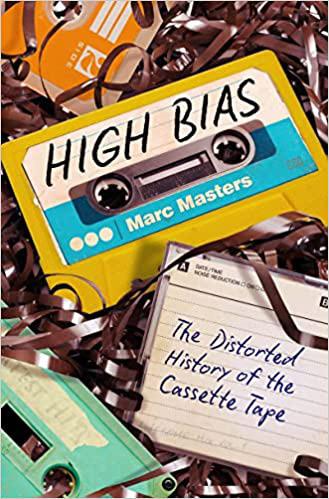
Far from the Rooftop of the World
Travels among Tibetan Refugees across Four Continents

AMY YEE, WITH A F oreword by HIS HOLINESS THE DALAI LAMA
October 2023
272 pages
Asian Studies / Political History / Religion Rights: World
When journalist Amy Yee first visited Dharamsala, the Dalai Lama’s exile home in the foothills of India’s Himalayas, she was drawn to the stories of Tibetan exiles who lived there. But she never imagined the 2008 trip would result in a global, fourteen-year journey to document the experiences of Tibetan refugees who make their way in the world far from home. As she explores what it means for people to retain a strong cultural and religious identity in exile, Yee immerses herself in Dharamsala and meets Tibetans from all walks of life: spiritual leaders, exile government politicians, monks and nuns, teachers, students, activists, former political prisoners, Chinese democracy activists, and Tibetans born in India as well as new refugees. She comes to know ordinary people like Thukjee, a monk and unlikely veterinary assistant; Ngawang, a cook and political refugee; and Deckyi and Dhondup, a married couple who fled middle-class lives in Lhasa during the 2008 clashes between Tibetans and the Chinese government. As Yee's new friends seek homes beyond Dharamsala, Yee follows them to other parts of India, and across oceans to Australia, Belgium, and the United States. Weaving reportage and travel narrative, Far from the Rooftop of the World tells these stories and others against the backdrop of milestones and events in Tibet’s recent history—some memorable, too many tragic. The resulting portrait illuminates the humanity, strength, and generosity of a people facing great adversity.
Amy Yee is a journalist with Bloomberg News.
8
Marc Masters is a music journalist whose work has appeared in The Washington Post, NPR, Pitchfork, Rolling Stone, The Village Voice, and The Washington City Paper and is the author of No Wave
Remembering Conquest
Mexican Americans, Memory, and Citizenship OMAR VALERIO-JIMÉNEZ
Remembering Conquest analyzes the ways collective memories of the US-Mexico War have shaped Mexican Americans' civil rights struggles over several generations. As the first Latinx people incorporated into the nation, Mexican Americans were offered US citizenship by the Treaty of Guadalupe Hidalgo, which ended the war. Because the 1790 Naturalization Act declared whites solely eligible for citizenship, the treaty pronounced Mexican Americans to be legally white. While their incorporation as citizens appeared as progress towards racial justice and the electorate's diversification, their second-class citizenship demonstrated a retrenchment in racial progress. Over several generations, civil rights activists summoned conquest memories to link Mexican Americans' poverty, electoral disenfranchisement, low educational attainment, and health disparities to structural and institutional inequalities resulting from racial retrenchments. Activists also recalled the treaty's citizenship guarantees to push for property rights, protection from vigilante attacks, and educational reform.
Omar Valerio-Jiménez addresses the politics of memory by exploring how succeeding generations reinforced or modified earlier memories of conquest according to their contemporary social and political contexts. Remembering Conquest also examines collective memories in the US and Mexico to illustrate transnational influences on Mexican Americans, and to demonstrate how community and national memories can be used strategically to advance political agendas.
Truffles and Trash
Recirculating Food in a Social Welfare State KELLY ALEXANDER
On a fragile planet with a growing population, shrinking natural resources, and spreading food insecurity, food waste is a social, political, and ethical problem. In Truffles and Trash, Kelly Alexander follows collaborative, sometimes scrappy institutional and community efforts to recuperate and redistribute food waste in Brussels, Belgium. She offers a close analysis of three sites: a food bank with ties to the E.U.; a “social restaurant” serving low-cost meals made from unsellable donated food prepared and served by an emergent immigrant labor force; and, finally, a social inclusion program in an urban market with a weekly “zero food waste” pop-up café. Alexander illustrates how these efforts, in concert with innovative policy, effectively recirculate surplus discarded but edible food to new publics who can use it. According to Alexander, the models face big challenges, including reproducing the very power dynamics across race, class, and citizenship status that they seek to circumvent. They mirror the tensions and challenges of the everyday operations of the European social welfare state, which is increasingly reliant on NGOs to meet its provisioning promises. Yet, she finds that they also successfully move the needle forward in reducing food waste across one city, providing a model for major urban centers around the world.
Kelly Alexander is assistant professor and George B. Tindall Fellow of American Studies at The University of North Carolina-Chapel Hill.
April 2024
368 pages
Latin American & Caribbean Studies
Rights: World
June 2024
224 pages
Food Studies / Environmental Studies
Rights: World
9 University of North Carolina Press uncpress.org
Omar Valerio-Jiménez is professor of history at the University of Texas at San Antonio.
February
Everywhere the Undrowned A Memoir of Survival and Imagination STEPHANIE CLARE SMITH
This is what it is to survive. You find what floats and you hold on. Even if it is smaller than you. Holding on is all fourteen-year-old Stephanie Clare Smith can do when she's left home alone in New Orleans during the summer of 1973. As she seeks to ease her solitude through her summer school algebra class, the city itself, and her friendship with a streetcar operator, adults—particularly men—fail her again and again, with devastating consequences. Dreamlike and beautifully paced, this lyrical debut memoir traces the events of one harrowing summer and its repercussions throughout Stephanie's life, including in her career as a mediator for families in crisis, and as a caregiver for the mother who, all those years ago, abandoned her. Stephanie's hard-won survival echoes that of countless other survivors whose stories are never told, and her strength stands as a testament to the powers of creativity.
Award-winning poet and essayist Stephanie Clare Smith is a clinical social worker and mediator who works with at-risk families in the judicial system.
Brown Women Have Everything
Meditations on Witches, Wives, and Goddesses
Spring 2024
200 pages
Memoir / Essay
Rights: World English
SAYANTANI DASGUPTA
This is an essay collection exploring global women's interior lives and how they contrast sharply from their outer lives, irrespective of geography, class, socio-religious status, age, and the color of their skin. It covers urgent and huge subjects such as body image, citizenship, workplace culture, mass shootings, and climate change. But it also includes “quiet,” intimate subjects. Such as women and their relationship with hair; the Biblical heroine Judith; the city of Beaufort, North Carolina, where lies the grave of a six-year-old girl buried in a keg of rum; the chaos of putting together a wedding when the traditions one has grown up with aren’t available.Interspersed are stories of interests in food, religion, mythology, popular culture, women’s history, cinema, art, and travel.
Born in Calcutta and raised in New Delhi, Sayantani Dasgupta is an Assistant Professor of Creative Writing at the University of North Carolina, Wilmington. She is the author of Women Who Misbehave (Penguin Random House), Fire Girl: Essays on India, America, & the In-Between (Two Sylvias Press) & the chapbook The House of Nails: Memories of a New Delhi Childhood (Red Bird Press).
10
2024
128 pages Memoir / Creative Nonfiction Rights: World
Sharing Yerba Mate
How South America's Most Popular Drink Defined a Region

REBEKAH E. PITE
Made from a species of holly called Ilex paraguariensis A., yerba mate (also known as maté and ka’a) is one of the most distinctive, stimulating, and widely consumed beverages in South America. Since the 1970s, yerba mate has become increasingly popular in the United States (where it is mixed into energy drinks) and other parts of the world, such as Syria and Lebanon, who import it from Argentina. Like so many foods, yerba mate is far more than an ingestible commodity—it possesses social, cultural, economic, and political meanings that change over time and serves different functions for different consumers. In the modern era, for example, friends and families from a wide variety of socio-economic backgrounds gather in parks to socialize over a round of mate, students sip it while studying, and others consume it during a work break. Many engage in a longstanding ritual by enjoying it communally sharing the same cup and drinking through the same straw. With lively prose and vivid illustrations, Rebekah Pite reveals the plant’s long history as a drink, a key commodity, and a ritual.
The Edwin Fox
September 2023
296 pages
Latin American & Caribbean Studies / Food Studies
Rights: World
The Extraordinary Story of How an Ordinary Sailing
Ship Connected the World in the Age of Globalization
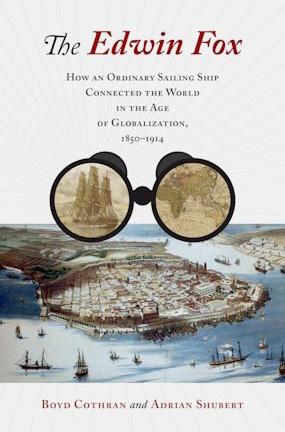 BOYD COTHRAN AND ADRIAN SHUBERT
BOYD COTHRAN AND ADRIAN SHUBERT
The Edwin Fox was an ordinary ship in an extraordinary age. Built in Calcutta in 1853, the vessel was used, sold, recommissioned, and refitted over some sixty years by an increasingly far flung constellati19th Centruyon of national militaries, merchants, and others. Chartered by the British navy as a troop transport during the Crimean War, it subsequently carried indentured laborers from China to Cuba, transported convicts from the United Kingdom and its empire to be settled in western Australia, and carried every imaginable cargo around the world. In 1885, after the ship was well past its prime, it was converted into a floating freezer unit for the emerging trade in frozen lamb between New Zealand and Great Britain. Today it rests in the harbor of a small town in New Zealand's Marlborough region and serves as a public history museum. Using every record they could discover about the history and voyages of the Edwin Fox and placing the ship's story in broad context, Boyd Cothran and Adrian Shubert have produced an engagingly written narrative that presents the history and processes of globalization from the deck and holds of a single vessel.
Boyd Cothran is associate professor of history at York University. Adrian Shubert is professor emeritus at York University.
January 2024
304 pages History
Rights: World
11 University of North Carolina Press uncpress.org
Rebekah E. Pite is associate professor of history at Lafayette College.
September 2023
224 pages
Religion / African & African Diaspora Studies
Rights: World
I Cannot Write My Life Islam, Arabic, and Slavery in Omar ibn Said's America
 MBAYE LO AND CARL W. ERNST
MBAYE LO AND CARL W. ERNST
This work centers on the life and writing of Omar Ibn Said, born in 1770 in a border region between Senegal and Mauritania that played a significant role in Islamic nations. Omar studied for 25 years at an Islamic seminary and was poised to become a leader in the faith, but after being captured by an invading army, he fell into the hands of transatlantic slave traders. He was sold to a plantation owner near Charleston, SC, in 1808, but he escaped two years later and fled as far as Fayetteville, NC. There he was arrested and jailed, but attracted attention from his jailers for strange signs he wrote on the walls—understood to be Arabic. He was soon enslaved again and died in 1863 before he could achieve liberation under the Emancipation Proclamation. What we know of Omar’s life comes largely from a series of brief autobiographical writings and transcriptions, comprising the only known narrative written in Arabic by an enslaved person in North America. Lo and Ernst weave fresh and accurate translations of Omar’s writing together with context and interpretation to provide the fullest possible account of this Islamic scholar’s life and significance.
Mbaye Bashir Lo is associate professor of the Practice of Asian and Middle Eastern Studies at Duke University. Carl Ernst is William R. Kenan Jr. Distinguished Professor Emeritus of Religious Studies at the University of North Carolina at Chapel Hill.
Captivity's Collections Science, Natural History, and the British Transatlantic Slave Trade KATHLEEN S. MURPHY
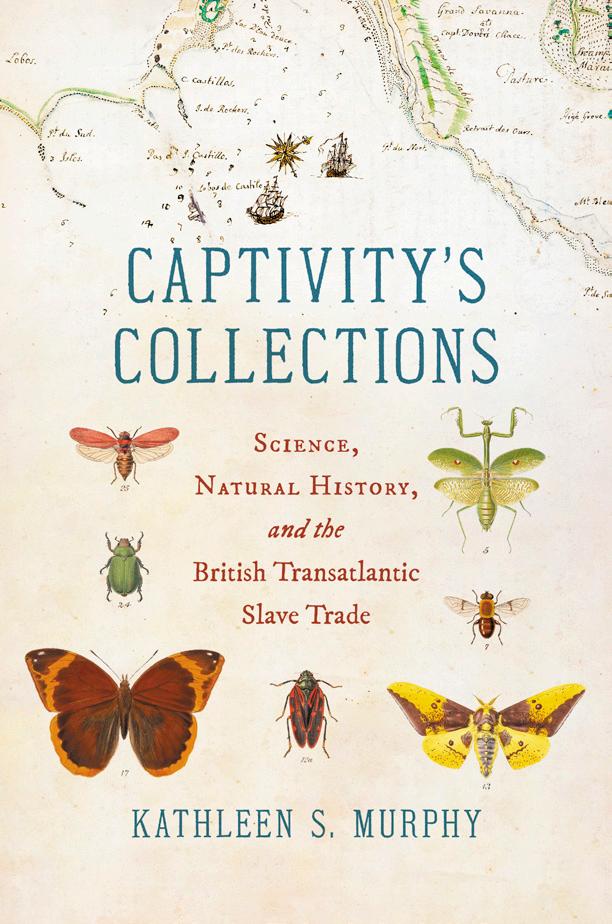
October 2023
272 pages
History / African & African Diaspora Studies / Natural History
Rights: World
Basil from Africa’s Gold Coast, butterflies from Sierra Leone, jalap root from Veracruz, Balsam of Tolu from Colombia—in the eighteenth century, these species from faraway corners of the Atlantic were tucked away onboard a British slaving vessel. In looking to the development of British science in the eighteenth century, Kathleen S. Murphy reveals that the era’s explosion of new natural knowledge was deeply connected to the circulation of objects, ideas, and individuals through the networks of the British transatlantic slave trade. Plants, insects, shells, and seeds were gathered by Britons employed on slaving vessels, at British slaving factories in West Africa, in British American ports where captive Africans disembarked, and near the British South Sea Company’s trading factories in Spanish America. Grounded in extensive archival research in museums, libraries, and archives on both sides of the Atlantic, Captivity's Collections mines scientific treatises, slaving companies’ personal records, personal correspondence, and abolitionist literature to recover in rich detail the scope of the slave trade’s collecting operations, the crucial role of collection-holding museums on emerging ideas in natural history—like taxonomy—and even the influence of natural science on the development of the slave trade.
Kathleen S. Murphy is professor of history and associate dean for student success in the College of Liberal Arts at California Polytechnic State University.
12
Creatures of Fashion
Animals, Global Markets, and the Transformation of Patagonia
JOHN SOLURI
Creatures of Fashion explains how the commodification of furs and fibers provoked transformations in Tierra del Fuego and southern Patagonia, including the destruction of indigenous forager and hunting societies and the acceleration of animal exploitation, as the region was integrated into Argentina and Chile in the nineteenth and twentieth centuries. Drawing on a vast range of sources, Soluri traces the development of human-animal relationships from the nineteenth-century exploits of interloping sea hunters from the North Atlantic, to the violence-inflected rise of sheep ranching and wool production, to new forms of commercial guanaco and fox hunting, and, ultimately, the rise of “nature-based” tourism in the late twentieth century. Both commodity production and even conservation have relied on achieving ever greater control over the reproduction of animals. By following the movements of furs and fibers from the littorals and grasslands of Tierra del Fuego to the tanneries and textile mills in the North Atlantic, this book explores how the animality of fibers, human labor, and changing technologies and fashion tastes created value in capitalist markets.
Encyclopédie noire
The Making of Moreau de Saint-Méry's Intellectual World
 SARAH E. JOHNSON
SARAH E. JOHNSON
A lawyer, philosophe, polymath, and enslaver, Médéric-Louis-Élie Moreau de Saint-Méry remains essential to our knowledge of the French Caribbean. His six-volume Loix et Constitutions (1784-1790) and Description de la partie française de l’isle Saint-Domingue (1797-98) continue to provide contemporary scholars with unparalleled insight into legal, social, cultural, and scientific customs of the French Antilles, and his infamous description of the “128 degrees” between black and white racial groups serves as a touchstone for scholars tracing the development of race in the eighteenth-century Americas. But if all roads lead to Moreau, those roads were cut, paved, and maintained by the work of enslaved and free people of color. Their labor amassed wealth that afforded him the leisure to research, think, and write. Their rich intellectual and linguistic cultures were appropriated as fodder for his most applauded works. Treating Moreau as an unreliable center, Sara Johnson surrounds him with the members of his household—French and Afro Caribbean, free and enslaved—that he worked so hard to write out of the public version of his life story. Built out of archival fragments, creative speculation, and audacious intellectual courage, Encyclopédie noire is a communal biography of the women and men who made Moreau and his world.
Sara E. Johnson is associate professor of Literature of the Americas at the University of California, San Diego. She is also co-director of the Black Studies Project.
December 2023
240 pages
Latin American & Caribbean Studies / Natural History
Rights: World
December 2023
352 pages
Latin American & Caribbean Studies / African & African Diaspora Studies
Rights: World
13 University of North Carolina Press uncpress.org
John Soluri is associate professor of history at Carnegie Mellon University.
October 2023
416 pages
Latin American & Caribbean Studies / Political History
Rights: World
Awakening the Ashes
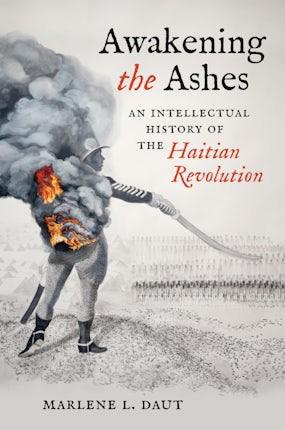
An Intellectual History of the Haitian Revolution
MARLENE L. DAUT
In this work, Marlene Daut presents an intellectual history of Saint Domingue, the Haitian Revolution, and early nineteenth-century Haiti. Situating Haitian writers, scholars, and political thinkers within the global history of ideas in an era known as the “Age of Revolution,” Daut argues for the recognition of Haiti’s intellectual impact. Daut’s key intervention is that Haitian historical writing was unique due to the sustained concern with the history of slavery and colonialism at the center of the Haitian independence movement. Both impacted by and influencing the increasing professionalization of history as an academic discipline, Haitian thinkers succeeded in building a more comparative and capacious understanding of global intellectual history. While the modern understanding of freedom and equality is often linked to the French Declaration of the Rights of Man or the US Declaration of Independence, Daut suggests that the more immediate reference is what she calls the 1804 Principle—that no human being should ever again be enslaved, an idea promulgated by the Black Haitians who succeeded against all odds in overturning the French empire on the island.
Marlene Daut is professor of French and African Diaspora Studies at Yale University.
Between Two Worlds
Jewish War Brides after the Holocaust
ROBIN JUDD
January 2024
352 pages
Jewish Studies / Military History
Rights: World
As the world tried to piece itself back together after World War II, European Jews faced the harrowing task of living with trauma, homelessness, poverty, and other consequences of the Nazi effort to eradicate them. Many Jewish survivors viewed marriage between Jewish brides and Allied military grooms as a way to move forward. Robin Judd, whose grandmother was a concentration camp survivor who married an American soldier after the war, has written the first history of the several hundred European and North African Jewish women who married members of the American, British, and Canadian armed forces following the end of World War II. Drawing on an extensive collection of primary sources including interviews, letters, immigration papers, newspapers, and more, Judd offers an intimate reconstruction of how these unions emerged, developed, and fared, from meeting and courtship to marriage and immigration, and finally to life in the United States, Canada, and the United Kingdom. The stories she tells are both restorative and heartbreaking, vividly capturing how the exhilaration of early romance and gratitude of leaving war-torn Europe co-existed, not always smoothly, with survivor guilt, trauma, and the challenges of moving to a new country and into new families.
Robin Judd is associate professor of history at The Ohio State University.
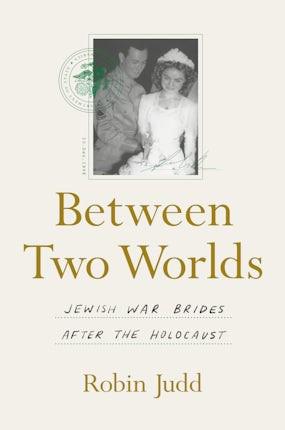
14
Who Is Muhammad?
 MICHAEL MUHAMMAD KNIGHT
MICHAEL MUHAMMAD KNIGHT
Combining a historical and religious studies overview with contemporary analysis, this book is designed to serve as a basic, comprehensive, concise introduction to the founder and central figure of the Islamic tradition: the prophet Muhammad. Through Muhammad’s life story, teachings, and daily practices (hadith)—as well as how his teachings are received, viewed, and practiced around the world—Michael Knight offers readers an insightful introduction to the Islamic tradition. In Knight’s analysis, Muhammad is placed as simultaneously one of the most beloved historical figures in the world, and also one of the most contested, challenged, and disparaged. Knight argues that there was never a collective Muslim vision of Muhammad, but always a multiplicity of Muslim imaginaries. While Muslims defend Muhammad’s legacy against Islamophobic polemics, they also challenge each other regarding the proper authorities through which Muhammad’s life and message become comprehensible and applicable in our world.
Michael Knight is assistant professor of philosophy at the University of Central Florida.
November 2023
208 pages
Religion
Rights: World
In Pursuit of Health Equity A History of Latin American Social Medicine
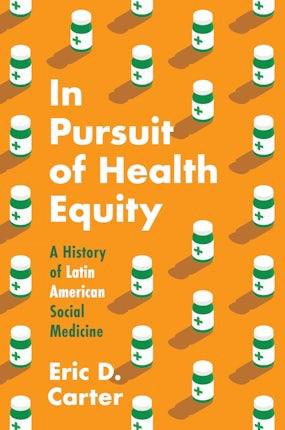
ERIC D. CARTER
Drawing on vast source materials, Eric D. Carter offers the first comprehensive intellectual and political history of the social medicine movement in Latin America, from the early twentieth century to the present day. While maintaining a consistent focus on health equity, social medicine has evolved with changing conditions, shaping early Latin American welfare states, declining with the dominance of mid-century technocratic health planning, resurging again in the 1970s in solidarity against authoritarian regimes, and later in resistance to neoliberal reforms of the health sector. The book tells the stories of socialist and anarchist doctors, political exiles, brilliant intellectuals, populist leaders, and rebellious technocrats, from Argentina, Chile, Brazil, and other countries to help make sense of Latin American social medicine, how it responds to and shapes a dynamic political environment, and how lessons from this movement might lead to new ways of thinking about how to achieve health equity in the twenty-first century.
Eric D. Carter is professor of geography and global health at Macalester College.
August 2023
320 pages
Health and Medicine
Rights: World
15 University of North Carolina Press uncpress.org
November 2023
320 pages
Latin American & Caribbean Studies / Health & Medicine
Rights: World
Surgery and Salvation
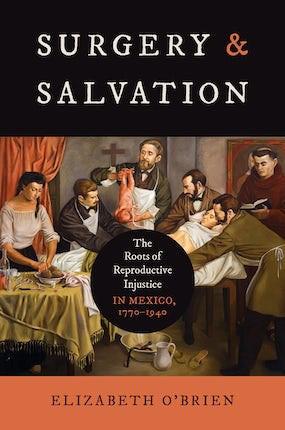
The Roots of Reproductive Injustice in Mexico, 1770–1940
ELIZABETH O’BRIEN
In this history of reproductive surgery in Mexico, Elizabeth O’Brien traces the intersection of religion, reproduction, and obstetric racism. Examining the relationship between medical ideas about surgical operations, Catholic theological debates, and evolving notions of modernity and Mexican identity, O’Brien argues that present-day claims about fetal personhood are rooted in the use of surgical force against marginalized and racialized women. This history illuminates the theological, patriarchal, and epistemological roots of obstetric violence and racism today.
16
Elizabeth O’Brien is assistant professor of the history of medicine at Johns Hopkins University.
University of New Mexico Press
About University of New Mexico Press
Established in 1929 by the Regents of the University of New Mexico, the University of New Mexico Press ranks within the top third of publishing houses in the Association of University Presses and is the fourth largest university press west of the Rocky Mountains in publishing new titles. With over 1,200 titles currently in print and as a distributor for local and regional publishers, the Press has been an important element in enhancing the scholarly reputation and worldwide visibility of the university.
The University of New Mexico Press participates in the public mission of the University of New Mexico through a publishing program that seeks to maintain the professional excellence of American university presses in general and to present the finest national and international scholarship in the academic areas in which we publish. We produce scholarly books in the arts, humanities, and natural and social sciences—more specifically, in the areas of fine arts, Western history, Latin American studies, literature, poetry, environmental studies, archaeology, anthropology, and natural history. In recognition of the university’s educational outreach and public role, we also publish books of general interest and significance for our state and our region.
unmpress.com
Bugsy's Shadow
Moe Sedway, "Bugsy" Siegel, and the Birth of Organized Crime in Las Vegas
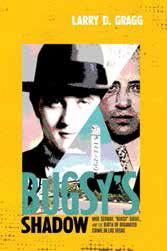 LARRY D. GRAGG
LARRY D. GRAGG
Early in the Prohibition era, Moe Sedway became part of the New York organized crime gang led by Meyer Lansky and Benjamin “Bugsy” Siegel. A loyal and highly effective operative for Siegel, Sedway eventually gained monopoly control of the race wire service in Las Vegas and also became an effective casino manager of the Las Vegas Club, El Cortez, and the Rex Club.
A breach in their relationship led to rumors that Sedway had gained Lansky’s approval for a “hit” on Siegel. The unsolved mystery of who murdered Bugsy in 1947 has spawned numerous theories about the identity of the hitman, but regardless of who pulled the trigger, Bugsy’s death opened the way for Moe to flourish as his own man at last. Long overshadowed by Bugsy in the annals of organized crime in America, Moe Sedway is now at last brought out into the light in this riveting tale of the sensational life and times of one of Vegas’s most mysterious and little-known figures.
Larry D. Gragg is a Distinguished Teaching Professor Emeritus and the University Historian at Missouri University of Science and Technology. His books include Benjamin “Bugsy” Siegel: The Gangster, the Flamingo, and the Making of Modern Las Vegas and Becoming America’s Playground: Las Vegas in the 1950s
October 2023
240 pages
Biography / Western History / Southwest
Rights: World
17
November 2023
368 pages
Cooking / Southwest / New Mexico
Rights: World
The Big Book of Hatch Chile
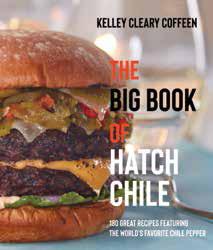
180 Great Recipes Featuring the World's Favorite Chile Pepper KELLEY CLEARY COFFEEN
New Mexico chiles grown around the village of Hatch are world famous for their culinary versatility, unique flavor, and varying levels of heat. In The Big Book of Hatch Chile Kelley Cleary Coffeen offers more than 180 detailed but easy-to-use recipes for everything from chile-laced Margaritas to several variations on the classic Green Chile Cheeseburger. Find amazing new recipes and familiar Hatch chile favorites, including weeknight time-savers and Saturday-night showstoppers. Spice up your home menus with everything from amazing appetizers to delicious desserts, soups and stews, Mexican classics, and many more. Complete with generous helpings of Hatch chile lore and history, The Big Book of Hatch Chile profiles family farms, restaurants, and everyone and everything that makes chile central to the identity of the Hatch valley and New Mexico.
Kelley Cleary Coffeen is a professor at New Mexico State University. She is a culinary expert, food consultant, and the author of five Mexican cookbooks, including Fiesta Mexicali; 300 Best Taco Recipes: From Tantalizing Tacos to Authentic Tortillas, Sauces, Cocktails and Salsas; and 200 Easy Mexican Favorites: Authentic Recipes From Burritos to Enchiladas. She lives in Las Cruces, New Mexico.
Hungry Shoes

A Novel SUE BOGGIO AND MARE PEARL
Maddie and Grace meet in an adolescent psychiatric unit after each has committed desperate self-injurious acts in response to years of abuse, neglect, and chaos. Together they navigate the surreal world of their fellow patients while staff provide nurturance and guidance to support their healing journeys. With the help of veteran psychiatrist Mary Swenson, Maddie and Grace come to terms with their pasts and discover the inner fortitude they need to create futures filled with empowerment and hope.
Sue Boggio and Mare Pearl grew up together in Iowa and are retired after long careers in health care at the University of New Mexico.
September 2023
280 pages
Fiction
Rights: World
18
Death Comes for the Archbishop
A Classic Novel of New Mexico WILLA CATHER
EDITED AND WITH AN INTRODUCTION BY RICHARD W.
ETULAIN
Willa Cather is one of the greatest writers of twentieth-century American literature. Her masterwork Death Comes for the Archbishop tells the story of the French Catholic priest Jean Marie Latour, appointed to serve as the first bishop of the newly created diocese of New Mexico after the Mexican-American War. Along with his friend and vicar Joseph Vaillant, Latour makes the long journey to the newly annexed territory of New Mexico—a vast expanse that was once “the cradle of the Faith in the New World,” but where now the few priests are without guidance or discipline and where the old mission churches have fallen into ruin. Here, Latour and Vaillant encounter a completely strange and unfamiliar brand of Catholicism. But over time the two priests gradually learn to adjust to the ways of the New World Catholics and even open up their eyes to Native American religious ideas so seemingly distant from their own beliefs.
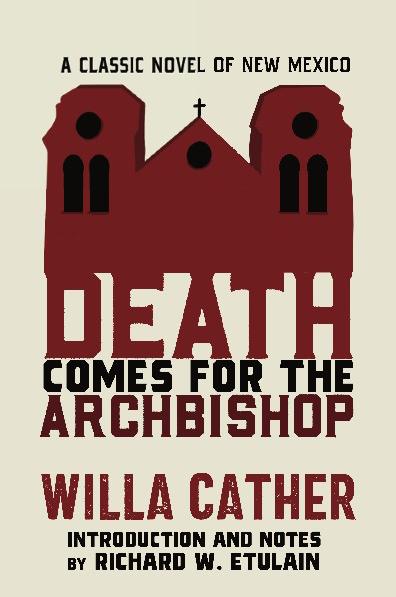
Willa Cather (1873-1947) was an American writer known for her spare, unswerving look at the American plains and west. She is the recipient of the Pulitzer Prize for her WWI novel One of Ours, and the author of classic novels O Pioneers! and My Antonia, in addition to her classic novel of New Mexico, Death Comes for the Archbishop
The Ultimate Protest
Malcom W. Brown, Thcih Quâng Dúc, and the News Photograph that Stunned the World
RAY E. BOOMHOWER
The Ultimate Protest: Malcolm W. Browne, Thich Quảng Đức, and the News Photograph That Stunned the World examines how the most unlikely of war correspondents, Malcolm W. Browne, became the only Western reporter to capture Buddhist monk Thich Quảng Đức’s horrific self-immolation on June 11, 1963. Quảng Đức made his ultimate sacrifice to protest the perceived anti-Buddhist policies of the Catholic-dominated administration of South Vietnam’s president Ngo Dinh Diem. The Ultimate Protest explores the background of the Buddhist crisis in South Vietnam in the spring of 1963 that led to Quảng Đức’s self-sacrifice, as well as the worldwide reaction to Browne’s photograph, how it affected American policy toward Diem’s government, and the role the image played in the violent coup on November 1, 1963, that deposed Diem and led to his assassination. The book also delves into the dynamics involved in covering the Vietnam War in the early days of the American presence and the pressures placed on the journalists—Browne and his colleague Peter Arnett from the AP, David Halberstam from the New York Times, and Neil Sheehan from United Press International—there to "get on the team" and stop raising doubts about how the war was going. Browne and Halberstam shared the 1964 Pulitzer Prize for international reporting for their reporting from Vietnam.
Ray E. Boomhower is a senior editor at the Indiana Historical Society Press. His books include The Soldier’s Friend: A Life of Ernie Pyle; Dispatches from the Pacific: The World War II Reporting of Robert L. Sherrod; and Richard Tregaskis: Reporting Under Fire from Guadalcanal to Vietnam
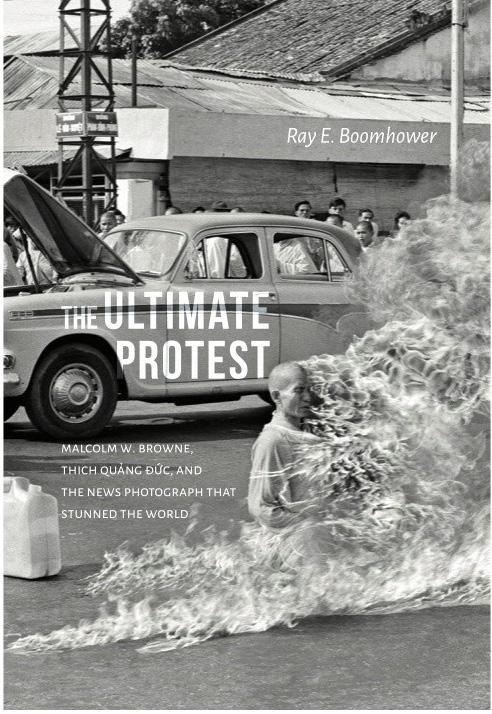
February 2024
Fiction
Rights: World
March 2024
344 pages
Biography / Journalism / Vietnam Era Rights: World
19 University of New Mexico Press unmpress.com
March 2024
200 pages
Latin America / Politics / History
Rights: World
Embracing Autonomy
Latin American-US Relations in the Twenty-First Century GREGORY WEEKS
Too many analyses of Latin American-U.S. relations focus primarily on the U.S. perspective. Greg Weeks’ Embracing Autonomy departs from other general treatments of Latin American-U.S. relations not by putting U.S. policy aside, but by bringing in the Latin American and global contexts more closely and thus avoiding the incomplete picture provided by a narrow focus solely on the policies of the United States.
To do so, the book utilizes the concept of autonomy, which has been developed and used by Latin American analysts for decades. The core of autonomy for Latin America from the U.S. is seen in new, deeper, and more numerous relationships that do not include the United States. Broadly speaking, they can be political or economic. Political relationships include the creation and strengthening of international institutions, diplomatic initiatives, military agreements, and diplomatic summits. Economic ties include trade agreements, foreign investment, and loans. These are all things Latin American governments currently focus on, and more globally than in the past.

Gregory Weeks is Associate Dean for Academic Affairs at UNC Charlotte, and Professor of Political Science and Latin American Studies. For over two decades, he has published extensively on U.S.-Latin American Relations, Latin American Politics, and immigration. With Michael Allison, he is the author of U.S. and Latin American Relations, 3rd edition
Ride the High Country
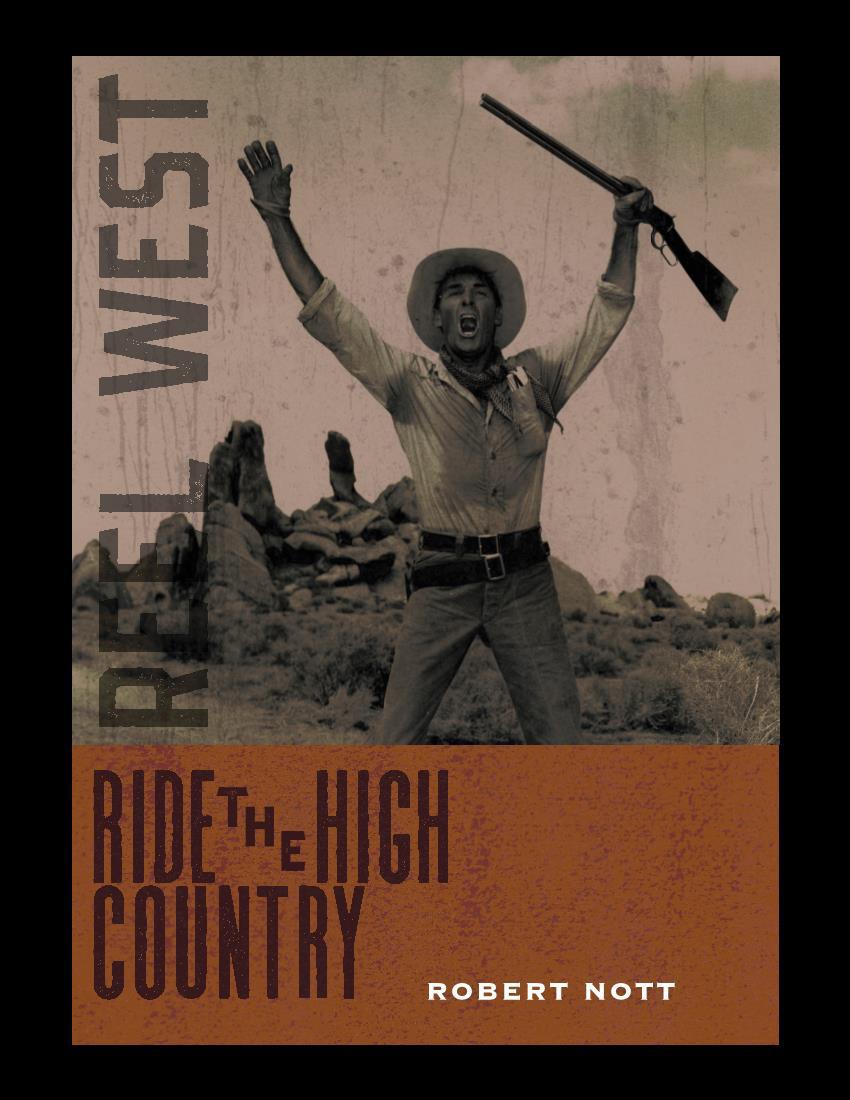
Part of the Reel West Series
ROBERT NOTT
March 2024
152 pages
Film / American West Rights: World
Director Sam Peckinpah was just starting out when he made Ride the High Country in 1962. The New York Times review referred to him as an “unknown,” though in truth he had already made a string of TV Westerns and one forgotten feature. He was a new kind of director, young, brash, and in a hurry to help the Western “grow up” by treating with adult themes. Ride the High Country was, for its time, something new and different, something a little reassuring and a little scary, a hybrid Western that let viewers know that not only was the ever-transitioning West changing, but so was the ever-transitioning Western. Stars Randolph Scott and Joel McRea were old hands at this sort of thing. Ride the High Country gave the two veteran actors one last job to do, a chance to go out with some dignity – exactly like the characters they played in the film. Just a year before the assassination of a popular president, the start of an unpopular war, and the turmoil of civil-rights protests that would upend the nation, Ride the High Country did in fact help the genre mature and adapt to the turbulent, changing times. It also launched Peckinpah’s career, and invoked all the themes honor, loyalty, and compromised ideals, the destruction of the West and its heroes, and the difficulty of doing right in an unjust world present in his later masterpiece The Wild
Bunch
Robert Nott is the author of three books on Western film: The Films of Randolph Scott; Last of the Cowboy Heroes; and The Films of Budd Boetticher, all published by McFarland; and of Goin’ Crazy with Sam Peckinpah and all our Friends, co-authored with Max Evans and published by UNM Press. He has been a reporter for the Santa Fe New Mexican for the last 20 years.
20
The Creation of Modern Buenos Aires
Football, Civic Associations, Barrios, and Politics, 1912-1943
JOEL HOROWITZ
The Creation of Modern Buenos Aires examines the impact of civic associations on the culture and the society of Buenos Aires and their ties to politics in the first decades of the twentieth century. The period saw the emergence of the modern political system with true appeals to the voters, tremendous urban growth, and the solidification of a barrio identity. Historian Joel Horowitz examines four types of organizations: football clubs, bibliotecas populares (popular libraries), sociedades de fomento (development societies that pushed for barrio improvements), and universidades populares (popular universities that provided practical training beyond the primary school level). All four types became important social centers and were connected to the political world. The book focuses on the period from the passage of a voting reform law in 1912, which made male citizen voting obligatory and fraud more difficult, to the military coup of 1943. The book shows how civic associations helped create the social world of the city, especially the part they played in the development of the sense of barrio. It also demonstrates how civic associations became vital links in the system of politics that emerged. Civic associations became places for politicians to build connections to different communities. However, despite being created by inhabitants to fulfill some of their needs and generally run according to rules that prescribed democratic procedures, they did not function as schools for democracy.
Joel Horowitz is Emeritus Professor of History at Saint Bonaventure University. He is the author of Argentina’s Radical Party and Popular Mobilization, 1916-1930 and Argentine Unions, the State and the Rise of Perón, 1930-1945
Women's Suffrage in the Americas
STEPHANIE MITCHELL
Women’s Suffrage in the Americas provides an outstanding analysis of the long and often drawn-out process of attaining women's suffrage in the Western Hemisphere. Due attention is given to the unevenness of the process, not only across the Americas, but within each country with respect to which groups of women (and men) were excluded as suffrage was extended—Carmen Diana Deere, co-author of Empowering Women: Land and Property Rights in Latin America. The first hemispheric study to trace how women in the Americas obtained the right to vote, Women’s Suffrage in the Americas pushes back against the misconception that women’s movements originated in the United States. The volume brings Latin American voices to the forefront of English-language scholarship. Suffragists across the hemisphere worked together, formed collegial networks to support each other’s work, and fostered advances toward women gaining the vote over time and space from one country to the next. The collection as a whole suggests five models by which women in the Americas gained the right to vote: through party politics; through decree, despite delays justified by women’s supposed conservative politics; through conservative defense of traditional roles for women; and, within the context of imperialism. However, historians have traditionally failed to view this common history through a hemispheric lens. Until now.

April 2024
216 pages
Latin America / History / Politics
Rights: World
May 2024
408 pages
Women's Studies / Latin America / History Rights: World
21 University of New Mexico Press unmpress.com
Stephanie Mitchell is professor of history at Carthage College in Kenosha, Wisconsin, co-editor, of The Women’s Revolution in Mexico, 1910–1953
June 2024
240 pages
Latin America / Literary Criticism
Rights:World
The Struggle for Natural Resources
Findings From Bolivian History
CARMEN SOLIZ AND ROSANNA BARRAGÁN
The Struggle for Natural Resources traces the troubled history of Bolivia's land and commodity disputes across five centuries, combining local, regional, national, and transnational scales. Enriched by the extractivism and commodity frontiers approaches to world history, the book treats Bolivia's political struggles over natural resources as long-term processes that outlast immediate political events. Exploration of the Bolivian case invites dialogue and comparison with other parts of the world, particularly regions and countries of the so-called Global South.
Carmen Soliz is an associate professor of History and Latin American Studies at the University of North Carolina at Charlotte. Rossana Barragán is Senior Fellow Researcher at the International Institute of Social History in Amsterdam (2011-2022) and Professor of CIDES-UMSA La Paz. Ph D. at the École des Hautes Études en Sciences Sociales de Paris.
The Chilean Dictatorship Novel Memory, Postmemory, Affect, and Emotions
 HELENE WELDT-BASSON
HELENE WELDT-BASSON
Though the civil rights abuses by the Pinochet dictatorship in Chile (1973–1990) were later recognized by reparations and truth commissions, the difficult emotions suffered by the victims and their families were often pushed into the background or out of the national conversation entirely. In response, novelists began writing memory of feelings experience during the dictatorship into their books. In The Chilean Dictatorship Novel, Weldt-Basson examines fifteen novels and one testimony written on the topic of dictatorship to illustrate how the Chilean narratives center on affect and emotions. Each chapter focuses on a different emotion: feelings of loss because of father abandonment and spatial injustice caused by neoliberal urbanization of Santiago; despair articulated through tragic romances and affective landscapes; left-wing nostalgia and melancholia communicated through allegory; feelings of abjection caused by torture and betrayal; and the creation of affect through violent events, aggressive child-play and sexual torture. Through a close look at the work of José Donoso, Ariel Dorfman, Diamela Eltit, Carlos Franz, and Nona Fernández, among others, Weldt-Basson effectively argues that by inspiring emotion and creating empathy within readers, the authors of these books instill a drive in the readers for ongoing social justice advocacy, thereby transforming the process of reading into a platform for future action. Weldt-Basson’s landmark study will serve as a basis for future study of Latin American literature for decades to come.
Helene Weldt-Basson is a professor in the Department of Modern and Classical Languages and Literatures at University of North Dakota. She is author or editor of seven additional books including Masquerade and Social Justice in Contemporary Latin American Fiction (UNMP).
22
March 2024
America / History / Politics
344 pages Latin
Rights: World
Julio Galán
The Art of Performative Transgression TERESA ECKMANN

From his provincial origins in the small northern Mexico town of Múzquiz, Coahuila, to his meteoric rise in Manhattan’s East Village art scene, to having achieved international standing at the time of his early death at the age of forty-seven, Julio Galán was radically transgressive, extending contemporary Mexican painting beyond the cultural criticism of the 1980s Neo-Mexicanist tendency in order to redefine Mexican identity as gender-expansive in his art. Galán combined gender-fluid imagery, a performative persona, queer self-representation, and cross-cultural visual and textual references to create large-scale, layered, dialogical visual puzzles. Ahead of his time in the relevance of his content and imagery to the contemporary LGBTQ social movements, Galán also broke the barriers of limited Latinx (in) visibility with his participation in such exclusive platforms/arenas as the Whitney Biennial of 1995. Replete with full-color reproductions of Galán’s artwork, Teresa Eckmann’s book serves as the first English-language monograph on the artist’s life and work.
Teresa Eckmann is Associate Professor of Contemporary Latin American art in the Department of Art and Art History at the University of Texas at San Antonio. She is also author of Neo-Mexicanism: Mexican Figurative Painting and Patronage in the 1980s (UNMP).
Indiginous Culture and Change in Guerrero, Mexico, 7000 BCE to 1600 CE IAN JACOBS

With Indigenous Cultures and Regional Change in Guerrero, Mexico, Ian Jacobs at last puts Guerrero’s history firmly on the map of Mexican archaeology and history. The book brings together a vast amount of cross-disciplinary information to understand the deep roots of the Indigenous cultures of a complex region of Mexico, and the forces that shaped the foundations of colonial Mexico there in the sixteenth century and beyond. This book is particularly significant in exploiting archaeological and Indigenous, as well as historical sources.
May 2024
296 pages
Art History / Mexico
Rights: World
April 2024
384 pages
Latin America / History / Archaeology
Rights: World
23 University of New Mexico Press unmpress.com
Ian Jacobs is the author of Ranchero Revolt: The Mexican Revolution in Guerrero
April 2024
352 pages
Latin America / Politics / Sociology
Rights: World
Popular Politics and Protest Analysis in Latin America

MOISES ARCE AND TAKESHI WADA
Arce and Wada’s volume examines the consequences of democracy and globalization on popular protests in Latin America, theorizing a broad shift of popular politics involving reactive and proactive mobilizations. A collaboration of sixteen distinguished scholars with different specializations (economists, historians, sociologists, and political scientists) in both the Global North and South, the volume provides a unique collection of studies of protest events in ten Latin American countries: Bolivia, Brazil, Chile, Colombia, Costa Rica, Ecuador, Mexico, Nicaragua, Peru, and Venezuela.
Moisés Arce is the Scott and Marjorie Cowen Chair in Latin American Social Sciences and Professor in the Department of Political Science at Tulane University. Takeshi Wada is Professor in the Department of Area Studies and Director of the Latin American and Iberian Network for Academic Collaboration (LAINAC) at The University of Tokyo.
24
University of Nebraska Press
About University of Nebraska Press
The University of Nebraska Press extends the University’s mission of teaching, research, and service by promoting, publishing, and disseminating works of intellectual and cultural significance and enduring value.

The University of Nebraska Press, founded in 1941, is the largest university press between Chicago and California. It publishes scholarly and general-interest books (with more than 5,000 titles in print and an additional 150 new titles released each year) and journals (with more than 30 different journals published each year) in topics ranging from anthropology and literary criticism to history and sports. In addition to the Nebraska imprint, the Press also publishes books under Bison Books, The Backwaters Press, and Potomac Books imprints and publishes the books of The Jewish Publication Society. The Journals division produces the publications of Nebraska Extension, a division of the University of Nebraska’s Institute of Agriculture and Natural Resources.
nebraskapress.unl.edu
In Search of the Romanov's A Family's Quest to Solve One of History's Most Brutal Crimes
PETER SARANDINAKI
A thrilling, true detective story about the search for the missing members of the Romanov royal family, murdered by the Bolsheviks in 1918, and one family's involvement in the hundred-year-old forensic investigation into their deaths, clandestine burials, and the recovery and authentication of the remains.
Peter Sarandinaki is a retired sea captain now living in Reston, Virginia, with his wife, Masha. Sarandinaki is the great-grandson of Lieutenant General Sergey Nikolaevich Rozanov, the White Army commander in the eastern Amur region of Russia who in July 1918 was the first man to enter the Ipatiev House in Yekaterinburg, where Tsar Nicholas, Empress Alexandra, their five children, and four servants were slaughtered six days earlier by Communist murderers.
July 2024
304 pages
History
Rights: World
25
August 2023
272 pages
Military History / American History / World War II / Asia / Europe / Russia
Rights: World
Truman and the Bomb
The Untold Story
D.M. GIANGRECO
Foreword by JOHN T. KEUHN
Many myths have grown up around President Harry S. Truman’s decision to use nuclear weapons against Imperial Japan. In destroying these myths, Truman and the Bomb will discomfort both Truman’s critics and his supporters, and force historians to reexamine what they think they know about the end of the Pacific War.
Myth: Truman didn’t know of the atomic bomb’s development before he became president. Fact: Truman’s knowledge of the bomb is revealed in his own carefully worded letters to a Senate colleague and correspondence between the army officers assigned to his Senate investigating committee.

Myth: The huge casualty estimates cited by Truman and Secretary of War Henry Stimson were a postwar creation devised to hide their guilt for killing thousands of defenseless civilians. Fact: The flagrantly misrepresented “low” numbers are based on narrow slices of highly qualified—and limited—U.S. Army projections printed in a variety of briefing documents and are not from the actual invasion planning against Japan.

Myth: Truman wanted to defeat Japan without any assistance from the Soviet Union and to freeze the USSR out of the postwar settlements. Fact: President Franklin D. Roosevelt and President Truman desperately wanted Stalin’s involvement in the bloody endgame of World War II.
Using previously unpublished material, D. M. Giangreco busts these myths and more. An award-winning historian and expert on Truman, Giangreco is perfectly situated to debunk the many deep-rooted falsehoods about the roles played by American, Soviet, and Japanese leaders during the end of the World War II in the Pacific. Truman and the Bomb, a concise yet comprehensive study of Truman’s decision to use the atomic bomb, will prove to be a classic for studying presidential politics and influence on atomic warfare and its military and diplomatic components.
Making this book particularly valuable for professors and students as well as for military, diplomatic, and presidential historians and history buffs are extensive primary source materials, including the planned U.S. naval and air operations in support of the Soviet invasion of Manchuria. These documents support Giangreco’s arguments while enabling the reader to enter the mindsets of Truman and his administration as well as the war’s key Allied participants.
D. M. Giangreco served as an editor of the Military Review for the U.S. Army Command and General Staff College for twenty years and served as the editor and publications director for the Foreign Military Studies Office in Fort Leavenworth, Kansas. He is the award-winning author or coauthor of fourteen books on military and sociopolitical subjects, including Hell to Pay: Operation Downfall and the Invasion of Japan, 1945–1947 and Eyewitness Pacific Theater: Firsthand Accounts of the War in the Pacific from Pearl Harbor to the Atomic Bombs
26
Between the Wires
The Janowska Camp and the Holocaust in Lviv
WAITMAN WADE BEORN
Between the Wires tells for the first time the history of Janowska (Lviv, Ukraine), one of the deadliest concentration camps in the Holocause by bringing together the never before seen evidence and painstakingly detailed research from archives in seven countries and in as many languages.
Waitman Wade Beorn (PhD, University of North Carolina, 2011) is a Senior Lecturer at the University of Northumbria in Newcastle, UK. He is the author of Marching Into Darkness: The Wehrmacht and the Holocaust in Belarus (Harvard, 2014) and The Holocaust in Eastern Europe: At the Epicenter of the Final Solution (Bloomsbury, 2018).
Exiles and the Jews
Literature, History, and Identity
NANCY E. BERG & MARC SAPERSTEIN
Exile and the Jews anthologizes texts from all genres of Jewish literary creativity, from the Hebrew Bible to the present, exploring how the realities and interpretations of exile have shaped Jewish religion, politics, and identity.
Nancy E. Berg (PhD, University of Pennsylvania, 1991) is Professor of Hebrew and Comparative Literature at Washington University in St. Louis. She is the author of Exile from Exile: Israeli Writers from Iraq (SUNY, 1996) and More and More Equal: The Literary Works of Sami Michael (Lexington, 2005). With Naomi B. Sokoloff she co-edited both the National Jewish Book Award-winning What We Talk About When We Talk About Hebrew (Washington, 2018) and Since 1948: Israeli Literature in the Making (SUNY, 2020). Marc Saperstein (PhD, Harvard Graduate School of Arts and Sciences, 1977; Rabbi, Hebrew Union College-Jewish Institute of Religion, New York, 1972) served as principal and professor of Jewish History and Homiletics of the Leo Baeck College, London, UK. His dozen books include Decoding the Rabbis: A Thirteenth-Century Commentary on the Aggadah (Harvard, 1980); Jewish Preaching 1200–1800 (Yale, 1990), winner of the National Jewish Book Award in Jewish Thought; “Your Voice Like a Ram’s Horn”: Themes and Texts in Traditional Jewish Preaching (Hebrew Union College, 1996), National Jewish Book Award winner in Scholarship; and Agony in the Pulpit: Jewish Preaching in Response to Nazi Persecution and Mass Murder, 1933-1945 (HUC, 2018).
August 2024
390 pages
Jewish History & Culture
Rights: World
April 2024
330 pages
Jewish History & Culture Rights: World
27 University of Nebraska Press nebraskapress.unl.edu
April 2024
288 pages
World & National Affairs
Rights: World
Pakistan and American Diplomacy
Insights from 9/11 to the Afganistan Endgame THEODORE CRAIG
Pakistan and American Diplomacy offers an insightful, quick-moving tour through U.S.-Pakistan relations, from 9/11 to the U.S. withdrawal from Afghanistan, as told from the perspective of a senior U.S. embassy official.

Theodore Craig (MA, Johns Hopkins University) retired from the U.S. Foreign Service after 29 years and tours in Islamabad as Political Counselor. He currently works as the Counterterrorism Bureau's Senior Program Advisor in Dhaka, Bangladesh. Craig earned his Master's from the Johns Hopkins School of Advanced International Studies and has taught as a Fellow at Georgetown University's School of Foreign Service. In addition to his two tours in Pakistan, Craig spent three tours in Latin America, a tour on the Secretary of State's Planning Policy Staff, and a variety of policy jobs on peace and security, the global government, and human rights.
Maricas
June 2024
322 pages
History
Rights: World
Queer Culture and State Violence in Argentina and Spain, 1942-1982 JAVIER FERNÁNDEZ-GALEANO
Maricas traces the erotic lives and legal battles of Argentine and Spanish queer people, who despite state repression and sexual violence, carved out their own spaces in metropolitan and rural cultures between the 1940s and the 1980s.
Javier Fernández-Galeano (PhD, Brown University, 2019) is a Juan de la Cierva Fellow at the Institute for the History of Science & Medicine at the Universitat de València in Spain. His work has been published in numerous journals, including Bulletin of Spanish Studies, Journal of the History of Sexuality, and Latin American Research Review
28
An Unholy Rebellion, Killing the Gods
Political Ideology and Insurrection in the Mayan Popul Vuh and the Andean Huarochiri Manuscript
SHARONAH ESTHER FREDRICK
An Unholy Rebellion, Killing the Gods is the first comprehensive comparison between two of the most important Native American epics of Latin America: the Mayan Popul Vuh and the Peruvian Huarochiri Manuscript.
Sharonah Esther Fredrick (PhD, SUNY at Stony Brook, 2014) teaches in the College of Charleston's Department of Hispanic Studies. She has published in the Renaissance Quarterly, Brepols Medieval and Renaissance series, Monterey Tec (Mexico) Journal of the Humanities, the University of Sao Paolo's Cadernos de Lingua e Literature Hebraica, and in U of Toronto's Renaissance and Reformation, where she writes on Mayan and Andean medicine. Sharonah is Colonial Americas' editor for Routledge Resources Online-The Renaissance World, and also lectures in Berlitz's Global Leadership Training program.
The Triumph of Life
A Narrative Theology of Judiasm
RABBI IRVING GREENBERG
The Triumph of Life is Rabbi Irving Greenberg’s magnum opus—a narrative of the relationship between God and humanity expressed in the Jewish journey through modernity, the Holocaust, the creation of Israel, and the birth of Judaism’s next era.
Rabbi Irving Greenberg (PhD, Harvard University, 1960; rabbi, Beth Joseph Rabbinical Seminary of Brooklyn, 1953), a leading Jewish thinker, theologian, and activist, is president of the J.J. Greenberg Institute for the Advancement of Jewish Life and senior scholar in residence at Hadar. He served as a founding president of CLAL: The National Jewish Center for Learning and Leadership, founding president of the Jewish Life Network/ Steinhardt Foundation, activist/founder of the Student Struggle for Soviet Jewry, chair of the U.S. Holocaust Memorial Museum, and rabbi of the Riverdale Jewish Center. He is author of five books, including For The Sake of Heaven and Earth: The New Encounter between Judaism and Christianity (JPS, 2004).
August 2024
368 pages
Native American & Indigenous Studies
Rights: World
August 2024
400 pages
Jewish History & Culture
Rights: World
29 University of Nebraska Press nebraskapress.unl.edu
July 2024
306 pages
Western Fiction
Rights: World
Mary's Place
A Novel CHARLOTTE HINGER
Set against the backdrop of the farm crisis of the 1980s, Charlotte Hinger's moving novel explores the lives of Mary and Iron Barrett as they face the multiple calamities imposed by over-production, debt, falling commodity prices, rural bank restructuring, and internal family dysfunction.
Charlotte Hinger (MA, Fort Hays State University) is a freelance writer. Her fiction publications include The Healer’s Daughter (Gale/Cengage-Five Star, 2019), Fractured Families (Poisoned Pen Press, 2017), Hidden Heritage (Poisoned Pen Press, 2013), Lethal Lineage (Poisoned Pen Press, 2011), Deadly Descent (Poisoned Pen Press, 2009), and Come Spring (Simon & Schuster, 1986) as well as the historical title, Nicodemus: Post-Reconstruction Politics and Racial Justice in Western Kansas (University of Oklahoma Press, 2016).
An Endangered Species
June 2024
304 pages
Western Fiction Rights: World
A Novel FRANCES WASHBURN
Set on the Pine Ridge Reservation, this tale of two families, each with their own problems bound to circumstances largely beyond their control surviving on the upper Great Plains during the 1960s, explores the nature of endangerment.
Frances Washburn (PhD, University of New Mexico, 200) (Lakota) is a emerita professor of American Indian Studies and English at the University of Arizona. She is the author of Elsie's Business (Nebraska, 2006)

Murder in Manchuria
The True Story of a Jewish Virtuoso, Russian Fascists, a French Diplomat and a Japanese Spy in Occupied China
SCOTT D. SELIGMAN
In Murder in Manchuria, Scott D. Seligman explores an unsolved murder set amidst the chaos that reigned in China in the run-up to the Second World War. Against the backdrop of a three-country struggle for control of Manchuria—an area some called China’s “Wild East”—and an explosive mixture of nationalities, religions and ideologies, a young Jewish musician is kidnapped, tortured and ultimately murdered by disaffected White anti-Semitic Russians, secretly acting on the orders Japanese military overlords who covet his father’s wealth. Part cold-case thriller and part social history, the true story of Semyon Kaspé is told in the context of the larger, improbable story of the exodus of the Jews of Harbin, who spooked and terrified by the events recounted in this book, soon departed from this part of the world. And like Midnight in Peking, the book solves a crime that has puzzled historians for decades.

October 2023
312 pages
True Crime
Rights: World English
Scott D. Seligman is a writer, historian, and genealogist.
30
¡Vino!
The History and Identity of Spanish Wine KARL
J. TRYBUS
This book explores the history and identity of Spanish wine production from the nineteenth century until today. Nineteenth-century infestations of oidium mold and phylloxera aphids devastated French and Italian vineyards but didn’t extend to the Iberian Peninsula, which gave Spanish vintners the opportunity to increase their international sales. Once French and Italian wineries rebounded, however, Spanish wine producers had to up their game. Spain could not simply produce table wine but needed a quality product to compete with the supposedly superior French wines. Following the Spanish Civil War, the totalitarian Franco regime turned its attention to pain’s devastated agricultural sector, but the country’s wine industry rebounded only after World War II. In the postwar years, it rebranded itself to compete in a more integrated European and international marketplace with the creation of a new wine identity. As European integration continued, Spanish wine producers and the tourism industry worked together to promote the uniqueness of Spain and the quality of its wines.
¡Vino! explores the development of Spanish wine in the context of national and global events, tracing how the wine industry fared and ultimately prospered despite the civil war, regional concerns, foreign problems, and changing tastes.

Karl J. Trybus is an associate professor of history at Limestone University in South Carolina.
Baseball
The Turbulent Midcentury Years STEVEN P. GIETSCHIER
Baseball: The Turbulent Midcentury Years explores the history of organized baseball during the middle of the twentieth century, examining the sport on and off the field and contextualizing its development as both sport and business within the broader contours of American history. Steven P. Gietschier begins with the Great Depression, looking at how those years of economic turmoil shaped the sport and how baseball responded. Gietschier covers a then-burgeoning group of owners, players, and key figures—among them Branch Rickey, Larry MacPhail, Hank Greenberg, Ford Frick, and several others—whose stories figure prominently in baseball’s past and some of whom are still prominent in its collective consciousness.

Steven P. Gietschier is an archival consultant for The Sporting News. He taught American history, sport history, and the history and culture of baseball at a midwestern university before retiring in 2020, and prior to that he served in several roles for The Sporting News. He is the editor of Replays, Rivalries, and Rumbles: The Most Iconic Moments in American Sports
October 2023
288 pages
Wine / History
Rights: World
July 2023
672 pages
Sports / Baseball Rights: World
31 University of Nebraska Press nebraskapress.unl.edu
July 2023
380 pages
Human Rights / Law / Latin American History Rights: World

The Disappeared
Remnants of a Dirty War SAM
FERGUSON
The Disappeared tells the extraordinary saga of Argentina’s attempt to right the wrongs of an unspeakably dark past. Using a recent human rights trial as his lens, Sam Ferguson addresses two central questions of our age: How is mass atrocity possible, and What should be done in its wake? From 1976 to 1983 thousands of people were the victims of state terrorism during Argentina’s so-called Dirty War. Ferguson recounts a twenty-two-month trial of the most notorious perpetrators of this atrocity, who ran a secret prison from the Naval Mechanics School in Buenos Aires. The navy executed as many as five thousand political “subversives,” most of whom were sedated and thrown alive out of airplanes into the South Atlantic. The victims of these secret death flights and others who went missing during the regime are known as los desaparecidos—“the disappeared.”

Ferguson explores Argentina’s novel response to mass atrocity—the country’s remarkable and controversial decision in 2003 to repeal a series of amnesty laws passed in the 1980s and to prosecute anew the perpetrators of the Dirty War a generation after the collapse of its last dictatorship. As of 2022 more than one thousand aging military officers have been indicted for their involvement in the Dirty War, and hundreds of trials have commenced in the country’s civilian courts. Among the many facets of the book, Ferguson takes an in-depth look at allegations that Father Jorge Mario Bergoglio, now Pope Francis, was involved in the disappearance of two Jesuit priests under his supervision in 1976. Bergoglio was called to testify in a closed-chambers session. Ferguson reviewed those secret proceedings and uses them as a springboard to explore the Argentine Catholic Church and its broader role in the Dirty War.
The lingering but acute trauma of the victims who testified at the trial underscores the moral urgency of accountability: that when a state strips its citizens of all their rights, the only response that approximates reparation is to restore the rule of law and punish the perpetrators. Yet the trial also revealed the limits of using criminal law to respond to mass atrocity. Justice demands a laser-like focus on evidence relevant to a crime, but atrocity begs for social understanding. Can the law ever bring full justice?
Sam Ferguson is an attorney in Berkeley, California and the principal of Ferguson Law PC. He previously served as a law clerk to the Honorable Judge William Fletcher on the Ninth Circuit Federal Court of Appeals. He was a visiting fellow at Yale Law School’s Orville H. Schell Jr. Center for International Human Rights, as well as a Fulbright fellow in Argentina. His articles on Argentina’s Dirty War have appeared in The New Republic, the Christian Science Monitor, and the Boston Review
32
Spy Ships
One Hundred Years of Intelligence Collection by Ships and Submarines

NORMAN POLMAR AND LEE J. MATHERS
FOREWORD BY REAR ADMIRAL THOMAS A. BROOKS, U.S. NAVY (RET.)
Almost from the first days of seafaring, men have used ships for “spying” and intelligence collection. Since early in the twentieth century, with the technological advancements of radio and radar, the U.S. Navy and other government agencies and many other navies have used increasingly specialized ships and submarines to ferret out the secrets of other nations. The United States and the Soviet Union/Russia have been the leaders in those efforts, especially during the forty-five years of the Cold War. But, as Norman Polmar and Lee J. Mathers reveal, so has China, which has become a major maritime power in the twenty-first century, with special interests in the South China Sea and with increasing hostility toward the United States. Through extensive, meticulous research and through the lens of such notorious spy ship events as the Israeli attack on the USS Liberty, the North Korean capture of the USS Pueblo, and the U.S. Central Intelligence Agency’s success in clandestinely salvaging part of a Soviet submarine with the Hughes Glomar Explorer, Spy Ships is a fascinating and valuable resource for understanding maritime intelligence collection and what we have learned from it.
Norman Polmar is an analyst and consultant specializing in the naval, aviation, and intelligence fields. He has been an adviser on naval issues to three U.S. senators, the speaker of the House of Representatives, and three secretaries of the U.S. Navy, as well as to the leadership of Australian, Chinese, and Israeli navies. Polmar is the author or coauthor or more than fifty books, including Cold War Submarines: The Design and Construction of U.S. and Soviet Submarines, 1945–2001 with coauthor K. J. Moore (Potomac, 2005) and The Enola Gay: The B-29 That Dropped the Atomic Bomb on Hiroshima (Potomac, 2004). Lee J. Mathers was on active duty with the Navy from 1967 to 1978 as a surface warfare officer with an intelligence subspecialty. He made two deployments to Vietnam, including a one-year in-country tour. He is the coauthor with Norman Polmar of Opening the Great Depths: The Bathyscaph Trieste and Pioneers of Undersea Exploration.
July 2023
344 pages
History Rights: World
33 University of Nebraska Press nebraskapress.unl.edu
July 2023
332 pages
Jewish History and Culture / Religion
Rights: World
Open Judaism
A Guide for Believers, Athiests, and Agnostics
RABBI BARRY L. SCHWARTZ
Open Judaism offers a big-tent welcome to all Jews and Judaism. It is at once an invitation to the spiritually seeking Jew, a clarion call for a deeply pluralistic and inclusive Judaism, and a dynamic exploration of the remarkable array of thought within Judaism today. In honest, engaging language Barry L. Schwartz, a practicing rabbi and writer, presents traditional, secular-humanistic, and liberal Jewish views on nine major topics—God, soul, Torah, halakhah, Jewish identity, inclusion, Israel, ethics, and prayer. Teachings from many of Judaism’s greatest thinkers organically reveal and embellish foundational ideas of Orthodox, Reform, Conservative, Reconstructionist, Renewal, and Humanistic Judaism. The conclusion sets forth core statements of belief in Judaism for believers, atheists, and agnostics, thereby summarizing the full spectrum of thought and enabling readers to make and act on their own choices.

Rabbi Barry L. Schwartz is the director and editor in chief emeritus of The Jewish Publication Society and the spiritual leader of Congregation Adas Emuno in Leonia, New Jersey. He is the author of books for adults, teens, and children, including Path of the Prophets: The Ethics-Driven Life (JPS, 2018) and Judaism’s Great Debates: Timeless Controversies from Abraham to Herzl (JPS, 2012).
Who Are the Jews—And Who Can We Become?
DONNIEL HARTMAN
Who Are the Jews…? tackles perhaps the most urgent question facing the Jewish people today: Given unprecedented denominational tribalism, how can we Jews speak of ourselves in collective terms? Crucially, the way each of us tell our “shared” story is putting our collective identity at risk, Donniel Hartman argues. We need a new story, built upon Judaism’s foundations and poised to inspire a majority of Jews to listen, discuss, and retell it. This book is that story.

November 2023
250 pages
Religion / BIblical Studies / History and Culture / Inspirational / Judaism

Rights: World
Donniel Hartman (Rabbi, Shalom Hartman Institute, 1984; PhD, Philosophy, Hebrew University, 2005) is president of the Shalom Hartman Institute and holds the Kaufman Family Chair in Jewish Philosophy at the Hartman Institute. He is the author of Putting God Second: How to Save Religion from Itself (Beacon, 2016) and The Boundaries of Judaism (Continuum, 2007), co-author of Spheres of Jewish Belonging: Jewish Identity in a Changing World (Israel Ministry of Education, 2008); and co-editor of Judaism and the Challenges of Modern Life (Continuum, 2007). He is the founder of some of the most extensive education, training and enrichment programs for scholars, educators, rabbis, and religious and lay leaders in Israel and North America. He is also host of the popular Jewish podcast “For Heaven’s Sake” as well as a prominent essayist, blogger, and lecturer on issues of Israeli politics, policy, Judaism, and the Jewish community.
34
Biblical Women Speak
Hearing Their Voices through New and Ancient Midrash
RABBI MARLA J. FELDMAN
What were biblical women thinking and doing when the men around them received all the attention and glory? How did Leah, Rachel, and their handmaids negotiate the complicated family dynamics of four women vying for Jacob’s affections? What compelled Potiphar’s wife to risk her high station to seduce Joseph, an enslaved foreigner? How did the midwives and Pharoah’s daughter conspire to rescue baby Moses, right under Pharoah’s nose? Biblical Women Speak employs midrash (interpretative techniques) to discover ten biblical women’s stories from a female point of view and provide insights beyond how ancient male scholars viewed them. Each chapter brings alive a different biblical woman, including non-Israelite characters and others who are neglected in classical rabbinic texts, such as Keturah (Abraham’s last wife), Bat Shuah (Judah’s wife), Shelomith (the infamous blasphemer’s mother), and Noah (one of Zelophehad’s brave daughters who demanded inheritance rights). After each featured text we hear a creative retelling of the woman’s story in her own voice, followed by traditional midrash and medieval commentaries and the author’s reflections on how these tales and interpretations are relevant for today. Rabbi Marla J. Feldman’s book is an engaging invitation to enter biblical narratives, challenge conventional wisdom, and recalibrate the stories and lessons through the lens of our own lives.
Rabbi Marla J. Feldman is the executive director of Women of Reform Judaism. She has published numerous articles about the role of women in Jewish life and social justice issues and her modern midrashim have appeared in several collections. She is the author of Reform Movement action manuals, including Speak Truth to Power.
A Different Trek Radical Geographies of "Deep Space Nine"
 DAVID K. SEITZ
DAVID K. SEITZ
A different kind of Star Trek television series debuted in 1993. Deep Space Nine was set not on a starship but a space station near a postcolonial planet still reeling from a genocidal occupation. The crew was led by a reluctant Black American commander and an extraterrestrial first officer who had until recently been an anticolonial revolutionary. DS9 extended Star Trek’s tradition of critical social commentary but did so by transgressing many of Star Trek’s previous taboos, including religion, money, eugenics, and interpersonal conflict. DS9 imagined a twenty-fourth century that was less a glitzy utopia than a critical mirror of contemporary U.S. racism, capitalism, imperialism, and heteropatriarchy. Thirty years after its premiere, DS9 is beloved by critics and fans but remains marginalized in scholarly studies of science fiction. Drawing on cultural geography, Black studies, and feminist and queer studies, A Different “Trek” is the first scholarly monograph dedicated to a critical interpretation of DS9’s allegorical world-building. If DS9 has been vindicated aesthetically, this book argues that its prophetic, place-based critiques of 1990s U.S. politics, which deepened the foundations of many of our current crises, have been vindicated politically, to a degree most scholars and even many fans have yet to fully appreciate.
David K. Seitz is an assistant professor of cultural geography at Harvey Mudd College. He is the author of A House of Prayer for All People: Contesting Citizenship in a Queer Church
July 2023
264 pages
Jewish History and Culture / Religion / Women, Gender, and Sexuality / Bible Studies
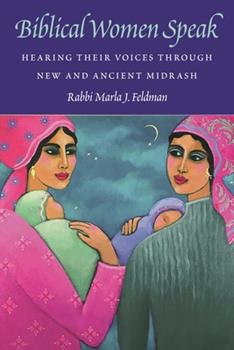
Rights: World
July 2023
332 pages
Geography / Science Fiction / American Studies / Ethnic Studies
Rights: World
35 University of Nebraska Press nebraskapress.unl.edu
January 2024
250 pages
History / Europe / France
Rights: World
Making Space
Neighbors, Officials, and North African Migrants in the Suburbs of Paris and Lyon MELISSA K.
BYRNES
Melissa K. Byrnes considers the ways that local communities in four French suburbs reacted to the growing presence of North African migrants following the Second World War up to 1974. Making Space details the experiences of French community leaders to establish the wide variety of strategies that developed in the face of rapidly growing populations of North Africans, especially Algerians. In particular, the author investigates the various motivations that brought local actors to involve themselves in debates over migrant rights and welfare, leading to the current tensions in French society and questions about France’s ability—and will—to fulfill the promise of liberty, equality, and fraternity for all of its citizens.
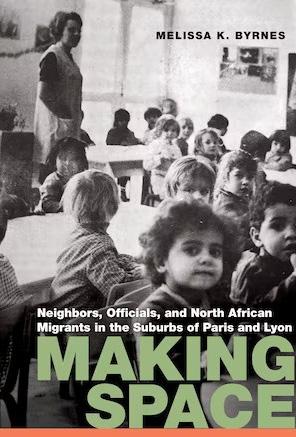
Melissa K. Byrnes (PhD, Georgetown University, 2008) is an associate professor of modern European and world history at Southwestern University in Georgetown, Texas.
Who Would You Kill to Save the World? CLAIRE COLEBROOK
This book examines post-apocalyptic cinema and the way it uses images from the past and present to depict what it means to preserve “the world,” as well as who is left out of the narrative of rebuilding society. Colebrook redefines “the world” as affluent Western society and “saving the world” as preventing us from becoming the othered them which are viewed in their suffering. Colebrook further challenges the notion that “the world,” built upon foundations of exploitation, is worth saving.

Claire Colebrook (PhD, Edinburgh University, 1993) is a professor of English at Penn State University. She is the author of a number of books, including Deleuze and the Meaning of Life (Continuum, 2010), Gender (Palgrave, 2003), and Irony in the Work of Philosophy (Nebraska, 2003).

September 2023
165 pages
Social / Sciences / Media Studies
Rights: World
36
Galloping Gourmet Eating and Drinking with Buffalo Bill STEVE FRIESEN
In this entertaining narrative Steve Friesen explores the role of eating and drinking in Buffalo Bill's life, his related experiences and enterprises, and the many meals he had with other celebrities of his day. One is struck by the variety and abundance of foods in all of those meals, from formal banquets he attended to the daily diet of performers in his show. He lived at a time when there was a burgeoning of food options, many of which had been available only on a limited basis. His era was the dawn of a bountiful consumption that continued into the 20th century. A wide range of foods, and large quantities of them, previously available only to royalty and aristocracy, were now accessible to America's and Europe's middle and upper classes. One newspaper reporter observed that "Colonel Cody displays no more care about anything than the proper feeding of horse and man." His concern for those who worked for him was greater than many bosses of his time and certainly extended to providing fine food, and plenty of it, to them. He also became a "missionary" for western foods in the United States and for American cookery in general as the show traveled overseas.

December 2023
180 pages
History / Food
Rights: World
The Gas and Flame Men Baseball and the Chemical Warfare Service during World War I JIM LEEKE

The Chemical Warfare Service was launched by the U.S. Army within months of Germany's drastic poison gas attack at Ypres in 1915. Among those who served in what would become known as the Hellfire Battalion were chemists and other scientists, architects, and elite athletes—including some of the most famous names in baseball. The Gas and Flame Men tells how chemical warfare changed the course of World War I—and the future of war in general. It also had lasting effects on baseball, with players such as Ty Cobb and Christy Mathewson suffering lung injuries that changed how they played the game.
December 2023
285 pages
World War I / Sports
Rights: World
37 University of Nebraska Press nebraskapress.unl.edu
Steve Friesen (MA, SUNY, Cooperstown Graduate Program) is the former director of the Buffalo Bill Museum and Grave near Denver, Colorado.
Jim Leeke is a former news journalist and U.S. Navy veteran, has covered major league baseball for a Northern California suburban daily and has worked for legendary sportswriter Leonard Koppett.
December 2023
History / Polar Regions
Rights: World
Brand Antarctica
How Global Consumer Culture Shapes Our Perceptions of the Ice Continent HANNE ELLIOT FØNSS NIELSEN
In Brand Antarctica, Hanne Elliot Fønss Nielsen analyses advertisements and related cultural products in order to identify common framings that have emerged in representations of Antarctica from the late nineteenth century to the present. By providing a historical, social, cultural, and geographic context for understanding the ways the south has been used to sell products, stories, experiences and ideas, Nielsen argues that Antarctica has been “for sale” in various ways ever since the first human interactions with the continent, and that the commercial and advertising history of Antarctica plays an important role in framing how Antarctica is conceptualized today.

Hanne Elliot Fønss Nielsen is a senior lecturer of Antarctic law and governance at the University of Tasmania.

Almost Somewhere
Twenty-Eight Days on the John Muir Trail SUZANNE ROBERTS
Suzanne Roberts and two friends make a remarkable Sierra Nevada journey testing the limits of physical endurance and friendship. Candid and funny and, finally, wise, Almost Somewhere is not just the whimsical coming-of-age story of a young woman ill-prepared for a month in the mountains but also the reflection of a distinctly feminine view of nature. This updated edition includes original photographs from the trip and a new afterword where Roberts revisits the trail 29 years later, finding much has changed and reflecting on how the original trip still influences her today.
Suzanne Roberts is the author of Animal Bodies: On Death, Desire, and Other Difficulties (Nebraska, 2022), Bad Tourist: Misadventures in Love and Travel (Nebraska 2020), and four collections of poetry.

October 2023
288 pages
Nature / Memoir
Rights: World x China
38
Of Love and War
Pacific Brides of World War II
 ANGELA WANHALLA
ANGELA WANHALLA
Angela Wanhalla details the intimate relationships forged during wartime between women and U.S. servicemen stationed in the South Pacific, traces the fate of wartime marriages, and addresses consequences for the women and children left behind. Paying particular attention to the experiences of women in New Zealand and in the island Pacific—including Tonga, Fiji, Samoa, and the Cook Islands—Of Love and War aims to illuminate the impact of global war on these women, their families, and on Pacific societies.
Molyvos
A Greek Village's Heroic Response to the Global Refugee Crisis
JOHN WEBB
With no assistance from NGOs, who were very late to this crisis, ordinary residents of Molyvos—restaurant owners, shopkeepers, schoolteachers, and parents—rescued thousands of the refugees, offered them dry clothes and shoes, hot food, shelter, and counseling about where they could travel next in their search for safety and asylum. With the chaotic conditions that impelled these migrations deteriorating, the ranks of the refugees swelled to huge numbers, and the volunteer corps in Molyvos expanded their capacity to help them. Inevitably, as the tourist industry suffered, a backlash began against the migrants and the locals who were helping them, leading to discord in the community. Molyvos chronicles the work of Melinda McRostie and her small group of friends in the harbor of Molyvos and Eric and Philippa Kempson on the beach at Eftalou as they organized and carried out the only refugee relief effort that existed on the north coast between 2014 and 2015, when NGOs began to arrive.
John Webb devoted eighteen years in Spring Valley to migrants and refugees—first Haitians, then Vietnamese and Cambodians, and finally Central Americans, all trying to escape starvation and death at home.
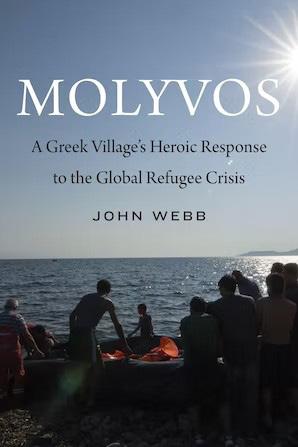
December 2023
278 pages
World War II / Women
Rights: World
October 2023
205 pages
Social Science / Refugees
Rights: World
39 University of Nebraska Press nebraskapress.unl.edu
Angela Wanhalla is a professor of history at the University of Otago, New Zealand.
September 2023
304 pages
Fiction
Rights: World English

Forget I Told You This
HILARY ZAID
Amy Black, a queer single mother and aspiring artist in love with calligraphy, dreams of a coveted artist’s residency at the world’s largest social media company, Q. One ink-black October night, when the power is out in the Oakland hills and her elderly parents and differently abled brother Michael are sheltering in her house, a stranger asks Amy to hand scribe a love letter for him. When the stranger suddenly disappears, Amy’s search for the letter's recipient leads her straight to Q and the most beautiful, illuminated manuscript she has ever seen, the Codex Argentus, hidden away in Q’s Library of Books That Don’t Exist— and to a group of data privacy vigilantes who want Amy to burn Q to the ground.
Westworld + Wonka + Portrait of a Lady On Fire, Forget I Told You This is a witty and touching novel about the desire to be seen by those who matter and the desire to remain anonymous in a world in which our every move is surveilled.
Hilary Zaid is the author of Paper White (Bywater, 2018). Long-listed for the 2019 Northern California Independent Booksellers' Award for Fiction, Paper White was a Foreword Indies silver medalist and the winner of the Independent Publishers' Book Awards (IPPY) in LGBT+ Fiction. Zaid's short fiction has appeared in print and online venues including Ecotone, Day One, The Southwest Review, The Utne Reader, among others. She is a 52-year-old queer/genderqueer writer who lives in Oakland with her wife and sons.
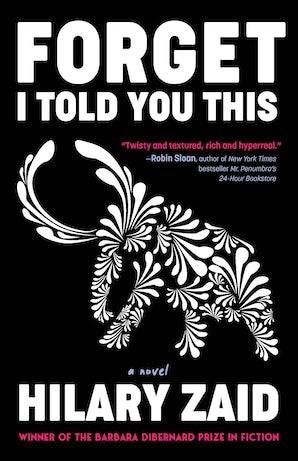
40
University of Georgia Press
About University of Georgia Press
Since its founding in 1938, the primary mission of the University of Georgia Press has been to support and enhance the University’s place as a major research institution by publishing outstanding works of scholarship and literature by scholars and writers throughout the world.
The University of Georgia Press is the oldest and largest book publisher in the state. We currently publish 60–70 new books a year and have a long history of publishing significant scholarship (in fields such as Atlantic World and American history, American literature, African American studies, American studies, Southern studies, environmental studies, geography, urban studies, international affairs, and security studies), creative and literary works in conjunction with major literary competitions and series, and books about the state and the region for general readers.

ugapress.org
Lived Resistance against the War on Palestinian Children
HEIDI MORRISON, EDITOR
Despite the increasing volume of scholarship that shows children as political actors, prior to this book, a cohesive framework was lacking that would more fully examine and express children’s relationship with political power. Rather than simply hitching children’s resistance to standard theories of resistance, Heidi Morrison seeks to meet children on their own terms.
Through the case study of Palestinian children, Contributors theorize children’s resistance as an embodied experience called lived resistance. A critical aspect of the study of lived resistance is not just documenting what children do but specifically how scholars approach the topic of children’s resistance. With Lived Resistance against the War on Palestinian Children, the authors account for the vessel (i.e., the physical body) through which their resistance generates and operates.
The diverse group of chapter authors examine Palestinian children’s art and media, imprisonment, parenting, bereavement, neoliberalism, refugee camps, and protest movements as aspects of their collective and individual political power. Through these outlets, the book shows consistencies and contends that these children’s relationship to political power operates from an inclusive model of citizenship and is social-justice oriented, symbolically oriented, and contingently based.
Heidi Morrison is associate professor of history at the University of Wisconsin–Lacrosse. She is author or editor of five books, including Inner Wounds: Oral Histories of Palestinian Children’s Trauma and the Second Intifada; Childhood and Colonial Modernity in Egypt; and A Cultural History of Youth
August 2024
352 pages
Children, Youth, and War Ser. Rights: World
41
May 2024
248 pages
Geographies of Justice and Social Transformation Ser.
Rights: World
Cultivating Socialism
Venezuela, ALBA, and the Politics of Food Sovereignty
ROWAN LUBBOCK
Launched in 2004, the Latin American regional institution of ALBA (Alianza Bolivariana para los Pueblos de Nuestra: Bolivarian Alliance for the Peoples of Our America) sought to overcome the historical legacies of neo-colonial domination by consecrating the values of cooperation, inclusive development, and popular power. As part of a region-wide effort among states and social movements to break the socio-ecologically destructive effects of capitalist agriculture, the elevation of food sovereignty—based on the protections of rural livelihoods, land redistribution and sustainable agricultural production (agroecology)— became a cornerstone of ALBA’s development policy. And yet, these regional aspirations barely saw the light of day, while Venezuela (the beating heart of ALBA) experienced the worst food crisis in its history. How did this come to pass? Based on extensive fieldwork in Venezuela, where the majority of ALBA’s food policies reside, Cultivating Socialism provides the first in-depth study of the ways in which peasants, workers and states attempted to redress the inequities of commercialised agriculture, and the limits and contradictions encountered on the road to a regional food sovereignty regime. The politics of food sovereignty within ALBA thus offers important lessons for how we might think about emancipatory politics today, and for the future.
August 2023
198 pages
History / United States/ State & Local / Middle Atlantic / Social Science / Disasters & Disaster Relief / Social Classes / Ethnic Studies / African American Studies

Rights: World
Ecologies of Inequity How Disaster Response Reconstitutes Race and Class Inequality SANCHA DOXILLY MEDWINTER

With Ecologies of Inequity, Sancha Doxilly Medwinter tells the story of how the racially and ethnically diverse, immigrant, and urban poor disaster survivors lose ground to their White, middleclass-to-affluent and Black middle-class homeowner neighbors during official disaster response. Medwinter presents analyses from 120 conversational and expert interviews with disaster responders and survivors in New York City, beginning as early as twelve days after the November 2012 landfall of Superstorm Sandy. The settings are Carnarsie, Brooklyn, and the Rockaway peninsula, which experienced six to eight feet of flooding.
The color- and class-blind assumptions of disaster responders and the labyrinthine process of obtaining a FEMA grant combine to exclude and increase the psychological burden of urban poor disaster survivors. Similarly, the locational decisions and volunteer service perimeters uncritically replicate the segregation logics of urban spaces. Part of this story explains how the chronically poor repeatedly get displaced by the machinery of official disaster response. One reason is the introduction of a race- and class-blind disaster “logic of response” that caters to the needs of the newly created class of “disaster victims,” while displacing the “logic of service,” which typically attempts to address the needs of the chronically poor.
Sancha Doxilly Medwinter is an assistant professor of sociology at the University of Massachusetts Amherst.
42
Rowan Lubbock is Lecturer in International Political Economy of Development at the Queen Mary University of London.
The Coup and the Palm Trees Agrarian Conflict and Political Power in Honduras ANDRÉS LEÓN ARAYA

The Coup and the Palm Trees interrogates the Honduran present, through an exploration of the country’s spatiotemporal trajectory of agrarian change since the mid-twentieth century. It tells the double history of how the Aguán region went from a set of “empty” lands to the centerpiece of the country’s agrarian reform in the 1980s and a central site for the palm oil industry and drug trade, while militarized process of state formation between the military coups of 1963 and 2009 took place. Rather than a case of failed democratic transition, the book shows how the current Honduran crisis—exemplified by massive outmigration towards the United States, blatant narco-state links and the 2009 coup—is better understood within longer historical processes in which violence, exclusion, and dispossession became the central organizational principles of the state.
We the Young Fighters
Pop Culture, Terror, and War in Sierra Leone
MARC SOMMERS
We the Young Fighters is at once a history of a nation, a story of a war, and the saga of downtrodden young people and three pop culture superstars. The extraordinary narrative begins centuries ago, with the capture mainly of men by European slavers and the emergence of slave wives across the land that would become Sierra Leone. Soon after it became a colony, British overlords discovered diamonds and empowered Paramount Chiefs to help dig them up. Once in power, President Siaka Stevens took this setup and ran with it, creating a personal diamond empire, keeping the government feeble, managing a brutal state security force, and allowing exclusion and inequality to skyrocket. Accessibly written and thoroughly researched, We the Young Fighters describes how Tupac, Rambo, and, especially, Marley wove their way into the conflict fabric of Sierra Leone, from the pre-war landscape dominated by chiefs, politicians, and emasculated youth; across a war featuring terror, drugs, diamonds, young soldiers, and citizen resilience; and into a post-war era spotlighting the quiet endurance of young people. The book ends by extracting lessons from Sierra Leone that promise to improve current approaches to governance, youth alienation, and terror groups globally.

Marc Sommers is an internationally recognized youth expert with research experience in over twenty war-affected countries. He has provided analysis and technical advice to policy institutes, donor and United Nations agencies, and NGOs. He also is the author of seven previous books, including Stuck: Rwandan Youth and the Struggle for Adulthood (Georgia), which received an Honorable Mention for the African Studies Association’s Bethwell A. Ogot Book Prize, Islands of Education: Schooling, Civil War, and the Southern Sudanese (1983–2004), and Fear in Bongoland: Burundi Refugees in Urban Tanzania, which received the Margaret Mead Award.
October 2023
256 pages
Social Science / Human Geography / Agriculture & Food / History / Latin America / Central America / Political Science / World / Caribbean & Latin American
Rights:World x Spanish
October 2023
488 pages
Social Science / Popular Culture / Ethnic Studies / African Studies / Children's Studies / History / Military / Wars & Conflicts (Other) / Africa / General / Music / General
Rights: World
43 University of Georgia Press ugapress.org
Andrés León Araya is associate professor of political science at the University of Costa Rica.
November 2023
232 pages
Social Science / Emigration & Immigration / Political Science / Public Policy / Immigration / Labor & Industrial Relations / History / Europe / Italy

Rights: World
Partners in Gatekeeping
How Italy Shaped U.S. Immigration Policy Over Ten Pivotal Years, 1891-1901 LAUREN BRAUN-STRUMFELS
Partners in Gatekeeping illuminates a complex, distinctly transnational story that recasts the development of U.S. immigration policies and institutions. Lauren Braun-Strumfels challenges existing ideas about the origins of remote control by paying particular attention to two programs supported by the Italian government in the 1890s: a government outpost on Ellis Island called the Office of Labor Information and Protection for Italians and rural immigrant colonization in the American South—namely a "plantation" in Arkansas called Sunnyside. Through her examination of these distinct locations, Braun-Strumfels argues that we must consider Italian migration as an essential piece in the history of how the United States became a gatekeeping nation. In particular, she details how an asymmetric partnership emerged between the United States and Italy to manage that migration.

Lauren Braun-Strumfels is an associate professor in the history department at Cedar Crest College. She was also a Fulbright Scholar at Universita Roma Tre in 2020.
Your Eyes Will Be My Window Essays
JODI VARON
Your Eyes Will Be My Window reclaims the two erasures of Esta Plat. Murdered in Ukraine by Nazi troops in 1942, evidence of the life of Esta Plat was preserved in a bundle of her letters until the letters were tossed into a dumpster and destroyed. Haunted by the inheritance of survivors' guilt and shame in a family that kept no Old World keepsakes except her grandmother's one-sentence memory of Esta Plat, Jodi Varon is compelled to sift through records of Europe's genocidal past. The record of unfiltered emotions among Kindertransport survivors in Europe, journalists in Ludwigsburg, and archivists and guides in Jerusalem, Your Eyes Will Be My Window is a defiant exercise in honoring the lost.

September 2023
240 pages
Biography & Authobiography / Personal Memoirs / Jewish / Women / Social Science / Jewish Studies
Rights: World
Jodi Varon is professor of writing and English at Eastern Oregon University. She directs the Low Residency MFA in Creative Writing at EOU and is editor-in-chief of basalt, EOU’s professional literary magazine. She is the author of Drawing to an Inside Straight: The Legacy of an Absent Father and has had her work published in the Northwest Review, the Oregon Encyclopedia, New Letters, and more. She lives in Missoula, Montana.
44
Texas Tech Unviersity Press
About Texas Tech University Press
Texas Tech University Press (TTU Press) has been the book publishing arm of Texas Tech University since 1971 and a member of the Association of American University Presses since 1987. The mission of TTU Press is to disseminate the fruits of original research by publishing rigorously peer-reviewed works that compel scholarly exchange and that entertain and enlighten the university’s broadest constituency throughout the state, the nation, and the world. TTU Press publishes 15-20 new titles each year and has approximately 450 titles in print. In addition to a diverse list of nonfiction titles focused on the history and culture of Texas, the Great Plains, and the American West, the Press publishes in the areas of natural history, border studies, and peace and conflict studies. Additionally, the Press publishes select titles in literary genres ranging from biography and memoir to young adult and children’s titles. It also publishes the annual winner of the Walt McDonald First-Book Competition in Poetry.
As a university press, we make available works of scholarship and literature that might otherwise not be published. We have a large list in topics showcasing and investigating West Texas, a historically underserved region. Our imprint extends the reach of Texas Tech University both nationally and globally. We promote books and literary culture in our Lubbock community through author events and outreach engagement opportunities.
Drowning Dragon Slips By Burning Plains
Poems

KHẢI ĐƠN (PHAM LAN PHUONG)
Published in partnership with DVAN, a nonprofit headed by Pulitzer Prize-winning novelist Viet Thanh Nguyen. The author’s poetry was featured in a VR art exhibit in a Berlin contemporary art museum (Gropius Bau). Drowning Dragon Slips by Burning Plains counters the narrative held in the West about women and the land of the quaintly "lush" and "charming" Mekong Delta. A rice field in the middle of the communist and American-backed government, the delta was an essential resource that fed both sides of the war in Vietnam. The Mekong Delta went through countless massacres on an immense scale. Yet, history wiped the injuries away as if the river forgot. In her debut collection, Khải Đơn explores the meaning of being a woman in a land robbed of its innocence. Through a collage-like approach of personal history and fables, Khải Đơn's poems present an insidious flow of recollections that young people do not want to remember and that old people avoid discussing. In poems that lament and wonder, Khải Đơn reclaims the narrative for her people by unexpected material yielded from social research, CIA documents, and American military evaluations to erode the dominant narrative about the Delta in and after the war. Her poems tell tales of the old bombs turning into mangoes, rice germinating out of bullet holes, and every woman losing her way home.
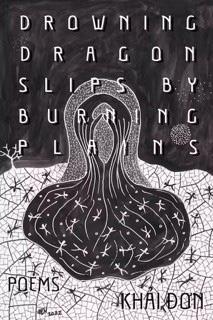
Khải Đơn is a writer nurtured by the Mekong Delta. She explores the destructive effects of climate change on women's bodies and the fractures that the past leaves in the present existence of human beings. She was a Fulbright student and earned an MFA in creative writing at San José State University.
October 2023
104 pages
Poetry / Vietnam
Rights: World
45
ttupress.com
November 2023
216 pages
True Crime
Rights: World
Fatal Exam

Solving Lubbock's Greatest Murder Mystery ALAN BURTON AND CHUCK LANEHART
On Monday, December 4, 1967, a body was discovered in the science building of the largest university in West Texas. The next day, citizens of Lubbock gathered for the Carol of Lights, and event typically the centerpiece of the holidays for the quiet college town. But in 1967, the normal festive excitement and anticipation was shockingly and swiftly shattered by the harrowing events that had occurred just twenty-four hours earlier.
For the first time, the story of this shocking murder has been painstakingly reconstructed by Alan Burton and Chuck Lanehart. Piecing together timelines based on interviews, journalists’ archives, courtroom transcripts, and the personal experiences of Lubbockites, Fatal Exam situates the murder, relates the capture, and details the trial of the crime’s perpetrator. Not your standard psychopathic master, the criminal at this story’s center cuts a challenging profile, and his story shines an unusual light on the criminal justice system.
Fatal Exam is a crime story, but it’s also the story of its biggest university in West Texas and the peculiar town-and-gown relationship that comes in such a far-flung setting.
Alan Burton has more than 35 years of experience in the field of media/communications. He served as the special assistant to the president/director of university communications at Southeastern Oklahoma State University. Burton was director of community relations for the Sherman (Texas) Independent School District for eleven years, and prior to that, was sports editor of the Sherman Democrat. The Sherman native has received writing awards from The Associated Press, Texas School Public Relations Association, and the Oklahoma College Public Relations Association. Chuck Lanehart is a criminal defense lawyer based in Lubbock, Texas. In his four-decade year career, he has represented citizens accused in almost the entirety of the Texas Plains and beyond. His history essays have been featured in many publications, including books, journals and newspapers. Since 2017, he has authored a regular column for the Lubbock Avalanche-Journal’s “Caprock Chronicle” Sunday history feature. The History Press published his 2021 book, Tragedy and Triumph on the Texas Plains, and in 2022, Marvels of the Texas Plains Evolution of the Texas Plains will be published in 2023.

46
The Birthright of Sons Stories
JEFFREY SPIVEY
The Birthright of Sons is a collection of stories centered around the experiences of marginalized people, namely Black and LGBTQ+ men. Though the stories borrow elements from various genres (horror, suspense, romance, magical realism, etc.), they’re linked by an exploration of identity and the ways personhood is shaped through interactions with the people, places, and belief systems around us.

Underpinning the project is a core belief—self-definition is fluid, but conflict arises because society often fails to keep pace with personal evolution. In each of these stories, the protagonists grapple with their understanding of who they are, who and how they love, and what’s ultimately most important to them. In almost every case, however, the quest to know or protect oneself is challenged by an external force, resulting in violence, crisis, or confusion, among other outcomes.
The Birthright of Sons colors in “the other” as three-dimensional, by highlighting the unique obstacles that marginalized people face while simultaneously centering their humanity and unearthing universal struggles and commonalities. Be it experiencing a sexual awakening, contemplating the cumulative effects of racial tension in the workplace, or searching desperately for a moment of peace in the attention economy, the collection amplifies underrepresented voices in a playful and contemporary way, elevating, critiquing, and confronting its characters.
Through a mix of heart, dark humor, and social observation, The Birthright of Sons ponders the power of difference in a world defined by rigid definitions, ideological silos, and an unwillingness to change.
Jefferey Spivey is a Des Moines, Iowa-based writer and editor. His short stories have appeared (or will soon appear) in A Gathering of the Tribes, The Evergreen Review, Typehouse, Flying Island, decomp, and Las Positas College’s Havik anthology. He’s also a 2022 de Groot Foundation “Courage To Write” grant recipient.
January 2024
216 pages
Fiction / Black Experience / Queer Experience
Rights: World
47 Texas Tech University Press ttupress.org
January 2024
96 pages
Poetry / Nature
Rights: World
A Dream in Which I am Playing with Bees
Poems
 R.K. FAUTH
R.K. FAUTH
A Dream in Which I Am Playing with Bees is a collection of poems made of natural imagery, queer metaphors, personal observations, and historical circumstances surrounding honeybees. In the aftermath of a fictional bee extinction, these poems are presented to the post-bee reader as “artifacts.” These are poems in hindsight.
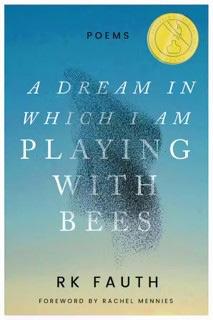
Playing with Bees positions poetry in hindsight to contemplate poetry’s “natural” inclinations towards building alternative worlds through earthbound metaphors. Whether in a line or an entire premise, none of the poems could think, speak, or see in the same way if bees—and the relations they make possible—suddenly disappeared. Like any natural resource, the bee is a wellspring of possibility. Essential. Fragile. Causal. And like any animal, the pollinating bee has enabled a diverse phylum of phrases and myths that humans trade to express our most hard-to-name feelings.
What changes about our imaginations after a peg in the environment is removed? What could disappear from our minds, our fantasies, and our self-descriptors, if nature is no longer a mirror?
Consider a museum of language. As artifacts, these poems are the residue of a dead species—but they are also the offshoots of a playful, abundant, delicate ecosystem. Playing with Bees covets what’s left. At the bottom of everything, we find the fragments an ecologically intact dream; an apocalypse in reverse.
RK Fauth is a poet whose writing has appeared in POETRY, The Rising Phoenix Review, Blue Unicor n, Dream of the River: an LGBTQ+ Anthology, The NonBinary Review, The Fulbright Korea Infusion, and elsewhere. From 2019–2022, RK ran the award-winning public humanities project, “Unprecedented,” which circulated Black Plague–era erasure poems between strangers. She earned an M.A. at Georgetown University, where she also served as a Poetry Fellow at the Lannan Center for Poetics and Social Practice. RK lives in the Blue Ridge Mountains of North Carolina, with her fiancé and their two dogs.
48
Charging a Tyrant

The Arraignment of Saddam Hussein GREG SLAVONIC
When the tyrannical Saddam Hussein was captured in 2003, the war in Iraq was in a precarious position. A provisional government had been assembled, but the Iraqi government was not yet recognized as sovereign. They were now expected to put their most infamous citizen on trial for war crimes. Called into duty at this moment was Rear Admiral Greg Slavonic, who was tasked with facilitating U.S. media presence at the arraignment which would establish the judicial framework for future tribunals.
Admiral Slavonic was party to the historic US-Iraqi Transfer of Sovereignty and then as the senior military officer in the Iraqi courtroom where he was one of fifteen individuals to witness the historic event. As the senior military officer in the room with fifteen other observers, he managed a challenging pool of media jockeying for access for this once in a career story and plus served as advisor to the Iraqi judge on various media issues. Slavonic’s first-hand narrative of a unique moment in military history are never-before-seen transcripts of Saddam Hussein’s trial. For the first time, readers can read how Saddam responded to his charges, along with eleven of Hussein’s closest advisors and cabinet members who were arraigned that day, and several charged with war “crimes against humanity”. This would be the last time all twelve men would be together again who were responsible for the deaths of over several million fellow Iraqi citizens. This book expands our examination of difficult wars and chronicles the legal reckoning and downfall of a tyrant.
Greg Slavonic is the former eighteenth Assistant Secretary of the Navy for Manpower and Reserve Affairs and former Acting Under Secretary of the Navy, having served under four Secretaries of the Navy in the Trump administration. He enlisted in the U.S. Navy and rose to the rank of Rear Admiral where he served for thirty-four years with service in the Vietnam War, First Gulf War and Operation Iraqi Freedom. He has written two books on leadership and currently serves on the board of directors and advisor for several national defense companies.
March 2023
256 pages
History / Iraq
Rights: World
49 Texas Tech University Press ttupress.org
May 2023
216 pages
Fiction / Vietnam
Rights: World
Memorial Days
Stories
 WAYNE KARLIN
WAYNE KARLIN
The conflict in Vietnam has been rewritten and reframed into many corners of American life and has long shadowed contemporary political science and foreign policy. The war and its aftermath have engendered award-winning films and books. It has held up a mirror to the twentieth century and to the wars of the twenty-first.

Set in wartime Vietnam and contemporary Vietnam, in wartime America and in America today, the stories that comprise Memorial Days were written from 1973 to the present. As our continuing reappraisals of the war’s shadow have unspooled over the last half-decade, so too has Wayne Karlin returned to the subject in his fiction, collected and published together here for the first time.
A girl in Maryland runs away from Civil War reenactors she imagines to be American soldiers in Vietnam, while a woman in Vietnam hides in the jungle from an American helicopter and another tries to bury the relics of the war. A man mourns a friend lost in Iraq while a helicopter crewman in Quang Tri loads the broken and dead into his aircraft. Extras playing soldiers in a war film in present-day Vietnam model themselves after other war films while a Marine in a war sees himself as a movie character. A snake coiled around the collective control of a helicopter in Vietnam uncoils in a soldier come home from Iraq. The chronology is the chronology of dreams or nightmares or triggered flashbacks: images and incidents triggering other images and incidents in a sequence that seems to make no sense—which is exactly the sense it makes.
Wayne Karlin is an American author, editor, teacher, and Marine Corps veteran. He has published eight novels and three non-fiction books and is the recipient of two National Endowment for the Arts Fellowships, the Paterson Prize in Fiction, the Juniper Prize in Fiction, and the Vietnam Veterans of America Excellence in the Arts Award. He lives in St. Mary’s City, Maryland.
50
Girls Don't
A Woman's War in Vietnam INETTE MILLER

The year is 1970; the war in Vietnam is five years from over. The women’s movement is newly resurgent, and feminists are summarily reviled as “libbers.” Inette Miller is one year out of college—a reporter for a small-town newspaper. Her boyfriend gets drafted and is issued orders to Vietnam. Within their few remaining days together, Inette marries her US Army private, determined to accompany him to war.
There are obstacles. All wives of US military are prohibited in country. With the aid of her newspaper’s editor, Miller finagles a one-month work visa and becomes a war reporter. Her newspaper cannot afford life insurance beyond that. After thirty days, she is on her own. As one of the rare woman war correspondents in Vietnam and the only one also married to an Army soldier, Miller’s experience was pathbreaking. Girls Don’t shines a light on the conflicting motives that drive an ambitious woman of that era and illustrates the schizophrenic struggle between the forces of powerful feminist ideology and the contrarian forces of the world as it was.
Girls Don’t is the story of what happens when a twenty-three-year-old feminist makes her way into the land of machismo. This is a war story, a love story, and an open-hearted confessional within the burgeoning women’s movement, chronicling its demands and its rewards.
Inette Miller is the author of three previous books. She was an award-winning national and international journalist for twenty years, serving as a war correspondent for Time magazine in Vietnam and Cambodia, and later working as a Capitol Hill and State Department reporter. She is the recipient of Associated Press awards for journalism and has received Virginia Center for the Creative Arts fellowships.
January 2021
256 pages
Memior / Vietnam Rights: World
51 Texas Tech University Press ttupress.org
May 2024

256 pages
Nonfiction / Nature
Rights: World
Going to Seed
Essays on Idleness, Nature, and Sustainable Work
KATE J. NEVILLE
An abandoned place, a disheveled person, a shabby or deteriorating state: we describe such ruin colloquially as “going to seed.” But gardeners will protest: going to seed as idle? No, plants are sending out compressed packets filled with the energy needed to sow new life. A pause from flowering gives a chance for the seeds to form. In a time of urgent environmental change, of pressing social injustice, and of ever-advancing technologies and global connections, we often respond with acceleration—a speeding up and scaling up of our strategies to counter the damage and destruction around us. But what if we take the seeds as a starting point: what might we learn about work, sustainability, and relationships on this beleaguered planet if we slowed down, stepped back, and held off?
Going to Seed explores questions of idleness, considering the labor both of humans and of the myriad other inhabitants of the world. Drawing on science, literature, poetry, and personal observation, these winding and sometimes playful essays pay attention to the exertions and activities of the other-than-human lives that are usually excluded from our built and settled spaces, asking whose work and what kinds of work might be needed for a more just future for all.
Kate Neville is an associate professor in Political Science and the School of the Environment at the University of Toronto, where she studies global energy and resource politics and community resistance. When not in Toronto, Kate can be found in a cabin in northern British Columbia, on the territory of the Taku River Tlingit First Nation.
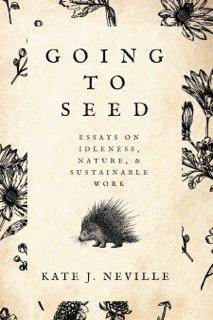
52
About Syracuse University Press
Over a casual conversation between Chancellor William Tolley and Thomas Watson, the Press was established to publish what would be its first title, IBM’s Precision Measurement in the Metal Working Industry in 1943. Since that time, Syracuse University Press has published groundbreaking works such as Pulitzer Prize–winning composer Ernst Bacon’s Words on Music, Jay Dolmage’s Disability Rhetoric (2015 prose award–winner), Siao-Yu’s Mao Tse-tung and I Were Beggars, and Barry Chevannes’s Rastafari: Roots and Ideology, which was first published in 1991 and remains one of our best-selling books.
As we enter our eighth decade of academic publishing, the Press continues to be committed to serving New York State—as well as the region, nation, and globe—by publishing vital scholarship, sharing ideas, and giving voice to important stories that may not have otherwise been told.
press.syr.edu
Politics as Worship
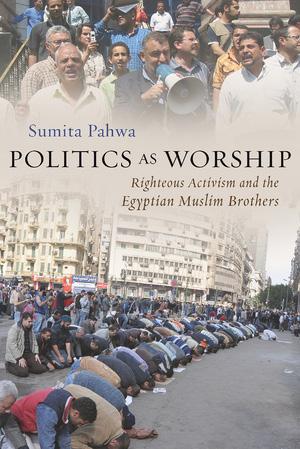
Righteous Activism and the Egyptian Muslim Brothers
SUMITA PAHWA
Despite expectations that the deeply held political and religious organizing principles at the heart of the Muslim Brotherhood would prove incompatible and contentious should the organization ever come to power, the Brotherhood succeeded in maintaining a united identity following the 2011 ousting of Hosni Mubarak and the election of a Brotherhood-majority government. To understand how the movement threaded these disparate missions, Sumita Pahwa examines the movement’s internal debates on preaching, activism, and social reform from the 1980s through the 2000s. In doing so, she finds that the framing of political work as ethical conduct has been critical to the organization’s functioning. Through a comprehensive analysis of texts, speeches, public communications, interviews, and internal training documents, Pahwa shows how Islamic and religious ideals have been folded into the political discourse of the Brotherhood, enabling the leadership to shift the boundaries of justifiable and righteous action.
Sumita Pahwa is associate professor of politics at Scripps College.
October 2023
288 pages
Middle East Studies / Religion / Political Science
Rights: World
53
Syracuse University Press
April 2023
312 pages
Literary Criticism / Armenian LIterature
Rights: World
Stateless
The Politics of the Armenian Language in Exile
TALAR CHAHINIAN
In Stateless, Chahinian offers a rich exploration of Western Armenian literary history in the wake of the 1915 genocide that led to the dispersion of Armenians across Europe, North America, and beyond. Chahinian highlights two specific time periods—post-WWI Paris and post-WWII Beirut—to trace the ways in which literature developed in each diaspora community. In Paris, a literary movement known as Menk addressed the horrors Armenians experienced and focused on creating a new literary aesthetic centered on belonging while in exile. In Beirut, Chahinian shows how the literature was nationalized in the absence of state institutions. Over time, Armenian intellectuals constructed a unified and coherent narrative of the diaspora that returned to the pre-1915 literary tradition and excluded the Menk generation. Chahinian argues that the adoption of “national” as the literature’s organizing logic ultimately limited its vitality and longevity as it ignored the diverse composition of diaspora communities.
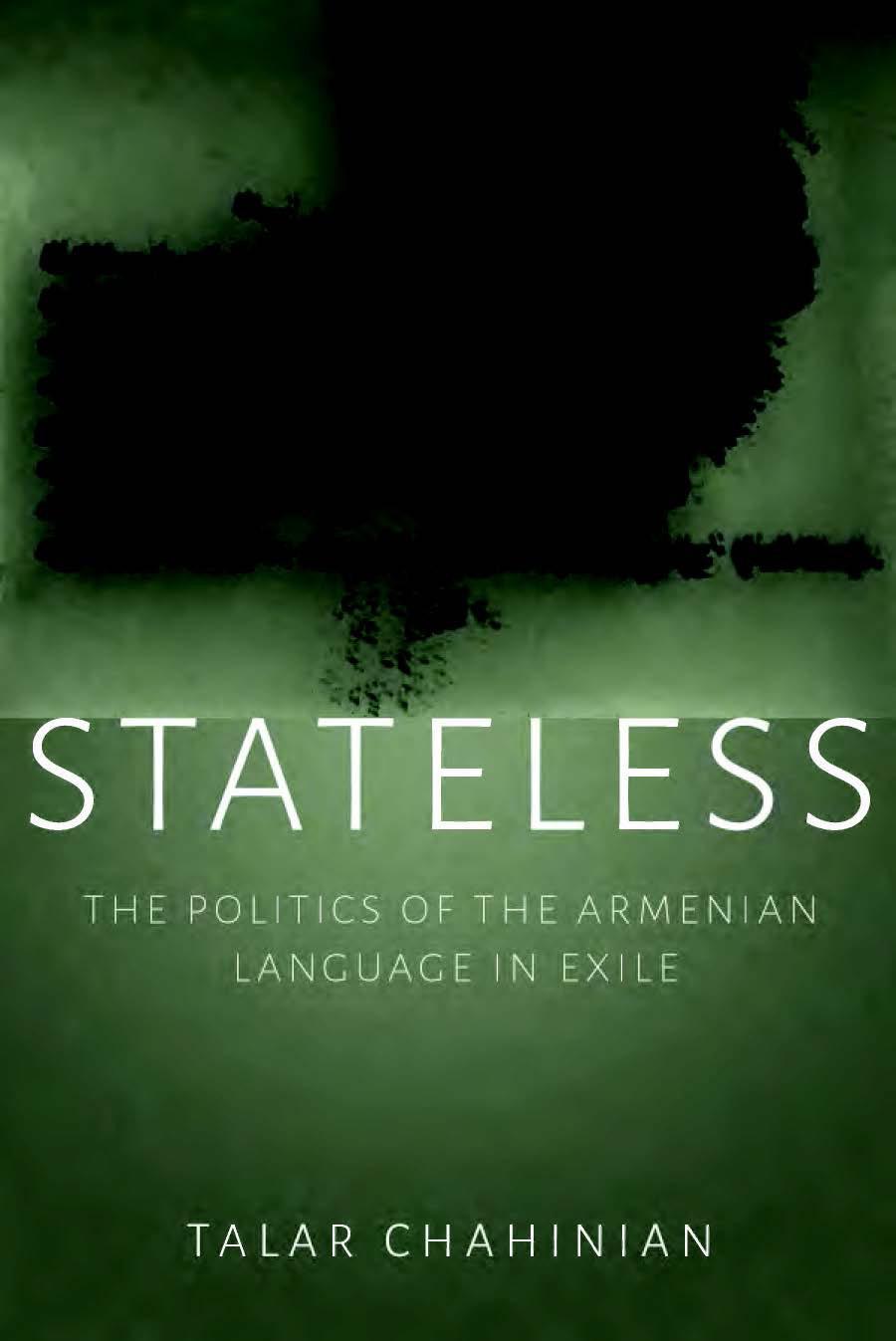
Talar Chahinian holds a Ph.D. in Comparative Literature from UCLA and lectures in the Program for Armenian Studies at UC Irvine, where she is also visiting Faculty in the Department of Comparative Literature. She co-edits Diaspora: A Journal of Transnational Studies and contributes regularly to the Armenian literary magazine Pakin
Arena of Protest
How Jews and Christians United at Madison Square Garden Against Hitler 1933-1945
May 2024
Jewish Studies / New York City / Holocaust / 20th Century History / American History / World War II
Rights: World
ALAN M. SHORE
While the dominant narrative of U.S.-based Jewish-Christian relations often locates their beginnings after World War II, In Arena of Protest, Alan Shore challenges this assumption through his examination of several large, highly publicized inter-faith rallies at Madison Square Garden during and after the war.
Drawing on primary and secondary sources, including English and Yiddish newspapers, impassioned publications and speeches from both Jewish and Christian leaders of the time, and neglected histories of various religious organizations, Shore unearths a powerful discourse that contrasts with the common depiction of American churches staying silent during World War II.
Alan Shore is a National Ministry Representative at Chosen People Ministries, an Evangelical Christian nonprofit with ministries in 16 countries. He holds a PhD in modern Jewish history and culture from the Graduate Theological Union and is author most recently of the foreword to C.S. Lewis: A Hebraic Inkling: C.S. Lewis of Judaism & the Jews by P.H. Brazier (Pickwick Publications, 2021).
54
The Hammam through Time and Space
JULIE PETEET
Imbued with sacred and profane meanings, public baths forge historical, architectural, cultural, and aesthetic continuities across time and space. “The Hammam” traces these continuities and the disputed origins of public baths throughout the Mediterranean region. Engaging both historical and ethnographic approaches, Peteet examines how the hammam has functioned as both a tangible architectural space and an intangible set of social and bodily practices. The project is an expansive study encompassing histories of the Bronze and Iron Ages through the Hellenistic, Roman, Byzantine, early Islamic, Seljuk, and Ottoman eras. With these histories in mind, Peteet’s ethnographic component frames the contemporary revival of the bath as a neoliberal refashioning. Within the current global context of wellness culture, the hammam serves as a site of leisure and consumption to display and aesthetically configure and gender the body.
Julie Peteet is professor emerita of anthropology at the University of Louisville. She is author of Space and Mobility in Palestine, Landscape of Hope and Despair: Palestinian Refugee Camps, and Gender in Crisis: Women and the Palestinian Resistance Movement.
Literary Optics
Staging the Collective in the Nahda MAHA ABDELMEGEED
In Literary Optics, Maha AbdelMegeed offers a compelling and far-reaching alternative to the traditional mode of analyzing Arabic literature through an encounter between Arabic narrative forms and European ones. Drawing upon close engagements with the works of canonical authors from the period, including Hassan Husni al-Tuwayrani, Muhammad al-Muwaylihi, Ali Mubarak, Francis Marrash, and ‘Abdallah al-Nadim, AbdelMegeed addresses not where these works emanate from but rather how and why they were drawn together to form a canon. In doing so, she rejects the expectation that these texts, through the trope of encounter, hold the explanatory key to modern Arabic literature.
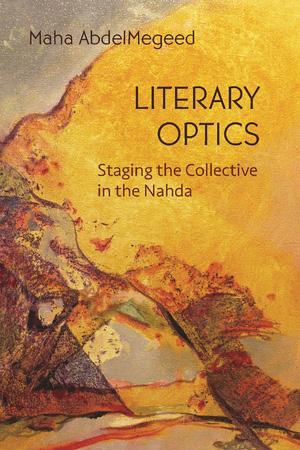
In this reformulation of Arabic literary history, AbdelMegeed argues that the canon is forged through an urgency to define a new form of political sovereignty and to make history visible. In doing so, she explores three pivotal concepts: the spectral (khayal), the trace (athar) and the collective (alnās). By examining the texts through these concepts, Literary Optics provides a remarkable intellectual history that delves into the aesthetic, philosophical, and political stakes of nineteenth-century Arabic literature.
Maha AbdelMegeed is assistant professor of modern Arabic literature at the American University of Beirut.
April 2024
Middle East Studies / Women's and Gender Studies / Ethnography Rights: World
March 2024
304 pages
Middle East Studies / Arabic Literature / Literary Criticism / Cultural Studies
Rights: World
55 Syracuse University Press press.syr.edu
May
Disability Studies / Anthology / Education / Neurodiversity
Rights:World
Mad Scholars
Reclaiming and Reimagining the Neurodiverse Academy
MELANIE JONES AND SHAYDA KAFAI
Mad Scholars is a groundbreaking collection of essays by scholars in the humanities and social sciences whose identification as Mad integrally informs their research methodology, pedagogical approaches, and university engagement. In an era of drastic re-evaluation concerning what constitutes both mental health and higher education, these academics explore strategies for generative disruption and a radical reinterpretation of the university model, speaking from every career stage, across a dozen disciplines, and from universities in North America, Europe, and Australia.
The twenty-three essays in this collection explore the infinite richness of neurodivergent scholars' lived experiences. Each of four sections occupies one of the myriad interlocking spaces within the academic system: the suffocating minutiae of administrative offices and career development; the fraught yet fueling field of self as research; the dangers and opportunities of disclosure in the classroom; and the unraveling and restitching of academic communities. Solution-based and provocative, Mad Scholars is the first book-length study on neurodivergence in the academy to center the voices of multiple Mad and neurodivergent scholars.
Melanie Jones is a faculty member at Bard College in the Bard Prison Initiative program. She has a Ph.D. in Comparative Literature, and her work has appeared in such journals as the Victorian Review Shayda Kafai is Assistant Professor of Ethnic and Women's Studies at California State Polytechnic University. Her work has appeared in such journals as the Journal of Lesbian Studies and Women's Studies Quarterly
The Muslim Social Neoliberalism, Charity, and Poverty in Turkey

GIZEM ZENCIRCI
Since coming to power in 2003, Turkey’s governing party, the AKP, has made poverty relief a central part of their political program. In addition to neoliberal reforms, AKP's program has involved an emphasis on Islamic charity that is unprecedented in the history of the Turkish Republic. To understand the causes and consequences of this phenomenon, Zencirci introduces the concept of the Muslim Social, defined as a welfare regime that reimagined and reconfigured Islamic charitable practices to address the complex needs of a modern market society.
March 2024
304 pages
Middle East Studies / Political Science / Turkish Studies
Rights: World
In The Muslim Social, Zencirci explores the blending of religious values and neoliberal elements in dynamic, flexible, and unexpected ways. Although these governmental assemblages of Islamic neoliberalism produced new forms of generosity, distinctive notions of poverty, and novel ways of relating to others in society, Zencirci reveals how this welfare regime privileged managerial efficiency and emotional well-being at the expense of other objectives such as equality, development, or justice. The book provides a lens onto the everyday life of Islamic neoliberalism, while also mapping the kind of political concerns that animate poverty governance in our capitalist present.
Gizem Zencirci is assistant professor of political science at Providence College. She has published articles in several journals, including the International Journal of Middle East Studies, Asian Journal of Social Science, and Middle Eastern Studies
56
2024
Quest for Love in Central Morocco
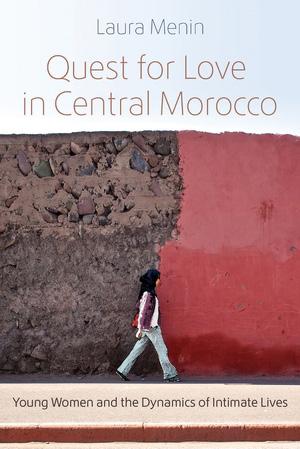
Reimagining Intimate Lives in Central Morocco
LAURA MENIN
Following the 2011 wave of revolutions and uprisings through North Africa and the Middle East, new discussions on individual freedoms began to emerge in Moroccan public spheres and human rights discourse. Public opinion rallied around the removal of an article of the Moroccan penal code that punished sexual relationships outside of marriage. Moving between public and secret interactions, and between online and offline reals, Quest for Love looks closely at the creative ways young women navigate competing amorous desires and moralities. This journey into the intimate worlds and imaginations of young Moroccan women reveals the obscured dynamics marked by rapid and contradictory trajectories of change. The book focuses on young women whose lives unfold in the lowincome and lower-middle class neighborhoods of a mid- sized town in Central Morocco, far from the overt influence of city life. In a way, they form a new generation whose experiences as more educated, economically mobile, and digitally- connected individuals vary with those of their mothers and female generations before them.
At the heart of the book, Laura Menin draws upon ideas of "love" as an ethnographic object and source of theoretical examination. Love is shaped just as much through complex cultural and historical phenomena as through intersecting socioeconomic and political developments. At once, Menin is challenging stereotypes that frame Muslim cultures as too rigid to allow freedom of choice and romantic love while she is bridging the divide between romantic love and discussions of sexuality. Love becomes the metric by which young women approach romantic experiences and also shape their subjectivities around methods of intimate exchange.
Laura Menin is associate researcher in the School of Global Studies at the University of Sussex. She is author of numerous chapters in edited volumes on North Africa and articles in the Middle East Journal of Culture and Communication, Contemporary Levan, and Journal of the Royal Anthropological Institute
April 2024
496 pages
Women's and Gender studies / Middle East Studies / Ethnography / Islamic Studies / Youth Culture Rights: World
57 Syracuse University Press press.syr.edu
April 2024
496 pages
Women's and Gender Studies / Middle East Studies / South Asian Studies / Islamic studies / Media Studies
Rights: World
The Veil! The Veil!
How the World Became Obsessed with the Veil UMME AL-WAZEDI AND AFRIN ZEENAT, EDITORS
The veil's ancient and modern history and its resurgence in our time is an important subject for discussion for those of us posing new questions about women and Islam and their representation in literature, film, television series, and fine arts. In Europe and the U.S., the veil is often presented through errors of conceptualizations. The media, in particular, seems to be obsessed with the role of the veil, either condemning or valorizing it. Recently, for example, in a New York fashion show, Muslim designer Anniesa Hasibuan's collections were highlighted, receiving criticism from both conservative and liberal Muslims. Recurrently, the discussions on the veil run along essentialist and ahistorical lines, associating Islam with the ideology of shame and honor. For example, Lila Abu-Lughad draws our attention to Germany's International Human Rights ad campaign which says, "Oppressed women are easily overlooked. Please support us in the fight for their rights" beneath a photo of a veiled woman sitting near some trash bags. Moreover, the Muslim immigrant "problem" in Europe and the U.S. and the fear of Islam and Muslims in connection with terrorism has heightened the controversy on the issue of the veil. In France, the subject of women and Islam, and the veil in particular, has been highly politicized. In Denmark, the veil is associated with the position of the Muslim women as marginalized and subjugated. While this is the case with Europe and the U.S., in South Asia, particularly in India, Pakistan, and Bangladesh, the veiled Muslim woman represents a controversial and questionable position in the construction of the nation-state.
This edited collection seeks to initiate a dialogue, controversial at times, on the use of the veil in literature, film, television series, and fine arts (photography, paintings, etc.) by analyzing and critiquing its use. How do we see the veil when it is talked about in the media, in the teaching of Islam, and in upholding it as a national symbol of a nation-state? Is the use and meaning of the veil presented as natural or constructed, real or metaphorical, and religious or political? Through this collection, we intend not only to challenge the stereotypes but also to go beyond the stereotypical portrayal of the veil.
Umme Al-wazedi is associate professor of postcolonial literature in the Department of English and co-director of Women's and Gender Studies at Augustana College, Rock Island, IL. Afrin Zeenat is assistant professor of English at Dallas College, Richmond.
58
The University of Oklahoma Press
About the University of Oklahoma Press
During its more than ninety years of continuous operation, the University of Oklahoma Press has gained international recognition as an outstanding publisher of scholarly literature. It was the first university press established in the Southwest, and the fourth in the western half of the country.
Building on the foundation laid by our previous directors, OU Press continues its dedication to the publication of outstanding scholarly works. The major goal of the Press is to strengthen its position as a preeminent publisher of books about the American West and Native Americans, while expanding its program in other scholarly disciplines, including classical studies, military history, political science, and natural science.
oupress.com
Eating Peru
A Gastronomic Journey
ROBERT C. BRADLEY
Today, Peru is rightly recognized as the number one food destination on the planet. But twenty-five years ago, the world’s culinary critics were focusing their attention elsewhere. Fortunately, wine merchant–turned–archaeologist and art historian Robert C. Bradley was in Peru. This delightful book is the product of twenty-five years of exquisite digressions from what Bradley might call his “real job”—the culmination of decades of personal discoveries about the food of Peru and the history that led to its current culinary florescence.
Bradley’s book is a tour of the most delicious facts and foods revealed to him while he traveled Peru, with several recipes thrown in for good measure. Journeying from coasts to highlands and back, the intrepid author introduces us to the most interesting aspects of Peruvian cuisine that he encounters along the way: How the tomato got to Italy. Why Tabasco sauce is misnamed. What the superfoods of Peru are. Where the potato rose and fell. And of course, when coca leaves gave real meaning to Coca-Cola’s “pause that refreshes.” Bradley sizzles about Peruvian ceviche, pisco and the pisco sour, and the country’s best restaurants, all the while sampling food lore, Andean anthropology, history, linguistics, and the pleasures and perils of travel. He makes a knowledgeable, congenial guide, and his book, a generous companion.
For the armchair tourist or the actual traveler, the gourmet and the gourmand, and the merely curious, Eating Peru offers a welcome break from everyday fare, and a once-in-alifetime invitation to a taste of Peru.

Robert C. Bradley started out as a wine merchant for New York City’s most acclaimed restaurants. A trip to Central America put him on the path to studying Mesoamerican art history and archaeology at Columbia University. He is now an associate professor in the School of Art and Design at the University of Texas Rio Grande Valley.
September 2023
296 pages
Latin America / Cookbook Rights: World
59
September 2023
280 pages
Native American/ US History Rights: World
Cherokee Power
Imperial and Indigenous Geopolitics in the Trans-Appalachian West, 1670–1774
KRISTOFER RAY
In Cherokee Power, Kristofer Ray brings long-overdue clarity to the role of the Overhill Cherokees in shaping imperial and Indigenous geopolitics in seventeenth- and eighteenth-century America. As Great Britain and France eyed the Illinois country and the Tennessee, Ohio, and Wabash River valleys for their respective empires, the Overhill Cherokees were coalescing and maintaining a conspicuous presence throughout the territory. Contrary to the traditional narrative of westward expansion, the Europeans were not the drivers behind the ensuing contest over the Tennessee corridor. Through the eighteenth century, the British and French struggled to overcome a dissonance between their visions of empire and the reality of Overhill mobility and sovereignty—a struggle that came to play a crucial role in the Anglo-American revolutionary debate that dominated the 1760s and 1770s. By emphasizing Indigenous agency in this rapidly changing world, Cherokee Power challenges long-standing ideas about the power and reach of European empires in eighteenth-century North America.
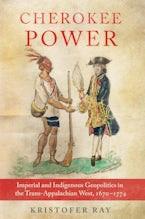
Kristofer Ray is Visiting Scholar in the History Department at the University of North Carolina Wilmington. He is the author of Middle Tennessee, 1775–1825: Progress and Popular Democracy on the Southwestern Frontier and coeditor of Understanding and Teaching Native American History
Russia's Army
A History from the Napoleonic Wars to the War in Ukraine
ROGER R. REESE
October 2023
248 pages
Military History
Rights: World
With the invasion of Ukraine, Vladimir Putin’s Russia seems to have stepped out of time, reverting to an imperial era of conquest and expansion. But as Roger Reese points out in this comprehensive new history, Russia’s way of war has changed little from one century to the next, one regime to another, from the army of the tsar to the army of today. Russia’s Army reveals how the Imperial Russian Army and its successors confronted the state’s foreign policy challenges—projecting power and defending the empire—and the domestic challenge of containing internal unrest generated by nationalism, competing ethnic and religious identities, and political discontent. Reese identifies themes that weave their way through this military history: the adoption of a strategy to maintain a defensive posture in the West, an offensive strategy in the Balkans, and an expansionist policy in the East; maintenance of a large standing army; and a consistent unease about the army’s and non-Russian minorities’ loyalty to the state. These themes, he shows, have emerged in times of peace and war from the times of tsarist Russia through the collapse of the Soviet empire, when Putin sought to restore authoritarian rule and hegemony over the former Soviet states of the USSR.
Roger R. Reese is Professor of History at Texas A&M University and has authored numerous articles and books on the Russian military, including Why Stalin’s Soldiers Fought: The Red Army’s Military Effectiveness in World War II

60
Rising Son
The Life and Music of Arlo Guthrie

HANK REINEKE
One of America’s most beloved folk singers, Arlo Guthrie was at the pinnacle of his fame in the late 1960s and early 1970s with his best-selling album Alice’s Restaurant and his iconic appearance at Woodstock. Yet Guthrie’s career as a musician, humorist, and storyteller extends far beyond his years in the celebrity spotlight. this book recounts the veteran musician’s second act, from the early 1980s to the present. Featuring extensive reflections and commentary from Guthrie himself, this book is the only authorized biography of the renowned folk singer. As a modern-day troubadour drawn to experimentation, Arlo Guthrie has also carried forward the traditions inherited from his legendary father, Woody Guthrie. Drawing on substantial research, the author traces Guthrie’s efforts to free himself from corporate oversight of his music and art. This definitive biography invites new appreciation for Arlo Guthrie’s remarkable career as a musician, storyteller, and humanitarian activist.
Hank Reineke has written about folk, blues, and country music for publications such as the Aquarian Arts Weekly, Soho Arts Weekly, Downtown, East Coast Rocker, Blues Revue, On The Tracks, ISIS, and The Bridge December 2023
496 pages
Biography / Music
Rights: World
Fighting from Above
A Combat History of the US Air Force BRIAN LASLIE
While detailing combat operations, Fighting from Above also pays close attention to technology, politics, rivalries, logistics, policy, organization, equipping, and training. Thorough, concise, and innovative in its approach, it is an authoritative, exceptionally readable history of the development of American air power.
Brian D. Laslie is the Command Historian at the United States Air Force Academy. He is the author of three books, including Air Power’s Lost Cause: The American Air Wars of Vietnam
Euripides' Hippolytus
A Commentary for Students
HANNA M. ROISMAN
Euripides’ Hippolytus is a fascinating play about passion, innocence, rejection, betrayal, and the tragic breakdown of a family. This commentary, designed for intermediate and advanced students of ancient Greek, helps readers understand and fully appreciate this classic tragedy in all its rich complexity.
Hanna M. Roisman is Arnold Bernhard Professor in the Arts and Humanities, Emerita, at Colby College in Waterville, Maine, is the author of Loyalty in Early Greek Epic and Tragedy and Nothing Is As It Seems: The Tragedy of the Implicit in Euripides' Hippolytus
Spring 2024
274 pages
Native American Rights: World
Spring 2024
300 pages
Classical Studies
Rights: World
61 The University of Oklahoma Press oupress.com
Duke University Press
About Duke University Press
Duke University Press books have long been known for advancing innovative new scholarship in the humanities and social sciences. In our books, our authors have defined new fields (sound studies, transgender studies, etc.), redefined existing fields (anthropology, cultural studies, Latin American studies, African American and African studies, art history, etc.), and explored the rich spaces between fields to reshape the way we think about the world and our connections to it. We take pride in publishing traditionally underrepresented voices in terms of both authors and areas of study, viewpoints that are critical to understanding the diverse, interconnected societies in which we live. Duke books continue to be an essential part of any humanities and social sciences program.
dukeupress.edu
Marx for Cats A Radical Bestiary

LEIGH CLAIRE LA BERGE
At the outset of Marx for Cats, Leigh Claire La Berge declares that “all history is the history of cat struggle.” Revising the medieval bestiary form to meet Marxist critique, La Berge follows feline footprints through Western economic history to reveal an animality at the heart of Marxism. She draws on a twelve-hundred-year arc spanning capitalism’s feudal prehistory, its colonialist and imperialist ages, the bourgeois revolutions that supported capitalism, and the communist revolutions that opposed it to outline how cats have long been understood as creatures of economic critique and liberatory possibility. By attending to the repeated archival appearance of lions, tigers, wildcats, and “sabo-tabbies,” La Berge argues that felines are central to how Marxists have imagined the economy, and by asking what humans and animals owe each other in a moment of ecological crisis, La Berge joins current debates about the need for and possibility of eco-socialism. In this playful and generously illustrated radical bestiary, La Berge demonstrates that class struggle is ultimately an interspecies collaboration.
November 2023
408 pages
Literature and Literary Studies / Theory and Philosophy / Marxism / Cultural Studies / Animal Studies
Rights: World
Leigh Claire La Berge is Professor of English at Borough of Manhattan Community College, City University of New York, and author of Wages Against Artwork: Decommodified Labor and the Claims of Socially Engaged Art, also published by Duke University Press.
62
Escaping Nature How to Survive Global Climate Change
ORRIN
H. PILKEY ET AL.
Industrial and agricultural greenhouse gas emissions are rapidly warming Earth’s climate, unleashing rising seas, ocean acidification, melting permafrost, powerful storms, wildfires, floods, deadly heat waves, droughts, tsunamis, food shortages, reduced nutritional levels in crops, and armed conflict over shrinking water supplies. Billions of people will become climate refugees. Hotter temperatures will allow tropical diseases to spread into temperate regions. Higher levels of CO2, allergens, dust, and other particulate matter will impair our physical and mental health and even reduce our cognitive abilities. Climate change disproportionately affects the world’s poor. It also harms Nature, and could ultimately trigger a sixth mass extinction. In Escaping Nature, Orrin H. Pilkey and his coauthors offer concrete suggestions for how to respond to the threats posed by global climate change. They argue that, while we wait for the world’s governments to get serious about mitigating climate change, we can adapt to a hotter world through technological innovations, behavioral changes, naturebased solutions, political changes, and education.
March 2024
320 pages
General Interest / Environmental Studies
Rights: World
Vanishing Sands Losing Beaches to Mining
ORRIN H. PILKEY ET AL.
In a time of accelerating sea level rise and increasingly intensifying storms, the world’s sandy beaches and dunes have never been more crucial to protecting coastal environments. Yet, in order to meet the demands of large-scale construction projects, sand mining is stripping beaches and dunes, destroying environments, and exploiting labor in the process. The authors of Vanishing Sands track the devastating impact of legal and illegal sand mining over the past twenty years, ranging from Africa, Asia, and the Caribbean to South America and the eastern United States. They show how sand mining has reached crisis levels: beach, dune, and river ecosystems are in danger of being lost forever, while organized crime groups use deadly force to protect their illegal mining operations. Calling for immediate and widespread resistance to sand mining, the authors demonstrate that its cessation is paramount for saving not only beaches, dunes, and associated environments but also lives and tourism economies everywhere.

January 2023
272 pages
General Interest / Reference / Natural Sciences / Environmental Studies
Rights: World
63 Duke University Press dukeupress.edu
Orrin H. Pilkey is Emeritus James B. Duke Professor of Earth and Ocean Sciences at Duke University and the author and coauthor of many books.
Orrin H. Pilkey is Emeritus James B. Duke Professor of Earth and Ocean Sciences at Duke University and the author and coauthor of many books.
November 2023
152 pages
Music / Popular Music / American Studies / Cultural Studies
Rights: World
Old Town Road

CHRIS MOLANPHY
In Old Town Road, Chris Molanphy considers Lil Nas X’s debut single as pop artifact, chart phenomenon, and cultural watershed. “Old Town Road” was more than a massive hit, with the most weeks at No. 1 in Billboard Hot 100 history. It is also a prism through which to track the evolution of popular music consumption and the ways race influences how the music industry categorizes songs and artists. By both lionizing and satirizing genre tropes—it’s a country song built from an alternative rock sample, a hip-hop song in which nobody raps, a comical song that transcends novelty, and a queer anthem—Lil Nas X troubles the very idea of genre. Ultimately, Molanphy shows how “Old Town Road” channeled decades of Americana to point the way toward our cultural future.
Chris Molanphy is a columnist for Slate and the host of the Hit Parade podcast. He has written for publications including Rolling Stone, Pitchfork, New York Magazine, NPR Music, the Village Voice, and others. He is author of Kurt Cobain: Voice of a Generation
Hound Dog

ERIC WEISBARD
Many listeners first heard “Hound Dog” when Elvis Presley’s single topped the pop, country, and R&B charts in 1956. But some fans already knew the song from Big Mama Thornton’s earlier recording, a giant but exclusively R&B hit. In Hound Dog Eric Weisbard examines the racial, commercial, and cultural ramifications of Elvis’s appropriation of a Black woman’s anthem. He rethinks the history and influences of rock music in light of Rolling Stone's replacement of Presley’s “Hound Dog” with Thornton’s version in its 2021 “500 Greatest Songs of All Time” list. Taking readers from Presley and Thornton to Patti Page’s “Doggie in the Window,” the Stooges’ “I Wanna Be Your Dog,” and other dog ditties, Weisbard uses “Hound Dog” to reflect on one of rock’s fundamental dilemmas: the whiteness of the wail.
September 2023
152 pages Music / Popular Music / American Studies
Rights: World
Eric Weisbard is Professor of American Studies at the University of Alabama and author of Songbooks: The Literature of American Popular Music, also published by Duke University Press.
64
Live Dead
The Grateful Dead, Live Recordings, and the Ideology of Liveness JOHN BRACKETT

The Grateful Dead were one of the most successful live acts of the rock era. Performing over 2300 shows between 1965 and 1995, the Grateful Dead’s reputation as a “live band” was—and continues to be—sustained by thousands of live concert recordings from every era of the group’s long and colorful career. In Live Dead, musicologist John Brackett examines how live recordings—from the group’s official releases to fan-produced tapes, bootlegs to “Betty Boards,” and Dick’s Picks to From the Vault—have shaped the general history and popular mythology of the Grateful Dead for over fifty years. Drawing on a diverse array of materials and documents contained in the Grateful Dead Archive, Live Dead details how live recordings became meaningful among the band and their fans not only as sonic souvenirs of past musical performances but also as expressions of assorted ideals, including notions of “liveness,” authenticity, and the power of recorded sound.
John Brackett is Instructor of Music at Vance-Granville Community College, author of John Zorn: Tradition and Transgression, and coeditor of The Routledge Companion to Popular Music Analysis: Expanding Approaches
Get Shown the Light
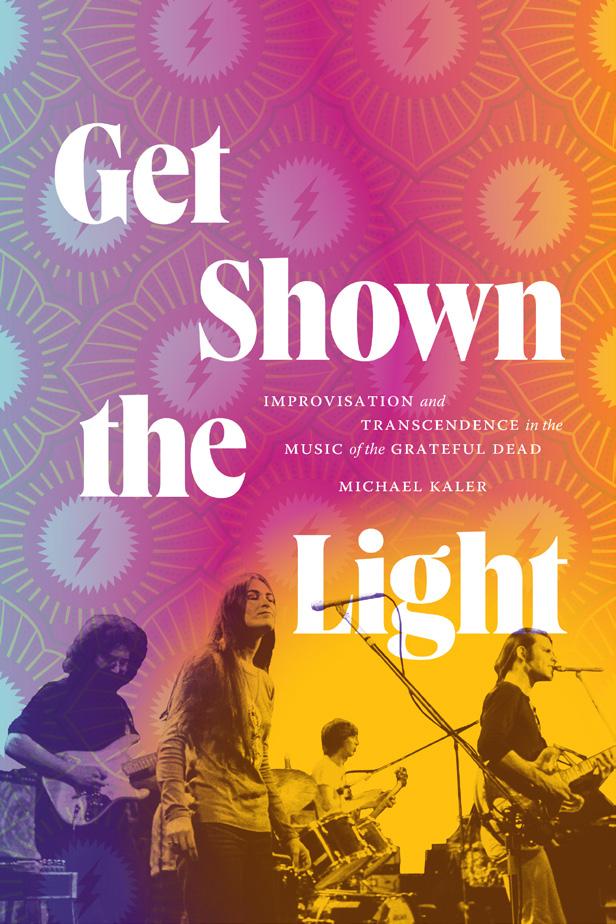
Improvisation and Transcendence in the Music of the Grateful Dead
MICHAEL KALER
Of all the musical developments of rock in the 1960s, one in particular fundamentally changed the music’s structure and listening experience: the incorporation of extended improvisation into live performances. While many bands—including Cream, Pink Floyd, and the Velvet Underground—stretched out their songs with improvisations, no band was more identified with the practice than the Grateful Dead. In Get Shown the Light Michael Kaler examines how the Dead’s dedication to improvisation stemmed from their belief that playing in this manner enabled them to touch upon transcendence. Drawing on band testimonials and analyses of early recordings, Kaler traces how the Dead developed an approach to playing music that they believed would facilitate their spiritual goals. He focuses on the band’s early years, the significance of their playing Ken Kesey’s Acid Test parties, and their evolving exploration of the myriad musical and spiritual possibilities that extended improvisation afforded. Kaler demonstrates that the Grateful Dead developed a radical new way of playing rock music as a means to unleash the spiritual and transformative potential of their music.
Michael Kaler is Associate Professor, teaching stream, at the Institute for the Study of University Pedagogy at the University of Toronto Mississauga and author of Flora Tells a Story: The Apocalypse of Paul and Its Contexts
December 2023
232 pages
Music / Popular Music / American Studies / Cultural Studies
Rights: World
November 2023
304 pages
General Interest / Music / Popular Music / Religious Studies
Rights: World
65 Duke University Press dukeupress.edu
September 2023
288 pages
Gender and Sexuality / LGBTQ Studies / Sex and Sexuality / General Interest / Biography / Letters /Memoirs
Rights: World
A Part of the Heart Can't Be Eaten A Memoir TRISTAN TAORMINO
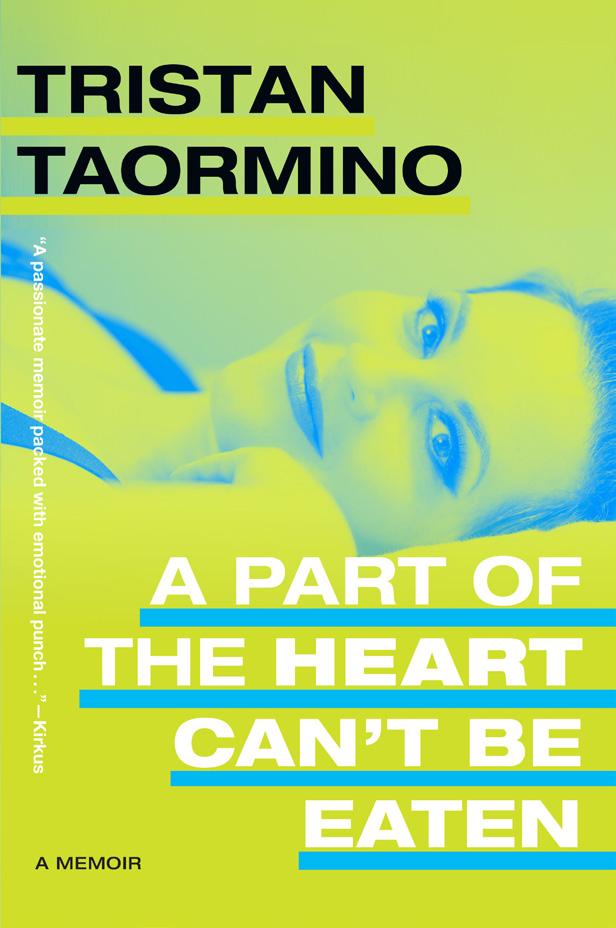
In A Part of the Heart Can’t Be Eaten, award-winning author, sex educator, filmmaker, and podcast host Tristan Taormino shares her coming-of-age story, revealing how her radical sexuality and unconventional career grew out of an extraordinary queer father-daughter relationship. Raised by a hard-working single mother on Long Island, Tristan got her sex ed from the 1980s TV show Solid Gold and The Joy of Sex. She spent summers at drag shows in Provincetown with her father, Bill, who had come out as gay in the mid-1970s. Her sexual identity bloomed during her college years at Wesleyan University, where she discovered her desire for butches and kinky sex. Tristan’s world began to fall apart when her dad was diagnosed with AIDS. After a series of devastating events, she moved to the messy, glorious world of 1990s New York City. In the midst of grief and depression, she helped change queer sexual subculture with her zine Pucker Up , her infamous The Village Voice column, and her editorship of legendary lesbian porn magazine On Our Backs. After the publication of her first book, The Ultimate Guide to Anal Sex for Women, Tristan followed her own path that marked the beginning of her work as a trailblazing feminist pornographer. After a lifetime of outrageous adventures, Tristan reflects on the bonds, loss, and mental-health struggles that shaped her. She weaves together history from her father’s unpublished memoir, exploring the surprising ways their personal patterns converge and diverge. Bracingly emotional and erotically charged, A Part of the Heart Can’t Be Eaten reveals the transformative power of queer pleasure and defiance.
Tristan Taormino is a writer, speaker, sex educator, and host of the podcast Sex Out Loud. A former syndicated columnist for The Village Voice, she is the author of numerous books, including Opening Up: A Guide to Creating and Sustaining Open Relationships, Down and Dirty Sex Secrets, and The Ultimate Guide to Anal Sex for Women. She is the founding editor of the annual Best Lesbian Erotica anthologies, editor of The Ultimate Guide to Kink: BDSM, Role Play, and the Erotic Edge, and coeditor of The Feminist Porn Book: The Politics of Producing Pleasure. Taormino has won four Lambda Literary Awards and eight Feminist Porn Awards, among other awards. She lives in Los Angeles.
66
Nimrods
a fake-punk self-hurt anti-memoir KAWIKA GUILLERMO

In Nimrods, Kawika Guillermo chronicles the agonizing absurdities of being a newly minted professor (and overtired father) hired to teach in a Social Justice Institute while haunted by the inner ghosts of patriarchy, racial pessimism, and imperial arrogance. Charged with the “personal is political” mandate of feminist critique, Guillermo honestly and powerfully recounts his wayward path, from being raised by two preachers’ kids in a chaotic mixed-race family to his uncle’s death from HIV-related illness, which helped prompt his parents' divorce and his mother’s move to Las Vegas, to his many attempts to flee from American gender, racial, and religious norms by immigrating to South Korea, China, Hong Kong, and Canada. Through an often crass, cringey, and raw hybrid prose-poetic style, Guillermo reflects on anger, alcoholism, and suicidal ideation—traits that do not simply vanish after one is cast into the treacherous role of fatherhood or the dreaded role of professor. Guillermo’s shameless mixtures of autotheory, queer punk poetry, musical ekphrasis, haibun, academic (mis) quotations, and bad dad jokes present a bold new take on the autobiography: the fake-punk self-hurt anti-memoir.
Kawika Guillermo is the author of Stamped: An Anti-travel Novel and All Flowers Bloom. Kawika Guillermo is the matrilineal name for Christopher B. Patterson, who is Associate Professor in the Social Justice Institute at the University of British Columbia and the author of Open World Empire: Race, Erotics, and the Global Rise of Video Games and Transitive Cultures: Anglophone Literature of the Transpacific
Between Shadows and Noise
Sensation, Situatedness, and the Undisciplined AMBER JAMILLA MUSSER
In Between Shadows and Noise Amber Jamilla Musser theorizes sensation as a Black feminist method for aesthetic interpretation and criticism that uses the knowledges held by the body to access the unrepresentable. Thinking through blackness, empire, and colonialism, Musser examines art works ranging from Ming Smith’s Flamingo Fandago, Jordan Peele’s Us, and Katherine Dunham’s Shango to Samita Sinha’s This Ember State, Titus Kaphar’s A Pillow for Fragile Fictions, and Teresita Fernandez’s Puerto Rico Burned #6. She engages with these works from an embodied situatedness to grapple with the questions and sensations of racialization and difference that these works produce. Throughout, Musser rethinks how we consider the relationship between race, representation, and politics by dwelling in those spaces and concepts that elude Western norms of representation, objectivity, and logic. In so doing, she explores ways of being and knowing that exceed overdetermined parameters while offering a blueprint for sensing, imagining, and living otherwise.

Amber Jamilla Musser is Professor of English at the Graduate Center, City University of New York, and author of Sensual Excess: Queer Femininity and Brown Jouissance and Sensational Flesh: Race, Power, and Masochism
September 2023
240 pages
Gender and Sexuality / Queer Theory / Literature and Literary Studies / Creative Nonfiction / Asian American Studies
Rights: World
February 2024
200 pages
Black Feminism / Art Criticism
Rights: World
67 Duke University Press dukeupress.edu
March 2024
368 pages
Politics / History / Latin American History / Latin American Studies
Rights: World
An Archive of Possibilities
Healing and Repair in Democratic Republic of Congo RACHEL MARIE NIEHUUS
In An Archive of Possibilities, anthropologist and surgeon Rachel Marie Niehuus explores possibilities of healing and repair in the eastern Democratic Republic of Congo against a backdrop of 250 years of Black death and chronic war. Niehuus argues that in a context in which violence characterizes everyday life, Congolese have developed innovative and imaginative ways to live amidst and mend from repetitive harm. Drawing on ethnographic fieldwork and the Black critical theory of Achille Mbembe, Christina Sharpe, Alexis Pauline Gumbs and others, Niehuus explores the renegotiation of relationships with land as a form of public healing, the affective experience of living in insecurity, the hospital as a site for the socialization of pain, the possibility of necropolitical healing, and the uses of prophesy and visionary to create collective futures. By considering the radical nature of cohabitating with violence, Niehuus demonstrates that Congolese practices of healing imagine and articulate alternative ways of living in a global regime of antiblackness.
Rachel Marie Niehuus is Surgical Critical Care Fellow in the Department of Traumatology and Surgical Critical Care at the University of Pennsylvania.
A History of Argentina
From the Spanish Conquest to the Present EZEQUIEL ADAMOVSKY
In A History of Argentina, originally published in Spanish in 2020, Ezequiel Adamovsky presents over five hundred years of Argentine economic, political, social, and cultural history. Adamovsky highlights the experiences of women, Indigenous communities, and other groups that have traditionally been left out of the historical archive. He focuses on harmful aspects of Spanish colonization such as gender subjugation, the violence enacted in the name of the Catholic Church, the role of the economy as it shifted from the encomienda system into modern industrialization, and the devastating effects of slavery, violence, and disease brought to the region by Spanish colonizers. Adamovsky also discusses Argentina’s independence and territorial consolidation, the first democratic elections in 1916, military coups, Peronism, democratization and the neoliberal reforms of the 1980s, and many other facets of Argentine life up to the 2019 presidential election. Concise, accessible, and comprehensive, A History of Argentina is an essential guide to this nation.
Ezequiel Adamovsky is Principal Researcher at CONICET (National Council for Scientific and Technological Research), Professor of History at the Universidad Nacional de San Martín, and the author of several books in Spanish.
68
January 2024 224 pages Black Thought / Medical Anthropology / African Studies Rights: World
Unspooled
How the Cassette Made Music Shareable ROB
 DREW
DREW
Well into the new millennium, the analog cassette tape continues to claw its way back from obsolescence. New cassette labels emerge from hipster enclaves while the cassette’s likeness pops up on t-shirts, coffee mugs, belt buckles, and phone cases. In Unspooled, Rob Drew traces how a lowly, hissy format that began life in office dictation machines and cheap portable players came to be regarded as a token of intimate expression through music and a source of cultural capital. Drawing on sources ranging from obscure music zines to transcripts of Congressional hearings, Drew examines a moment in the early 1980s when music industry representatives argued that the cassette encouraged piracy. At the same time, 1980s indie rock culture used the cassette as a symbol to define itself as an outsider community. Indie’s love affair with the cassette culminated in the mix tape, which advanced indie’s image as a gift economy. By telling the cassette’s long and winding history, Drew demonstrates that sharing cassettes became an acceptable and meaningful mode of communication that initiated rituals of independent music recording, re-recording, and gifting.
Rob Drew is Professor of Communication at Saginaw Valley State University and author of Karaoke Nights: An Ethnographic Rhapsody
From Information Theory to French Theory BERNARD DIONYSIUS GEOGHEGAN
In Code Bernard Dionysius Geoghegan reconstructs how Progressive Era technocracy as well as crises of industrial democracy and colonialism shaped early accounts of cybernetics and digital media by theorists including Norbert Wiener, Warren Weaver, Margaret Mead, Gregory Bateson, Claude Lévi-Strauss, Roman Jakobson, Jacques Lacan, Roland Barthes, and Luce Irigaray. His analysis casts light on how media-practical research forged common epistemic cause in programs that stretched from 1930s interwar computing at MIT and eugenics to the proliferation of seminars and laboratories in 1960s Paris. This mobilization ushered forth new fields of study such as structural anthropology, family therapy, and literary semiology while forming enduring intellectual affinities between the humanities and informatics. With Code, Geoghegan offers a new history of French theory and the digital humanities as transcontinental and political endeavors linking interwar colonial ethnography in Dutch Bali to French sciences in the throes of Cold War-era decolonization and modernization.
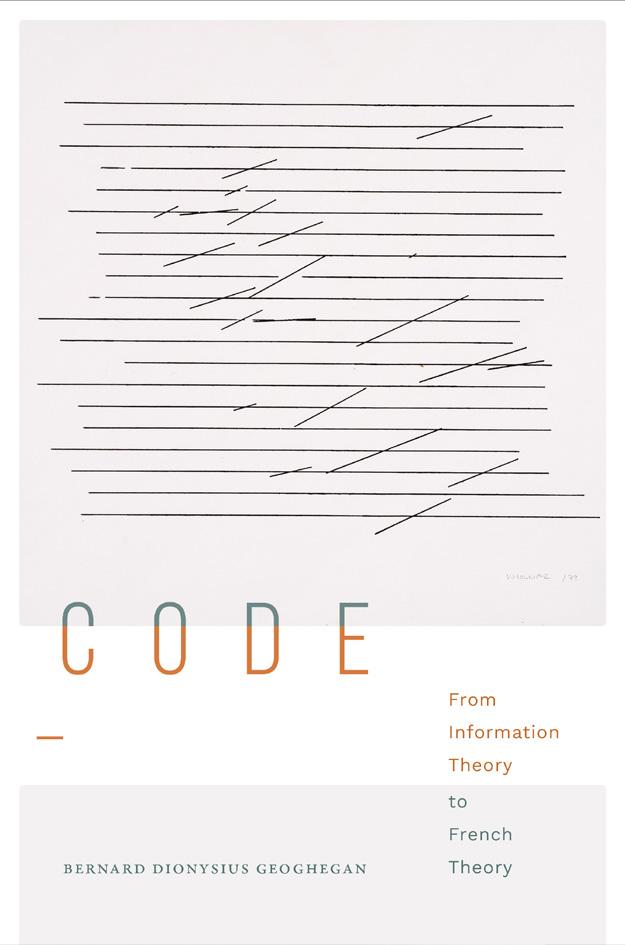
Bernard Dionysius Geoghegan is Senior Lecturer in the History and Theory of Digital Media at King’s College London.
March 2024
232 pages
Music / Popular Music / Media Studies / Cultural Studies
Rights: World
January 2023
272 pages
Science and Technology Studies / History of Technology / Theory and Philosophy / Media Studies
Rights: World
69 Duke University Press dukeupress.edu
Code
April 2024
184 pages
Literature
Rights: World
Sound and Silence
My Experience with China and Literature
LIANKE YAN
TRANSLATED AND WITH AN INTRODUCTION BY CARLOS ROJAS
Yan Lianke is a world-renowned author of novels, short stories, and essays whose provocative and nuanced writing explores the reality of everyday life in contemporary China. In Sound and Silence, Yan compares his literary project to a blind man carrying a flashlight at night whose role is to help others perceive the darkness that surrounds them. Often described as China’s most censored author, Yan reflects candidly on literary censorship in contemporary China. He outlines the Chinese state’s project of national amnesia that suppresses memories of past crises and social traumas. Although being banned in China is often a selling point in foreign markets, Yan argues that there is no necessary correlation between censorship and literary quality. Among other topics, Yan also examines the impact of American literature on Chinese literature in the 1980s and 1990s. Encapsulating his perspectives on life, writing, and literary history, Sound and Silence includes an introduction by translator Carlos Rojas and an afterword by Yan.
Yan Lianke is the author of Discovering Fiction, also published by Duke University Press, as well as Hard Like Water, The Day the Sun Died, The Explosion Chronicles, and many other books. Winner of the Franz Kafka Prize and a two-time finalist for the Man Booker International Prize, Yan teaches at Renmin University in Beijing and the Hong Kong University of Science and Technology. Carlos Rojas is Professor of Modern Chinese Cultural Studies at Duke University and translator of several of Yan’s novels.
Struggles for the Human Violent Legality and the Politics of Rights
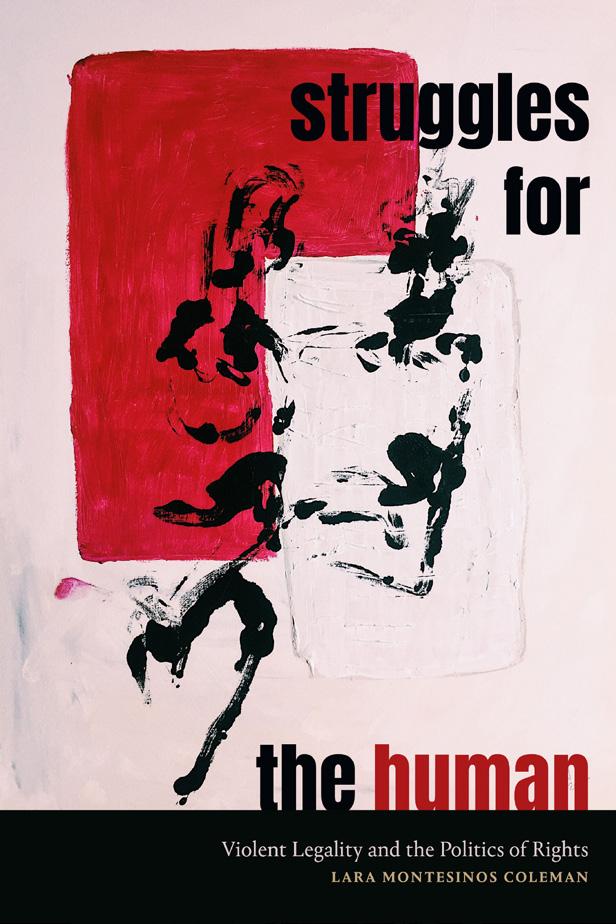 LARA MONTESINOS COLEMAN
LARA MONTESINOS COLEMAN
February 2024
264 pages
Legal Studies / Critical Theory
Rights: World
In Struggles for the Human, Lara Montesinos Coleman blends ethnography, political philosophy, and critical theory to reorient debates on human rights through attention to understandings of legality, ethics, and humanity in anticapitalist and decolonial struggle. Drawing on her extensive involvement with grassroots social movements in Colombia, Coleman observes that mainstream expressions of human rights have become counterparts to capitalist violence, even as this discourse disavows capitalism’s deadly implications. She rejects claims that human rights are inherently tied to capitalism, liberalism, or colonialism, instead showing how human rights can be used to combat these forces. Coleman demonstrates that social justice struggles that are rooted in marginalized communities’ lived experiences can reframe human rights in order to challenge oppressive power structures and offer a blueprint for constructing alternative political economies. By examining the practice of redefining human rights away from abstract universals and contextualizing them within concrete struggles for justice, Coleman reveals the transformative potential of human rights and invites readers to question and reshape dominant legal and ethical narratives.
Lara Montesinos Coleman is Reader in International Relations, Law, and Development and Director of the Centre for Global Political Economy at the University of Sussex and coeditor of Situating Global Resistance: Between Discipline and Dissent
70
Subterranean Matters
Cooperative Mining and Resource Nationalism in Plurinational Bolivia
ANDREA MARSTON
In Subterranean Matters, Andrea Marston examines the ongoing history of Bolivian mining cooperatives, an economic formation that has been central to Bolivian politics and to the country’s economy. Marston outlines how mining cooperatives occupy a contradictory place in Bolivian politics. They were major backers of left-wing president Evo Morales in 2006 and participated significantly in the crafting of the constitution that would declare Bolivia a plurinational state. At the same time, many Bolivians regard them as thieves because they derive personal profits from the subterranean mineral resources that are the legal inheritance of all Bolivians. Through extensive fieldwork underground in Bolivian cooperative mines, Marston explores how these miners—and the subterranean spaces they occupy—embody the tensions at the heart of Bolivia’s plurinational project. Marston shows how a shared feature of left-wing and right-wing politics in Bolivia is a persistent commitment to nation and nationalism, illustrating how bodies, identities, and resources fit into this complex political matrix.
The Color Black
Enslavement and Erasure in Iran
BEETA BAGHOOLIZADEH
In The Color Black, Beeta Baghoolizadeh traces the twin processes of enslavement and erasure of Black people in Iran during the nineteenth and twentieth centuries. She illustrates how geopolitical changes and technological advancements in the nineteenth century made enslaved East Africans uniquely visible in their servitude in wealthy and elite Iranian households. During this time, Blackness, Africanness, and enslavement became intertwined—and interchangeable—in Iranian imaginations. After the end of slavery in 1929, the implementation of abolition involved an active process of erasure on a national scale, such that a collective amnesia regarding slavery and racism persists today. The erasure of enslavement resulted in the erasure of Black Iranians as well. Baghoolizadeh draws on photographs, architecture, theater, circus acts, newspapers, films, and more to document how the politics of visibility framed discussions around enslavement and abolition during the nineteenth and twentieth centuries. In this way, Baghoolizadeh makes visible the people and histories that were erased from Iran and its diaspora.
March 2024
312 pages
Environmental Studies / Latin American Studies / Geography
Rights: World
March 2024
224 pages
Middle East Studies / Black Studies / History
Rights: World
71 Duke University Press
dukeupress.edu
Andrea Marston is Assistant Professor of Geography at Rutgers University.
Beeta Baghoolizadeh is Associate Research Scholar in the Sharmin and Bijan Mossavar-Rahmani Center for Iran and Persian Gulf Studies at Princeton University.
April 2024
248 pages
Literary Studies / Indigenous Studies / Environment
Rights: World
The Ocean on Fire
Pacific Stories from Nuclear Survivors and Climate Activists
ANAÏS MAURER
Bombarded with the equivalent of one Hiroshima bomb a day for half a century, Pacific people have long been subjected to man-made cataclysm. Well before climate change became a global concern, nuclear testing brought about untimely death, widespread diseases, forced migration, and irreparable destruction to the shores of Oceania. In The Ocean on Fire, Anaïs Maurer analyzes the Pacific literature that incriminates the environmental racism behind radioactive skies and rising seas. Maurer identifies strategies of resistance uniting the region by analyzing an extensive multilingual archive of decolonial Pacific art in French, Spanish, English, Tahitian, and Uvean, ranging from literature to songs and paintings. She shows how Pacific nuclear survivors’ stories reveal an alternative vision of the apocalypse: instead of promoting individualism and survivalism, they advocate mutual assistance, cultural resilience, South-South solidarities, and Indigenous women’s leadership. Drawing upon their experience resisting both nuclear colonialism and carbon imperialism, Pacific storytellers offer compelling narratives to nurture the land and each other in times of global environmental collapse.
The Prestes Column
An Interior History of Modern Brazil
March 2024
320 pages
Latin American History
Rights: World
JACOB BLANC
In The Prestes Column, Jacob Blanc offers a new interpretation of the legendary rebellion, in which a band of rebel officers and soldiers marched 15,000 miles through the vast interior regions of Brazil between 1924 and 1927. Blanc’s analysis of the Prestes Column is a showcase of what he calls “interior history.” At a pivotal moment in national politics, the long march of the column came to embody the constructed duality of Brazil’s interior: a space that was seen by coastal elites as simultaneously backwards—in relation to the more modern coast—and dormant, an expanse of untapped potential waiting to be brought into the nation. Drawing on a range of materials, from officers’ memoirs and local eye-witness accounts to physical memorials and government archives, Blanc’s framework of interior history helps explain the column’s initial rise to fame and also its enduring legacy across the twentieth century, offering a new approach for the study of space and nation.
Jacob Blanc is an Associate Professor of History and International Development Studies at McGill University, author of Before the Flood: The Itaipu Dam and the Visibility of Rural Brazil, also published by Duke University Press, and coeditor of Big Water: The Making of the Borderlands between Brazil, Argentina, and Paraguay
72
Anaïs Maurer is Assistant Professor of French and Comparative Literature at Rutgers University.
The Theological Metaphors of Marx
ENRIQUE DUSSEL TRANSLATED BY CAMILO PÉREZ-BUSTILLO WITH A FOREWORD BY EDUARDO MENDIETA
In The Theological Metaphors of Marx, Enrique Dussel provides a groundbreaking combination of Marxology, theology, and ethical theory. Dussel shows that Marx unveils the theology of capitalism in his critique of commodity fetishization. Capitalism constitutes an idolatry of the commodity that undergirds the capitalist expropriation of labor. Dussel examines Marx’s early writings on religion and fetishism and proceeds through what Dussel refers to as the four major drafts of Capital, ultimately situating Marx’s philosophical, economic, ethical, and historical insights in relation to the theological problems of his time. Dussel notes a shift in Marx’s underlying theological schema from a political critique of the state to an economic critique of the commodity fetish as the Devil, or anti-God, of modernity. Marx’s thought, impact, and influence cannot be fully understood without Dussel’s historic reinterpretation of the theological origins and implications of Marx’s critiques of political economy and politics.
Enrique Dussel is Emeritus Professor, Universidad Autonoma Metropolitana-Iztapalapa and the author of many books, including Twenty Theses on Politics and Ethics of Liberation: In the Age of Globalization and Exclusion, both also published by Duke University Press. Camilo Pérez-Bustillo is coauthor of Human Rights, Hegemony, and Utopia in Latin America Eduardo Mendieta is Professor of Philosophy and Latina/o at Pennsylvania State University.
Waiting for the Cool Moon
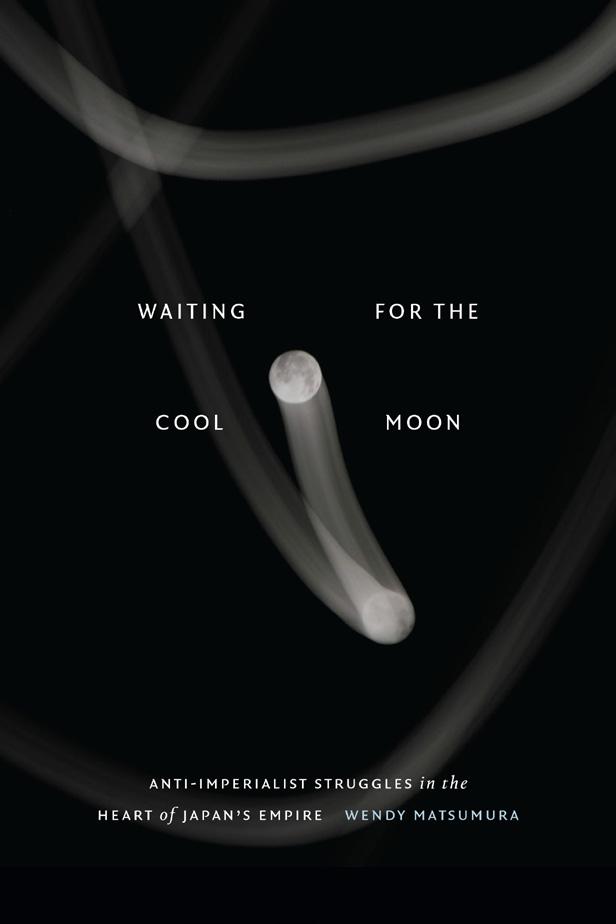
Anti-imperialist Struggles in the Heart of Japan's Empire A Study of the Weatherhead East Asian Institute
WENDY MATSUMURA
In Waiting for the Cool Moon Wendy Matsumura interrogates the erasure of colonial violence at the heart of Japanese nation-state formation. She critiques Japan studies’ role in this effacement and contends that it must engage with anti-Blackness and anti-Indigeneity as the grounds upon which to understand imperialism, colonialism, fascism, and other forces that shape national consciousness. Drawing on Black radical thinkers’ critique of the erasure of the Middle Passage in universalizing theories of modernity’s imbrication with fascism, Matsumura traces the consequences of the Japanese empire’s categorization of people into Human and less-than-human as they manifested in the 1920s and 1930s and the struggles of racialized and colonized people against imperialist violence. She treats the archives that racialized, colonized women throughout the empire safeguarded as traces of these struggles, including the work they performed to keep certain stories out of view. Matsumura demonstrates that tracing colonial sensibility and struggle is central to grappling with their enduring consequences to the present.
Wendy Matsumura is Associate Professor of History at the University of California, San Diego, and author of The Limits of Okinawa: Japanese Capitalism, Living Labor, and Theorizations of Community, also published by Duke University Press.
March 2024
248 pages
Theology / Marxism / Philosophy
Rights: World
January 2024
296 pages
Postcolonial and Colonial Studies / Theory and Philosophy / Asian Studies
Rights: World
73 Duke University Press dukeupress.edu
February 2024
408 pages
Anthropology / Film, Asian Studies
Rights: World
The Archival Afterlives of Philippine Cinema
BLISS CUA LIM
Drawing on cultural policy, queer and feminist theory, materialist media studies, and postcolonial historiography, Bliss Cua Lim analyzes the crisis-ridden history of Philippine film archiving—a history of lost films, limited access, and collapsed archives. Rather than denigrate underfunded Philippine audiovisual archives in contrast to institutions in the global North, The Archival Afterlives of Philippine Cinema shows how archival practices of making do can inspire alternative theoretical and historical approaches to cinema. Lim examines formal state and corporate archives, analyzing restorations of the last nitrate film and a star-studded lesbian classic, as well as archiving under the Marcos dictatorship. She also foregrounds informal archival efforts: a cinephilic video store specializing in vintage Tagalog classics; a micro-curatorial initiative for experimental films; and guerilla screenings for rural Visayan audiences. Throughout, Lim centers the improvisational creativity of audiovisual archivists, collectors, advocates, and amateurs who embrace imperfect access in the face of inhospitable conditions.
Bliss Cua Lim is Professor of Cinema Studies at the University of Toronto and the author of Translating Time: Cinema, the Fantastic, and Temporal Critique, also published by Duke University Press.
Streaming Music, Streaming Capital
ERIC DROTT
February 2024
360 pages
Music / Media Studies / Cultural Studies
Rights: World
In Streaming Music, Streaming Capital, Eric Drott analyzes the political economy of online music streaming platforms. Attentive to the way streaming has reordered the production, circulation, and consumption of music, Drott examines key features of this new musical economy, including the roles played by data collection, playlisting, new methods of copyright enforcement, and the calculation of listening metrics. Yet because streaming underscores how uneasily music sits within existing regimes of private property, its rise calls for a broader reconsideration of music’s complex and contradictory relation to capitalism. Not simply a matter of how music is formatted in line with dominant measures of economic value, equally important for Drott’s analysis is how music eludes such measures, a situation that threatens to reduce music to a cheap, abundant resource. By interrogating the tensions between streaming’s benefits and pitfalls, Drott sheds light on music’s situation within digital capitalism, from growing concentrations of monopoly power and music’s use in corporate surveillance to issues of musical value, labor, and artist pay.
Eric Drott is Associate Professor of Music Theory at the University of Texas at Austin and author of Music and the Elusive Revolution: Cultural Politics and Political Culture in France, 1968–1981
74
The Rock of Arles

RICHARD KLEIN
Founded 2600 years ago on a massive limestone eminence, the city of Arles has been the home of Roman emperors and captured slaves, pagan temples and Christian spires, bloody revolutionaries and powerful papists. In The Rock of Arles Richard Klein relays the history of the city as told to him by the Rock, its genius loci, which infallibly remembers every moment of its existence, from the Roman conquest of Gaul to the fall of feudal aristocracy, from the domination of the Catholic Church to the present representative democracy. The Rock’s contrarian and dissident history resurrects the memory of three of the city’s most radical yet largely forgotten revolutionary minds: Hellenistic philosopher Favorinus, medieval Hebrew poet Kalonymus ben Kalonymus, and the revolutionary aristocrat Pierre-Antoine Antonelle. For the Rock, each figure represents a freethinking current running through Arlesian history, which contested the reactionary, bigoted forces that governed the city for fifteen centuries. Erudite, witty, and opinionated, the Rock tells the story of Arles in order to sketch the broader canvas of European history while invoking the city’s possible future.
Richard Klein is Professor Emeritus of Romance Studies at Cornell University and author of Cigarettes are Sublime, also published by Duke University Press, Jewelry Talks: A Novel Thesis, and Eat Fat
Platinum Bible of the Public Toilet
Ten Queer Stories
CUI ZI'EN
February 2024
176 pages
Literature and Literary Studies / History
Rights: World
EDITED AND WITH AN INTRODUCTION BY
PETRUS LIU AND LISA ROFEL
Platinum Bible of the Public Toilet is the first English-language collection of short stories by Cui Zi’en, China’s most famous and controversial queer filmmaker, writer, scholar, and LGBTQ rights activist. Drawing on his own experiences growing up in socialist and postsocialist China, Cui presents ten queer coming-of-age stories of young boys and men as they explore their sexuality and desires. From a surreal fairytale depicting a ragtag crew of neighborhood boys in the throes of sexual awakening to a chronicle of the gender-bending and homoerotic entanglements of university students to romantic love triangle erotica to a story that examines teacher-student love and the norms of sex and age, Cui centers queer sexuality as a core part of human experience. Richly imaginative and vividly written, Platinum Bible of the Public Toilet portrays the emergence of queer cultures in postsocialist China while foregrounding the commitments to one’s erotic and passionate attractions even as they lead to cultural transgressions. This volume includes a foreword by and an interview with the author.
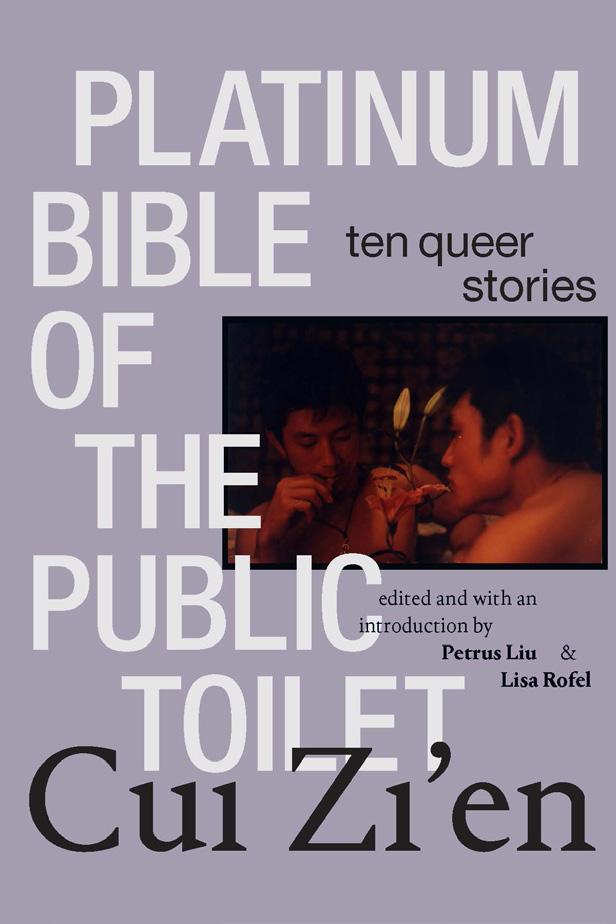
Cui Zi’en is a film director, writer, and activist. He is Associate Professor at the Film Research Institute of the Beijing Film Academy. Petrus Liu is Associate Professor of Chinese and Comparative Literature at Boston University. Lisa Rofel is Professor Emerita of Anthropology at the University of California, Santa Cruz.
February 2024
312 pages
Gender and Sexuality / Literature and Literary Studies
Rights: World
75 Duke University Press dukeupress.edu
February 2024
248 pages
Science and Technology Studies / Cultural Studies / Environmental Studies
Rights: World
Oceaning
Governing Marine Life with Drones

ADAM FISH
Drones are revolutionizing ocean conservation. By flying closer and seeing more, drones enhance intimate contact between ocean scientists and activists and marine life. In the process, new dependencies between nature, technology, and humans emerge, and a paradox becomes apparent. Can we have a wild ocean whose survival is reliant upon technology?
In Oceaning, Adam Fish answers this question through eight stories of piloting drones to stop the killing of porpoises, sharks, and seabirds and to check the vitality of whales, seals, turtles, and coral reefs. Drone conservation is not the end of nature. Instead, drone conservation results in an ocean whose flourishing both depends upon and escapes the control of technologies. Faulty technology, oceanic and atmospheric turbulence, political corruption, and the inadequacies of basic science serve to foil the governance over nature. Fish contends that what emerges is an ocean/culture—a flourishing ocean that is distinct from but exists alongside humanity.
Adam Fish is a Scientia Associate Professor of Arts and the Media at the University of New South Wales, author of Technoliberalism and the End of Participatory Culture in the United States, and coauthor of Hacker States and After the Internet
At the Vanguard of Vinyl
A Cultural History of the Long-Playing Record in Jazz
March 2024
424 pages
Music / Media Studies / Cultural Studies
Rights: World
DARREN MUELLER
In At the Vanguard of Vinyl Darren Mueller examines how the advent of the long-playing record (LP) in 1948 revolutionized the recording and production of jazz in the 1950s. The LP’s increased fidelity and playback capacity allowed lengthy compositions and extended improvisations to fit onto a single record, ushering in a period of artistic exploration. Despite these innovations, LP production became another site of negotiating the uneven power relations of a heavily segregated music industry. Exploring how musicians, producers, and other industry professionals navigated these dynamics, Mueller contends that the practice of making LPs significantly changed how jazz was created, heard, and understood in the 1950s and beyond. By attending to the details of audio production, he reveals how Black musicians such as Louis Armstrong, Miles Davis, Duke Ellington, and Charles Mingus worked to redefine prevailing notions of race and cultural difference within the United States. Mueller demonstrates that the LP emerges as a medium of sound and culture that maps onto the more expansive sonic terrain of Black modernity in 1950s.
Darren Mueller is Assistant Professor of Musicology at the Eastman School of Music, University of Rochester, and coeditor of Digital Sound Studies, also published by Duke University Press.
76
The Fold
From Your Body to the Cosmos LAURA U. MARKS
In The Fold, Laura U. Marks offers a practical philosophy and aesthetic theory for living in an infinitely connected cosmos. Drawing on the theories of Leibniz, Glissant, Deleuze, and theoretical physicist David Bohm—who each conceive of the universe as being folded in on itself in myriad ways—Marks contends that the folds of the cosmos are entirely constituted of living beings. From humans to sandwiches to software to stars, every entity is alive and occupies its own private enclosure inside the cosmos. Through analyses of fiction, documentary, and experimental movies, interactive media, and everyday situations, Marks outlines embodied methods for detecting and augmenting the connections between each living entity and the cosmos. She shows that by affectively mediating with the ever-shifting folded relations within the cosmos, it is possible to build “soul-assemblages” that challenge information capitalism, colonialism, and other power structures and develop new connections with the infinite. With this guide for living within the enfolded and unfolding cosmos, Marks teaches readers to richly apprehend the world and to trace the processes of becoming that are immanent within the fold.
Laura U. Marks is Grant Strate University Professor at Simon Fraser University and author of The Skin of the Film: Intercultural Cinema, Embodiment, and the Senses, also published by Duke University Press, and Hanan al-Cinema: Affections for the Moving Image, among other books.
Camera Geologica An Elemental History of Photography
SIOBHAN ANGUS
In Camera Geologica Siobhan Angus tells the history of photography through the minerals upon which the medium depends. Challenging the emphasis on immateriality in discourses on photography, Angus focuses on the inextricable links between image-making and resource extraction, revealing how the mining of bitumen, silver, platinum, iron, uranium, and rare-earth metals is a precondition of photography. Photography, Angus contends, begins underground and, through photographs of mines and mining, frequently returns there. Through a materials-driven analysis of visual culture, she illustrates histories of colonization, labor, and environmental degradation to expose the ways in which photography is enmeshed within and enables global extractive capitalism. Angus places nineteenth-century photography in dialogue with digital photography and its own entangled economies of extraction, demonstrating the importance of understanding photography’s complicity in the economic, geopolitical, and social systems that order the world.
Siobhan Angus is Assistant Professor of Communication and Media Studies at Carleton University.
March 2024
328 pages
Theory and Philosophy / Media Studies / Art and Visual Culture
Rights: World
March 2024
320 pages
Science and Technology Studies / Art and Visual Culture
Rights: World
77 Duke University Press dukeupress.edu
March 2024
216 pages
Anthropology / Trans Studies / Middle East Studies
Rights: World
Violent Intimacies
The Trans Everyday and the Making of an Urban World ASLI ZENGIN
In Violent Intimacies, Aslı Zengin traces how trans people in Turkey creatively negotiate and resist everyday cisheteronormative violence. Drawing on the history and ethnography of the trans communal life in Istanbul, Zengin develops an understanding of cisheteronormative violence that expands beyond sex, gender and sexuality. She shows how cisheteronormativity forms a connective tissue among neoliberal governmentality, biopolitical and necropolitical regimes, nationalist religiosity and authoritarian management of social difference. As much as trans people are shaped by these processes, they also transform them in intimate ways. Transness in Turkey provides an insightful site for developing new perspectives on statecraft, securitization and surveillance, family and kin-making, urban geography, and political life. Zengin offers the concept of violent intimacies to theorize this entangled world of the trans everyday where violence and intimacy are co-constitutive. Violent intimacies emerge from trans people’s everyday interactions with the police, religious and medical institutions, street life, family and kinship, and trans femicides and funerals. The dynamic of violent intimacies prompts new understandings of violence and intimacy and the world-making struggles of trans people in a Middle Eastern context.
78
Aslı Zengin is Assistant Professor of Women’s, Gender, and Sexuality Studies at Rutgers University.
Utopia of the Uniform
Affective Afterlives of the Yugoslav People's Army
TANJA PETROVI Ć
The compulsory service for young men in the Yugoslav People’s Army (JNA) created bonds across ethnic, religious, and social lines. These bonds persisted even after the horrific violence of the 1990s in which many of these men found themselves on the opposite sides of the frontlines. In Utopia of the Uniform, Tanja Petrović draws on memories and material effects of dozens of JNA conscripts to show how their experience of military service points to futures, forms of collectivity, and relations between the state and the individual alternative to those that prevailed in the post-Yugoslav reality. Petrović argues that the power of repetitive, ritualized, and performative practices that constituted the military service in the JNA provided a framework for drastically different men to live together and befriend each other. While Petrović and her interlocutors do not idealize the JNA, they acknowledge its capacity to create interpersonal relationships and affective bonds that brought the key political ideas of collectivity, solidarity, egalitarianism, education, and comradeship into being.
Tanja Petrović is Head of the Institute of Culture and Memory Studies at the Research Center of the Slovenian Academy of Sciences and Arts. She is the author of numerous books, including A Long Way Home: Representation of the Western Balkans in Political and Media Discourses
A Book of Waves

STEFAN HELMREICH
In A Book of Waves Stefan Helmreich examines ocean waves as forms of media that carry ecological, geopolitical, and climatological news about our planet. Drawing on ethnographic work with oceanographers and coastal engineers in the Netherlands, the United States, Australia, Japan, and Bangladesh, Helmreich details how scientists at sea and in the lab apprehend waves’ materiality through abstractions, seeking to capture in technical language these avatars of nature at once periodic and irreversible, wild and pacific, ephemeral and eternal. For researchers and their publics, the meanings of waves also reflect visions of the ocean as an environmental infrastructure fundamental to trade, travel, warfare, humanitarian rescue, recreation, and managing sea level rise. Interleaving ethnographic chapters with reflections on waves in mythology, surf culture, feminist theory, film, Indigenous Pacific activisms, Black Atlantic history, cosmology, and more, Helmreich demonstrates how waves mark out the wakes and breaks of social histories and futures.
Stefan Helmreich is Professor of Anthropology at the Massachusetts Institute of Technology and author of Sounding the Limits of Life: Essays in the Anthropology of Biology and Beyond, Alien Ocean: Anthropological Voyages in Microbial Seas, and Silicon Second Nature: Culturing Artificial Life in a Digital World
March 2024
256 pages
History / Anthropology / Postsocialism
Rights: World
August 2023
432 pages
Science and Technology Studies / Anthropology / Cultural Anthropology / Cultural Studies / Ocean Studies
Rights: World
79 Duke University Press dukeupress.edu
January 2023
368 pages
Gender and Sexuality / Queer Theory / Literature and Literary Studies / Literary Theory / Theory and Philosophy
Rights: World
Bad Education
Why Queer Theory Teaches Us Nothing
LEE EDELMAN
Long awaited after No Future, and making queer theory controversial again, Lee Edelman’s Bad Education proposes a queerness without positive identity—a queerness understood as a figural name for the void, itself unnamable, around which the social order takes shape. Like Blackness, woman, incest, and sex, queerness, as Edelman explains it, designates the antagonism, the structuring negativity, preventing that order from achieving coherence. But when certain types of persons get read as literalizing queerness, the negation of their negativity can seem to resolve the social antagonism and totalize community. By translating the nothing of queerness into the something of “the queer,” the order of meaning defends against the senselessness that undoes it, thus mirroring, Edelman argues, education’s response to queerness: its sublimation of irony into the meaningfulness of a world. Putting queerness in relation to Lacan’s “ab-sens” and in dialogue with feminist and Afropessimist thought, Edelman reads works by Shakespeare, Jacobs, Almodóvar, Lemmons, and Haneke, among others, to show why queer theory’s engagement with queerness necessarily results in a bad education that is destined to teach us nothing.
Lee Edelman is Fletcher Professor of English Literature at Tufts University, author of No Future: Queer Theory and the Death Drive, and coauthor, with Lauren Berlant, of Sex, or the Unbearable, both also published by Duke University Press.
Wake Up, This Is Joburg
WORDS BY TANYA ZACK, PHOTOGRAPHS BY MARK LEWIS
A single image taken from a high-rise building in inner-city Johannesburg uncovers layers of history—from its premise and promise of gold to its current improvisations. It reveals the city as carcass and as crucible, where informal agents and processes spearhead its rapid reshaping and transformation. In Wake Up, This Is Joburg, writer Tanya Zack and photographer Mark Lewis offer a stunning portrait of Johannesburg and personal stories of some of the city’s ordinary, odd, and outrageous residents. Their photos and essays take readers into meat markets where butchers chop cow heads; the eclectic home of an outsider artist that features turrets and full of manikins; long-abandoned gold pits beneath the city, where people continue to mine informally; and lively markets, taxi depots, and residential highrises. Sharing people’s private and work lives and the extraordinary spaces of the metropolis, Zack and Lewis show that Johannesburg’s urban transformation occurs not in a series of dramatic, wide-scale changes but in the everyday lives, actions, and dreams of individuals.

Tanya Zack is an urban planner, writer, and Visiting Researcher at the University of the Witwatersrand. Mark Lewis is a photographer who lives in Johannesburg.
January 2023
368 pages
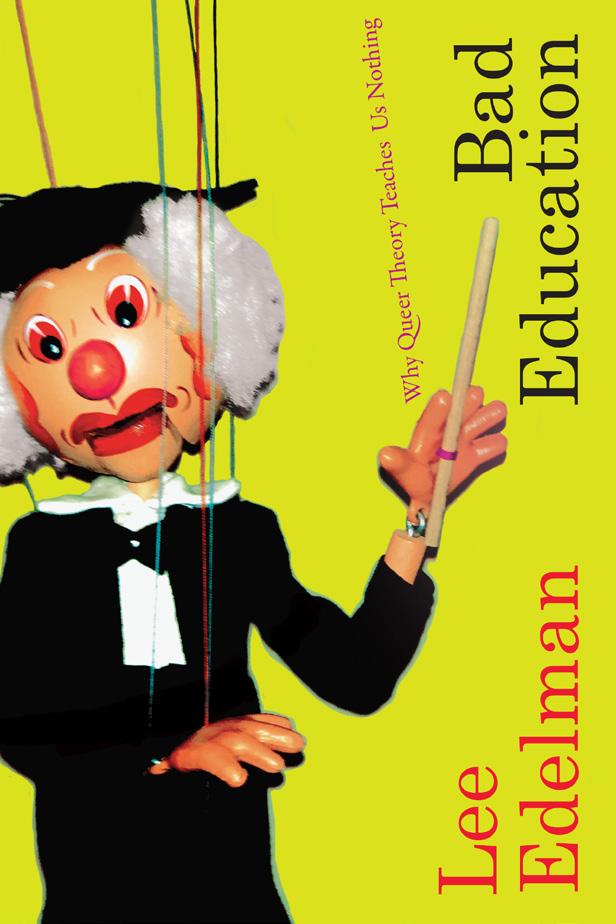
Sociology / Urban Studies / African Studies / Art and Visual Culture / Photography
Rights: World
80
New World Orderings

China and the Global South
LISA ROFEL AND CARLOS ROJAS, EDITORS
The contributors to New World Orderings demonstrate that China’s twenty-first-century rise occurs not only through economics and state politics but equally through the mutual entanglements of overlapping social, economic, and cultural worlds in Southeast Asia, Africa, and Latin America. They show how the Chinese state has sought to reconfigure the nation’s position in the world and the centrality of trade, labor, religion, migration, gender, race, and literature to this reconfiguration. Among other topics, the contributors examine China’s post-Bandung cultural diplomacy with African nations, how West African “pastor-entrepreneurs” in China interpreted and preached the prosperity doctrine, the diversity of Chinese-Argentine social relations in the soy supply chain, and the ties between China and India within the complex history of inter-Asian exchange and Chinese migration to Southeast Asia. By examining China’s long historical relationship with the Global South, this volume presents a non-state-centric history of China that foregrounds the importance of transnational communicative and imaginative worldmaking processes and interactions. Contributors. Andrea Bachner, Luciano Damián Bolinaga, Nellie Chu, Rachel Cypher, Mingwei Huang, T. Tu Huynh, Yu-lin Lee, Ng Kim Chew, Lisa Rofel, Carlos Rojas, Shuang Shen, Derek Sheridan, Nicolai Volland
Lisa Rofel is Professor Emerita of Anthropology at the University of California, Santa Cruz, and author of Desiring China: Experiments in Neoliberalism, Sexuality, and Public Culture, also published by Duke University Press. Carlos Rojas is Professor of Asian and Middle Eastern Studies at Duke University and author of Homesickness: Culture, Contagion, and National Transformation in Modern China
an other
a black feminist consideration of animal life

SHARON PATRICIA HOLLAND
In an other, Sharon Patricia Holland offers a new theorization of the human animal/divide by shifting focus from distinction toward relation in ways that acknowledge that humans are also animals. Holland centers ethical commitments over ontological concerns to spotlight those moments when Black people ethically relate with animals. Drawing on writers and thinkers ranging from Hortense Spillers, Sara Ahmed, Toni Morrison, and C. E. Morgan to Jane Bennett, Jacques Derrida, and Donna Haraway, Holland decenters the human in Black feminist thought to interrogate blackness, insurgence, flesh, and femaleness. She examines MOVE’s incarnation as an animal liberation group; uses sovereignty in Morrison’s A Mercy to understand blackness, indigeneity, and the animal; analyzes Charles Burnett’s films as commentaries on the place of animals in Black life; and shows how equestrian novels address Black and animal life in ways that rehearse the practices of the slavocracy. By focusing on doing rather than being, Holland demonstrates that Black life is not solely likened to animal life; it is relational and world-forming with animal lives.
Sharon Patricia Holland is Townsend Ludington Distinguished Professor of American Studies at the University of North Carolina at Chapel Hill, and author of The Erotic Life of Racism and Raising the Dead: Readings of Death and (Black) Subjectivity, both also published by Duke University Press.
January 2023
280 pages
Globalization and Neoliberalism / Anthropology / Asian Studies / East Asia
Rights: World
August 2023
344 pages
Theory and Philosophy / Feminist Theory / Cultural Studies / Animal Studies / African American Studies and Black Diaspora
Rights: World
81 Duke University Press dukeupress.edu
November 2023
288 pages
Literature and Literary Studies / Theory and Philosophy / African American Studies and Black Diaspora Rights: World
Fugitive Time
Global Aesthetics and the Black Beyond MATTHEW OMELSKY
In Fugitive Time, Matthew Omelsky theorizes the embodied experience of time in twentiethand twenty-first-century black artforms from across the world. Through the lens of time, he charts the sensations and coursing thoughts that accompany desires for freedom as they appear in the work of artists as varied as Toni Morrison, Yvonne Vera, Aimé Césaire, and Issa Samb. “Fugitive time” names a distinct utopian desire directed at the anticipated moment when the body and mind have been unburdened of the violence that has consumed black life globally for centuries, bringing with it a new form of being. Omelsky shows how fugitive time is not about attaining this transcendent release, but instead sustaining the idea of it as an ecstatic social gathering. From the desire for ethereal queer worlds in the Black Audio Film Collective’s Twilight City to Sun Ra’s transformation of nineteenth-century scientific racism into an insurgent fugitive aesthetic, Omelsky shows how fugitive time evolves and how it remains a dominant form of imagining freedom in global black cultural expression.

Matthew Omelsky is Assistant Professor of English at the University of Rochester.
Dreams in Double Time On Race, Freedom, and Bebop JONATHAN LEAL
August 2023
256 pages
Music / Jazz / American Studies / Critical Ethnic Studies
Rights: World
In Dreams in Double Time Jonathan Leal examines how the musical revolution of bebop opened up new futures for racialized and minoritized communities. Blending lyrical nonfiction with transdisciplinary critique and moving beyond standard Black/white binary narratives of jazz history, Leal focuses on the stories and experiences of three musicians and writers of color: James Araki, a Nisei multi-instrumentalist, soldier-translator, and literature and folklore scholar; Raúl Salinas, a Chicano poet, jazz critic, and longtime activist who endured the US carceral system for over a decade; and Harold Wing, an Afro-Chinese American drummer, pianist, and songwriter who performed with bebop pioneers before working as a public servant. Leal foregrounds that for these men and their collaborators, bebop was an affectively and intellectually powerful force that helped them build community and dream new social possibilities. Bebop’s complexity and radicality, Leal contends, made it possible for those like Araki, Salinas, and Wing who grappled daily with state-sanctioned violence to challenge a racially supremacist, imperial nation, all while hearing and making the world anew.
Jonathan Leal is Assistant Professor of English at the University of Southern California and coeditor of Cybermedia: Explorations in Science, Sound, and Vision
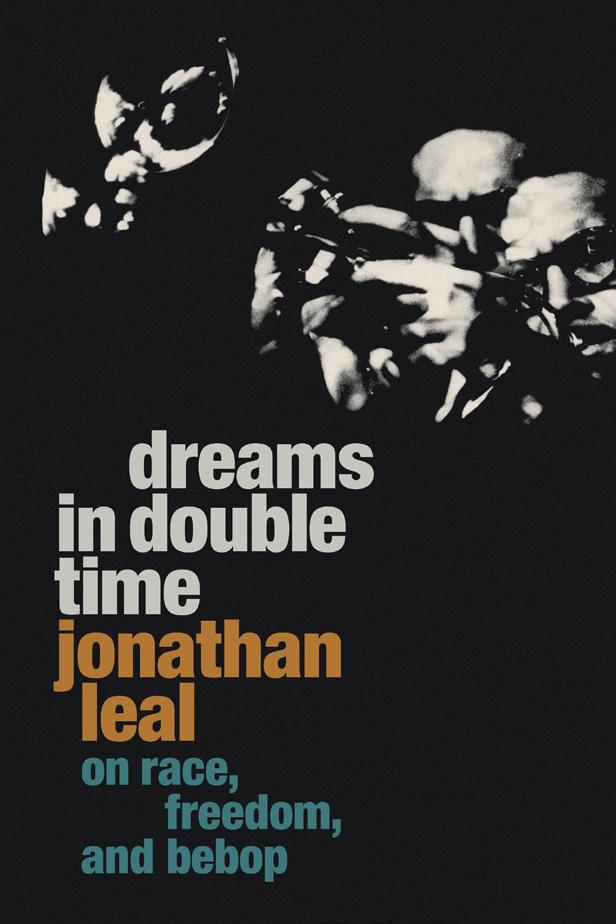
82
The Center Cannot Hold
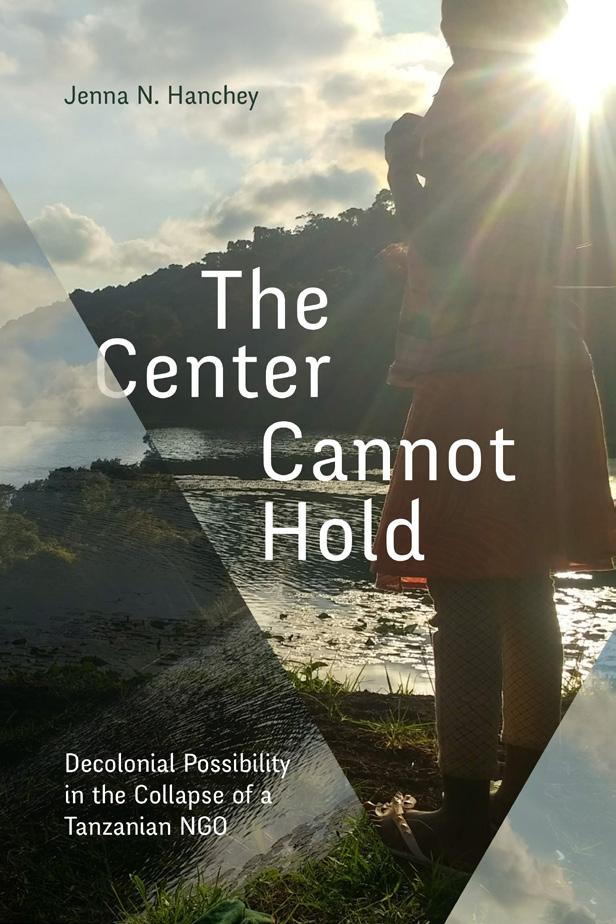
Decolonial Possibility in the Collapse of a Tanzanian NGO
JENNA
N. HANCHEY
In The Center Cannot Hold Jenna N. Hanchey examines the decolonial potential emerging from processes of ruination and collapse. Drawing on ethnographic fieldwork in rural Tanzania at an internationally funded NGO as it underwent dissolution, Hanchey traces the conflicts between local leadership and Western paternalism as well as the unstable subjectivity of Western volunteers—including the author—who are unable to withstand the contradictions of playing the dual roles of decolonializing ally and white savior. She argues that Western institutional and mental structures must be allowed to fall apart to make possible the emergence of decolonial justice. Hanchey shows how, through ruination, privileged subjects come to critical awareness through repeated encounters with their own complicity, providing an opportunity to delink from and oppose epistemologies of coloniality. After things fall apart, Hanchey posits, the creation of decolonial futures depends on the labor required to imagine impossible futures into being.
Jenna N. Hanchey is Assistant Professor of Rhetoric and Critical/Cultural Studies at Arizona State University.
Indifference
On the Praxis of Interspecies Being NAISARGI N. DAVÉ
In Indifference, Naisargi N. Davé examines the complex worlds of animalists and animalism in India. Through ethnographic fieldwork with animal healers, animal activists, farmers, laborers, transporters, and animals themselves, and moving across animal shelters and dairy farms to city streets and abattoirs, Davé shows how human-animal relations often manifest through care and violence. More surprisingly, what Davé also finds animating interspecies relationality in India is an ethic of indifference---that is, an orientation of mutual regard rather than curiosity, love, desire, or animus. For Davé, indifference is a respect for others in their otherness that allows human and nonhuman animals to flourish in immanent encounters. Indifference, then, becomes the basis for an interspecies ethics and a method of care and practice in everyday life. With indifference, Davé describes both a mode of relationality in the world and a scholarly approach: seeking what is possible when we approach ethico-political concepts with indifference rather than commitment or antagonism. Moments of indifference, Davé contends, offer the promise of otherwise worlds.
Naisargi N. Davé is Associate Professor of Anthropology at the University of Toronto and author of Queer Activism in India: A Story in the Anthropology of Ethics, also published by Duke University Press.
August 2023
248 pages
Postcolonial and Colonial Studies / Anthropology / African Studies
Rights: World
August 2023
208 pages
Gender and Sexuality / Queer Theory / Anthropology / Cultural Studies / Animal Studies
Rights: World

83 Duke University Press dukeupress.edu
November 2023
264 pages
Native and Indigenous Studies / Science and Technology Studies / Anthropology
Rights: World
Haunting Biology
Science and Indigeneity in Australia
EMMA KOWAL
In Haunting Biology Emma Kowal recounts the troubled history of Western biological studies of Indigenous Australians and asks how we now might see contemporary genomics, especially that conducted by Aboriginal and Torres Strait Islander scientists. Kowal illustrates how the material persistence of samples over decades and centuries folds together the fates of different scientific methodologies. Blood, bones, hair, comparative anatomy, human biology, physiology, and anthropological genetics all haunt each other across time and space, together with the many racial theories they produced and sustained. The stories Kowal tells feature a variety of ghostly presences: a dead anatomist, a fetishized piece of hair hidden away in a war trunk, and an elusive white Indigenous person. By linking this history to contemporary genomics and twenty-first-century Indigeneity, Kowal outlines the fraught complexities, perils, and potentials of studying Indigenous biological difference in the twenty-first century.
Emma Kowal is Alfred Deakin Professor of Anthropology at Deakin University, author of Trapped in the Gap: Doing Good in Indigenous Australia, and coeditor of Cryopolitics: Frozen Life in a Melting World
Artifactual
Forensic and Documentary Knowing ELIZABETH ANNE
DAVIS
In Artifactual, Elizabeth Anne Davis explores how Cypriot researchers, scientists, activists, and artists process and reckon with civil and state violence that led to the enduring division of the island, using forensic and documentary materials to retell and recontextualize conflicts between and within the Greek-Cypriot and Turkish-Cypriot communities. Davis follows forensic archaeologists and anthropologists who attempt to locate, identify, and return to relatives the remains of Cypriots killed in those conflicts. She turns to filmmakers who use archival photographs and footage to come to terms with political violence and its legacies. In both forensic science and documentary filmmaking, the dynamics of secrecy and revelation shape how material remains such as bones and archival images are given meaning. Throughout, Davis demonstrates how Cypriots navigate the tension between an ethics of knowledge, which valorizes truth as a prerequisite for recovery and reconciliation, and the politics of knowledge, which renders evidence as irremediably partial and perpetually falsifiable.
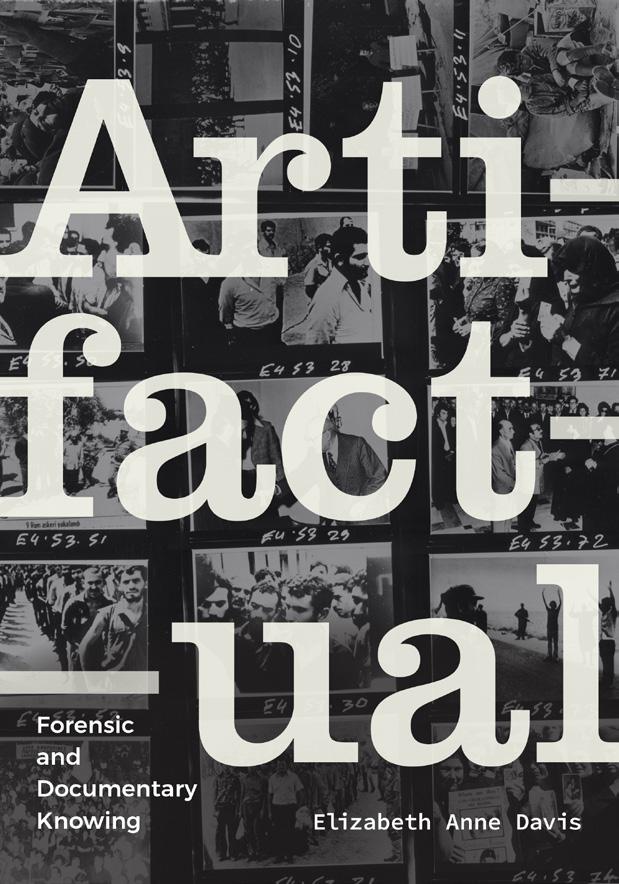
August 2023
400 pages
Globalization and Neoliberalism / Cultural Anthropology / Art and Visual Culture
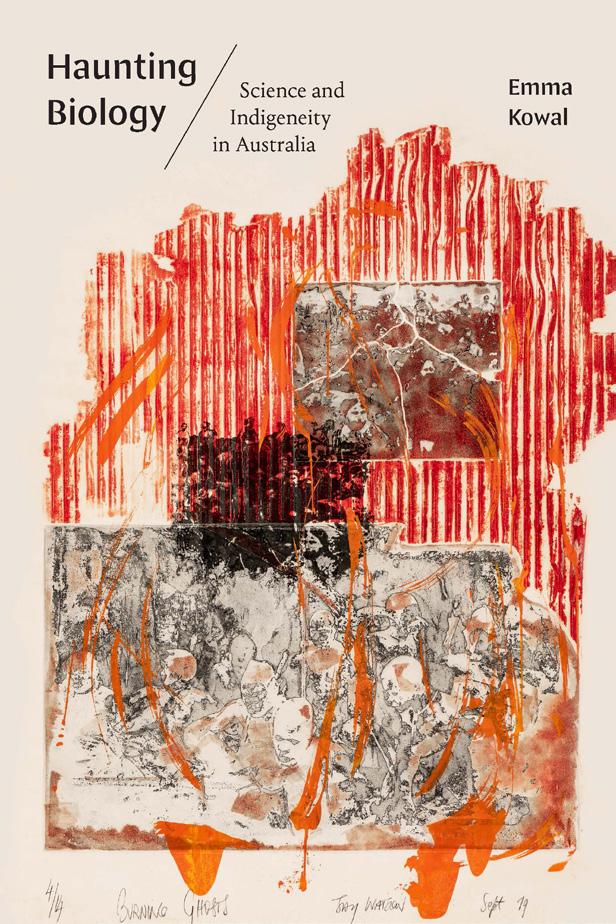
Rights: World
Elizabeth Anne Davis is Associate Professor of Anthropology at Princeton University and author of Bad Souls: Madness and Responsibility in Modern Greece, also published by Duke University Press.
84
Borderland Dreams

The Transnational Lives of Korean Chinese Workers
JUNE HEE KWON
In Borderland Dreams June Hee Kwon explores the trajectory of the “Korean dream” that has fueled the massive migration of Korean Chinese workers from the Korean Autonomous Prefecture of Yanbian in northeast China to South Korea since the early 1990s. Charting the interplay of bodies, money, and time, the ethnography reveals how these migrant workers, in the course of pursuing their borderland dreams, are transformed into a transnational ethnicized class. Kwon analyzes the persistent desire of Korean Chinese to “leave to live better” at the intersection between the neoliberalizing regimes of post-socialist China and post–Cold War South Korea. Scrutinizing the tensions and affinities among the Korean Chinese, North and South Koreans, and Han Chinese whose lives intertwine in the borderland, Kwon captures the diverse and multifaceted aspirations of Korean Chinese workers caught between the ascendant Chinese dream and the waning Korean dream.
June Hee Kwon is Associate Professor of Asian Studies at California State University, Sacramento.
Unseen Flesh
Gynecology and Black Queer Worth-Making in Brazil
NESSETTE FALU
In Unseen Flesh Nessette Falu explores how Black lesbians in Brazil define and sustain their well-being and self-worth against persistent racial, sexual, class, and gender-based prejudice. Focusing on the trauma caused by interactions with gynecologists, Falu draws on in-depth ethnographic work among the Black lesbian community to reveal their profoundly negative affective experiences within Brazil’s deeply biased medical system. In the face of such entrenched, intersectional intimate violence, Falu’s informants actively pursue well-being in ways that channel their struggle for self-worth toward broader goals of social change, self care, and communal action. Demonstrating how the racist and heteronormative underpinnings of gynecology erase Black lesbian subjecthood through mental, emotional, and physical traumas, Falu explores the daily resistance and abolitionist practices of worth-making that claim and sustain Black queer identity and living. Falu rethinks the medicalization of race, sex, and gender in Brazil and elsewhere while offering a new perspective on Black queer life through well-being grounded in relationships, socioeconomic struggles, the erotic, and freedom strivings.

Nessette Falu is Assistant Professor of African and African Diaspora Studies at the University of Texas at Austin.
November 2023
256 pages
Sociology, Anthropology / Cultural Anthropology / Asian Studies / East Asia
Rights: World
September 2023
216 pages
Gender and Sexuality / LGBTQ Studies / Anthropology / Cultural Anthropology / Latin American Studies / Brazil
Rights: World
85 Duke University Press dukeupress.edu
August 2023
368 pages
Anthropology / Cultural Anthropology / Asian Studies / Southeast Asia / Art and Visual Culture
Rights: World
At the Pivot of East and West Ethnographic, Literary, and Filmic Arts MICHAEL M. J. FISCHER

In At the Pivot of East and West, Michael M. J. Fischer examines documentary filmmaking and literature from Southeast Asia and Singapore for their para-ethnographic insights into politics, culture, and aesthetics. Women novelists—Lydia Kwa, Laksmi Pamuntjak, Sandi Tan, Jing Jing Lee, and Danielle Lim—renarrate Southeast Asian generational and political worlds as gendered psychodramas, while filmmakers Tan Pin Pin and Daniel Hui use film to probe into what can better be seen beyond textual worlds. Other writers like Daren Goh, Kevin Martens Wong, and Nuraliah Norasid reinvent the detective story for the age of artificial intelligence, use monsters to reimagine the Southeast Asian archipelago, and critique racism and the erasure of ethnic cultural histories. Continuing his project of applying anthropological thinking to the creative arts, Fischer exemplifies how art and fiction trace the ways in which taken-for-granted common sense changes over time, speak to the transnational present, and track signals of the future before they surface in public awareness.
Michael M. J. Fischer is Andrew W. Mellon Professor in the Humanities and Professor of Anthropology and Science and Technology Studies at the Massachusetts Institute of Technology. He is the author of numerous books, including Probing Arts and Emergent Forms of Life and Anthropology in the Meantime: Experimental Ethnography, Theory, and Method for the Twenty-First Century, both also published by Duke University Press.
Brown Saviors and Their Others
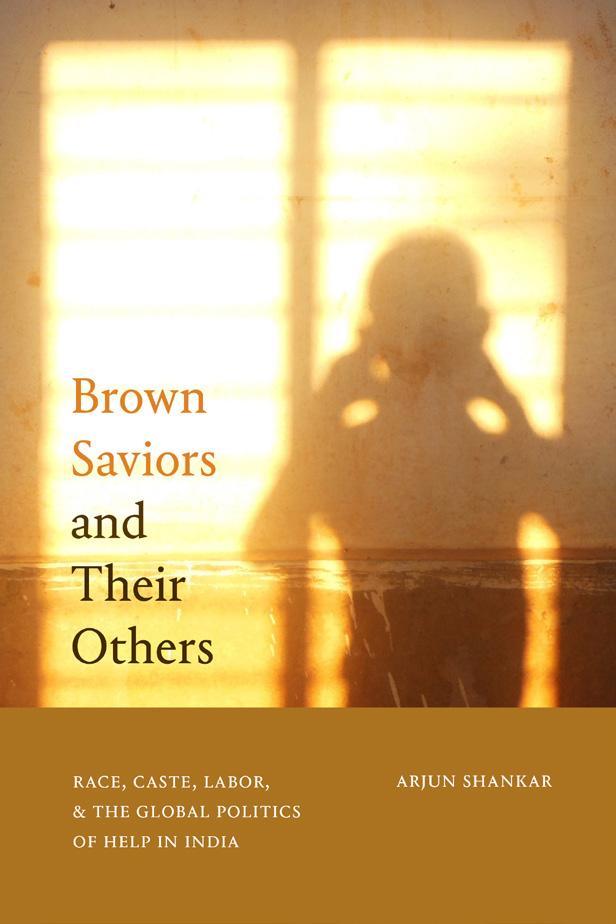
Race, Caste, Labor, and the Global Politics of Help in India
ARJUN SHANKAR
In Brown Saviors and Their Others Arjun Shankar draws from his ethnographic work with an educational NGO to investigate the practices of “brown saviors”—globally mobile, dominant-caste, liberal Indian and Indian diasporic technocrats who drive India’s help economy. Shankar argues that these brown saviors actually reproduce many of the racialized values and ideologies associated with who and how to help that have been passed down from the colonial period, while masking other operations of power behind the racial politics of global brownness. In India, these operations of power center largely on the transnational labor politics of caste. Ever attentive to moments of discomfort and complicity, Shankar develops a method of “nervous ethnography” to uncover the global racial hierarchies, graded caste stratifications, urban/rural distinctions, and digital panaceas that shape the politics of help in India. Through nervous critique, Shankar introduces a framework for the study of the global help economies that reckons with the ongoing legacies of racial and caste capitalism.
August 2023
360 pages
Anthropology / Cultural Anthropology / Asian Studies / South Asia / Critical Ethnic Studies
Rights: World
Arjun Shankar is Assistant Professor of Culture and Politics at Georgetown University and coeditor of Curiosity Studies: A New Ecology of Knowledge
86
Trust Matters
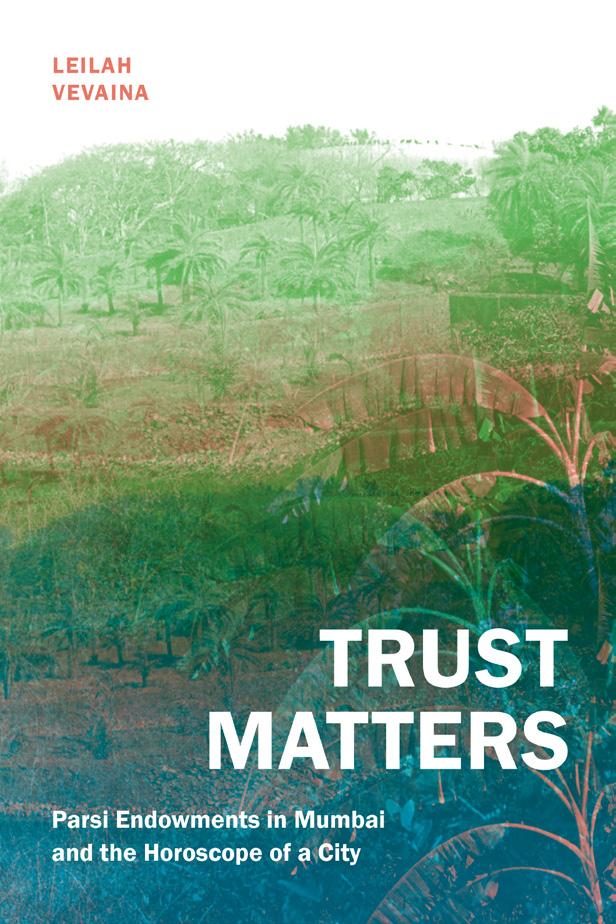
Parsi Endowments in Mumbai and the Horoscope of a City LEILAH VEVAINA
Although numbering fewer than 60,000 in a city of over 12 million, Mumbai’s Parsi community is one of the largest private landowners in the city due to its network of public charitable trusts. In Trust Matters Leilah Vevaina explores the dynamics and consequences of this conjunction of religion and capital, as well as the activities of giving, disputing, living, and dying it enables. As she shows, communal trusts are the legal infrastructure behind formal religious giving and ritual in urban India that influences communal life. Vevaina proposes the trusts as a horoscope of the city—a constellation of housing, temples, and other spaces providing possible futures. She explores the charitable trust as a technology of time, originating in the nineteenth century, one that structures intergenerational obligations for Mumbai’s Parsis, connecting past and present, the worldly and the sacred. By approaching Mumbai through the legal mechanism of the trust and the people who live within its bounds as well as those who challenge or support it, Vevaina offers a new pathway into exploring property, religion, and kinship in the urban global South.
Leilah Vevaina is Assistant Professor of Anthropology at The Chinese University of Hong Kong.
Terracene

A Crude Aesthetics SALAR MAMENI
In Terracene Salar Mameni historicizes the popularization of the scientific notion of the Anthropocene alongside the emergence of the global war on terror. Mameni theorizes the Terracene as an epoch marked by a convergence of racialized militarism and environmental destruction. Both the Anthropocene and the war on terror centered the antagonist figures of the Anthropos and the terrorist as responsible for epochal changes in the new geological and geopolitical world orders. In response, Mameni shows how the Terracene requires radically new engagements with terra (the earth), whose intelligence resides in matters such as oil and phenomena like earthquakes and fires. Drawing on the work of artists whose practices interrogate histories of settler-colonial and imperial interests in land and resources in Iran, Iraq, Yemen, Kuwait, Syria, Palestine, and other regions most affected by the war on terror, Mameni offers speculative paths into the aesthetics of the Terracene.
Salar Mameni is Assistant Professor of Ethnic Studies at the University of California, Berkeley.
December 2023
224 pages
Sociology / Urban Studies / Anthropology / Cultural Anthropology / Asian Studies / South Asia
Rights: World
August 2023
240 pages
Middle East Studies / Art and Visual Culture / Environmental Studies
Rights: World
87 Duke University Press dukeupress.edu
January 2024
456 pages
Art History
Rights: World
A View of Venice
Portrait of a Renaissance City
KRISTIN LOVE HUFFMAN, EDITOR
Jacopo de’ Barbari’s View of Venice, a woodcut first printed in the year 1500, presents a bird’s-eye portrait of Venice at its peak as an international hub of trade, art, and culture. An artistic and cartographic masterpiece of the Renaissance, the View depicts Venice as a vibrant, waterborne city interconnected by canals and bridges and filled with ornate buildings, elaborate gardens, and seafaring vessels. The contributors to A View of Venice: Portrait of a Renaissance City draw on a high-resolution digital scan of the over nine-foot-wide composite print to examine the complexities of this extraordinary woodcut and portrayal of early modern Venetian life. The essays show how the View constitutes an advanced material artifact of artistic, humanist, and scientific culture. They also outline the ways the print reveals information about the city’s economic and military power, religious and social infrastructures, and cosmopolitan residents. Featuring methodological advancements in the digital humanities, A View of Venice highlights the reality and myths of a topographically unique, mystical city and its place in the world. Contributors. Karen-edis Barzman, Andrea Bellieni, Patricia Fortini Brown, Valeria Cafà, Stanley Chojnacki, Tracy E. Cooper, Giada Damen, Julia A. DeLancey, Piero Falchetta, Ludovica Galeazzo, Maartje van Gelder, Jonathan Glixon, Richard Goy, Anna Christine Swartwood House, Kristin Love Huffman, Holly Hurlburt, Claire Judde de Larivière, Blake de Maria, Martina Massaro, Cosimo Monteleone, Monique O’Connell, Mary Pardo, Giorgio Tagliaferro, Saundra Weddle, Bronwen Wilson, Rangsook Yoon
Kristin Love Huffman is an independent scholar of the art, architectural, and urban history of Renaissance Venice and coeditor of Visualizing Venice: Mapping and Modeling Time and Change in a City

Beyond the Sovereign Self
Aesthetic Autonomy from the Avant-Garde to Socially Engaged Art
GRANT H. KESTER
In Beyond the Sovereign Self Grant H. Kester continues the critique of aesthetic autonomy begun in The Sovereign Self, showing how socially engaged art provides an alternative aesthetic with greater possibilities for critical practice. Instead of grounding art in its distance from the social, Kester shows how socially engaged art, developed in conjunction with forms of social or political resistance, encourages the creative capacity required for collective political transformation. Among others, Kester analyzes the work of conceptual artist Adrian Piper, experimental practices associated with the escrache tradition in Argentina, and indigenous Canadian artists such as Nadia Myer and Michèle Taïna Audette, showing how socially engaged art catalyzes forms of resistance that operate beyond the institutional art world. From the Americas and Europe to Iran and South Africa, Kester presents a historical genealogy of recent engaged art practices rooted in a deep history of cultural production, beginning with nineteenth-century political struggles and continuing into contemporary anticolonial resistance and other social movements.

January 2024
296 pages
Theory and Philosophy / Art and Visual Culture / Art Criticism and Theory
Rights: World x Chinese (s)
Grant H. Kester is Professor of Art History at the University of California, San Diego, author of The Sovereign Self: Aesthetic Autonomy from the Enlightenment to the Avant-Garde and The One and the Many: Contemporary Collaborative Art in a Global Context, and coeditor of Collective Situations: Readings in Contemporary Latin American Art, 1995–2010, all also published by Duke University Press.
88
Citizens of Photography
The Camera and the Political Imagination
CHRISTOPHER
PINNEY,
PHOTODEMOS COLLECTIVE, NALUWEMBE BINAISA, VINDHYA BUTHPITIYA, KONSTANTINOS KALANTZIS, ILEANA L. SELEJAN, AND SOKPHEA YOUNG, EDITORS
Citizens of Photography explores how photography offers access to forms of citizenship beyond those available through ordinary politics. Through contemporary ethnographic investigations of photographic practice in Nicaragua, Nigeria, Greece, India, Nepal, Sri Lanka, Bangladesh, and Cambodia, the PhotoDemos Collective traces the resonances between political representation and photographic representation. The authors emphasize photography as lived practice and how photography’s performative, transformative, and transgressive possibilities facilitate the articulation of new identities. They analyze photography ranging from family albums and social media to state and public archives, showing how it points to new destinations in the context of social movements, the aftermath of atrocity and civil war, and the legacies of past injustices. By foregrounding photography’s open-ended and contingent nature and its ability to subvert and reconfigure conventional political identifications, this volume demonstrates that as much as photography looks to the past, it points to the future, acting in advance of social reality.
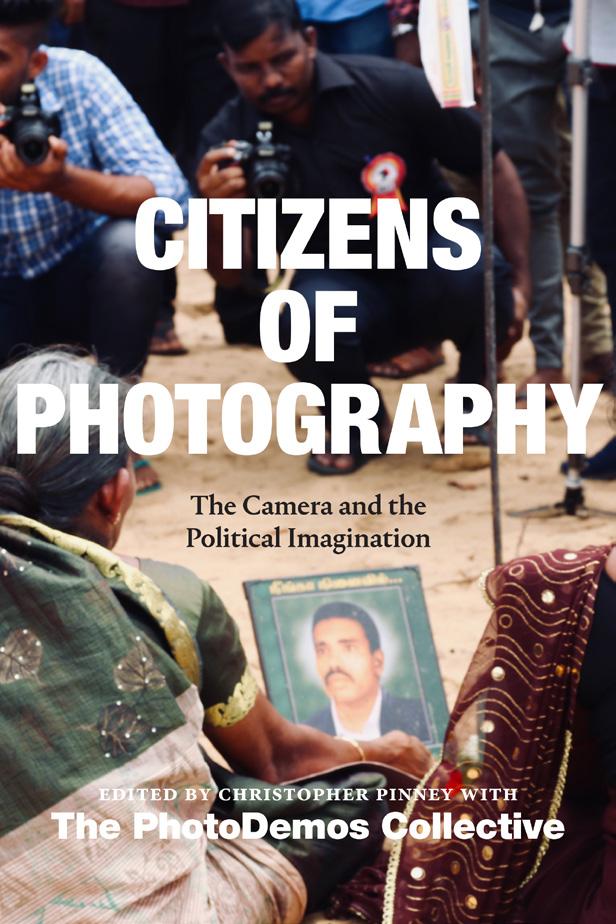
Christopher Pinney is Professor of Anthropology and Visual Culture at University College London and author of The Waterless Sea: A Curious History of Mirages Naluwembe Binaisa researches mobilities, belonging, and citizenship within Africa. Vindhya Buthpitiya is Associate Lecturer in Social Anthropology at the University of St Andrews. Konstantinos Kalantzis is Assistant Professor of Anthropology at the University of Thessaly. Ileana L. Selejan is Lecturer in Art History, Culture, and Society at the University of Edinburgh. Sokphea Young is an honorary Research Fellow at University College London.
September 2023
368 pages
Globalization and Neoliberalism / Anthropology / Cultural Anthropology / Art and Visual Culture / Photography Rights: World
89 Duke University Press dukeupress.edu
August 2023
176 pages
Gender and Sexuality / Queer Theory / History / Asian Studies / South Asia
Rights: World x S. Asia
Abundance
Sexuality’s History
ANJALI ARONDEKAR
In Abundance, Anjali Arondekar refuses the historical common sense that archival loss is foundational to a subaltern history of sexuality, and that the deficit of our minoritized pasts can be redeemed through acquisitions of lost pasts. Instead, Arondekar theorizes the radical abundance of sexuality through the archives of the Gomantak Maratha Samaj—a caste-oppressed devadasi collective in South Asia—that are plentiful and quotidian, imaginative and ordinary. For Arondekar, abundance is inextricably linked to the histories of subordinated groups in ways that challenge narratives of their constant devaluation. Summoning abundance over loss upends settled genealogies of historical recuperation and representation and works against the imperative to fix sexuality within wider structures of vulnerability, damage, and precarity. Multigeneric and multilingual, transregional and historically supple, Abundance centers sexuality within area, post/colonial, and anti/caste histories.
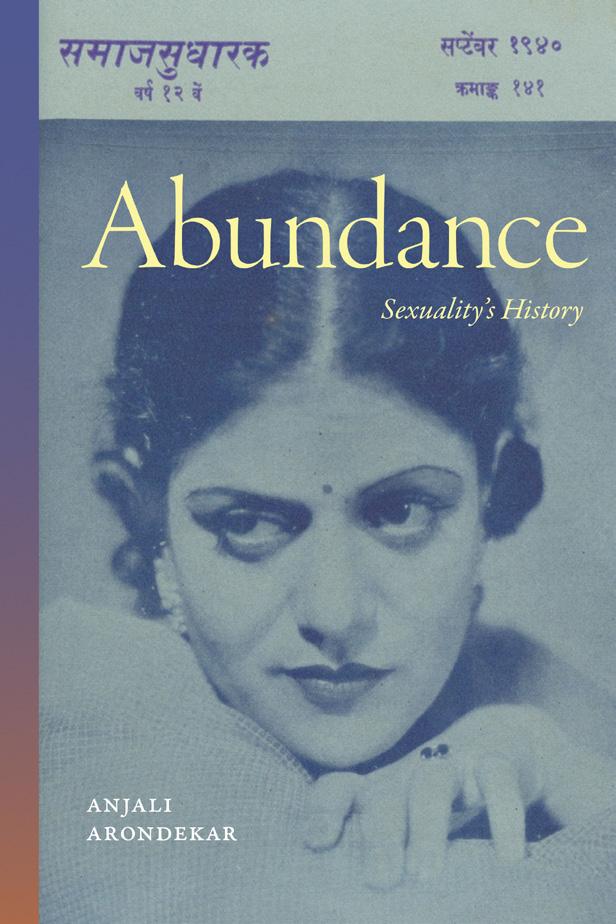
Anjali Arondekar is Professor of Feminist Studies at the University of California, Santa Cruz, and author of For the Record: On Sexuality and the Colonial Archive in India, also published by Duke University Press.
Violence of Democracy
Interparty Conflict in South India
RUCHI CHATURVEDI
In Violence of Democracy Ruchi Chaturvedi tracks the rise of India’s divisive politics through close examination of decades-long confrontations in Kerala between members of the Communist Party of India (Marxist) and supporters of the Hindu nationalist Rashtriya Swayam Sevak Sangh and the Bharatiya Janata Party. Drawing on ethnographic fieldwork and extensive archival research, Chaturvedi investigates the unique character of the conflict between the party left and the Hindu right. This conflict, she shows, defies explanations centering religious, caste, or ideological differences. It offers instead new ways of understanding how quotidian political competition can produce antagonistic majoritarian communities. Rival political parties mobilize practices of disbursing care and aggressive masculinity in their struggle for electoral and popular power, a process intensified by a criminal justice system that reproduces rather than mitigating violence. Chaturvedi traces these dynamics from the late colonial period to the early 2000s, illuminating the broader relationships between democratic life, divisiveness, and majoritarianism.

August 2023
272 pages
Postcolonial and Colonial Studies / Anthropology / Asian Studies / South Asia
Rights: World
Ruchi Chaturvedi is Senior Lecturer of Sociology at the University of Cape Town.
90
Making Gaybies
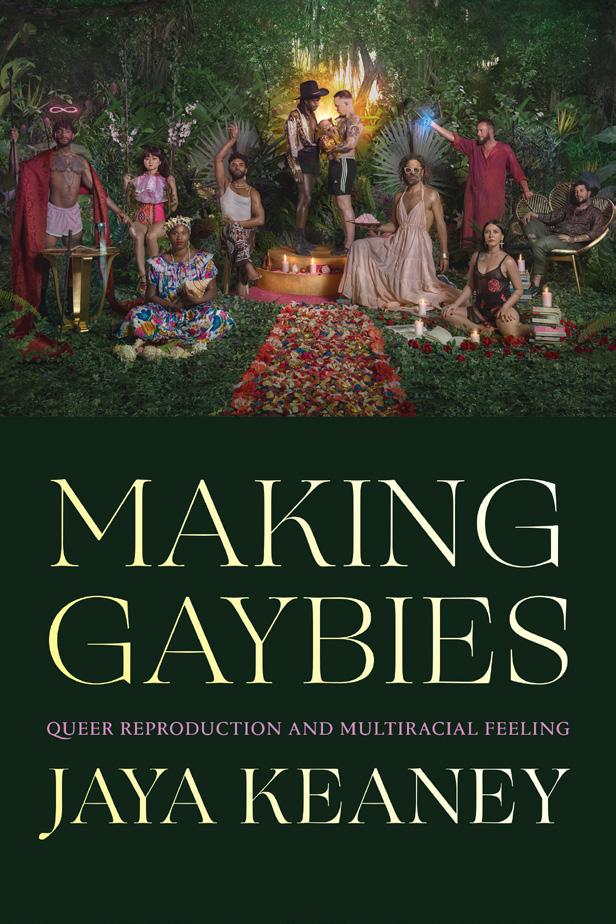
Queer Reproduction and Multiracial Feeling JAYA KEANEY
In Making Gaybies Jaya Keaney explores queer family making as a site of racialized intimacy. Drawing on interviews with queer families in Australia, Keaney traces the lived experiences of choice and constraint as these families seek to craft likeness with their future children and tell stories of chosen family made through love. Queer family building often involves multiracial and multicultural encounters, as intending parents take part in the global fertility industry. Keaney follows queer family making through reproductive technologies and highlights the confines of varied transnational reproductive markets and policies as well as changing formations of race, gender, sexuality, and kinship. Whether sharing the story of white gay men choosing Indian and Thai egg donors to make their surrogate-born children’s ethnicities visually distinct from their own or that of an Aboriginal lesbian and her white partner choosing a Cherokee donor from the United States to articulate a global Indigeneity, Keaney foregrounds the entwinement of reproduction, race, and affect. By focusing on queer family making, Keaney demonstrates how reproduction fosters a queer multiracial imaginary of kinship.
Jaya Keaney is Lecturer in Gender Studies at the University of Melbourne.
Together, Somehow
Music, Affect, and Intimacy on the Dancefloor LUIS MANUEL GARCIA-MISPIRETA
In Together, Somehow, Luis Manuel Garcia-Mispireta examines how people find ways to get along and share a dancefloor, a vibe, and a sound. Drawing on time spent in the minimal techno and house music subscenes in Chicago, Paris, and Berlin as the first decade of the new millennium came to a close, Garcia-Mispireta explains this bonding in terms of what he calls stranger-intimacy: the kind of warmth, sharing, and vulnerability between people that happens surprisingly often at popular electronic dance music parties. He shows how affect lubricates the connections between music and the dancers. Intense shared senses of sound and touch help support a feeling of belonging to a larger social world. However, as Garcia-Mispireta points out, this sense of belonging can be vague, fluid, and may hide exclusions and injustices. By showing how sharing a dancefloor involves feeling, touch, sound, sexuality, and subculture, Garcia-Mispireta rethinks intimacy and belonging through dancing crowds and the utopian vision of throbbing dancefloors.

Luis Manuel Garcia-Mispireta is Associate Professor in Ethnomusicology and Popular Music Studies at the University of Birmingham.
November 2023
240 pages
Queer Theory / Feminist Science Studies / Critical Ethnic Studies
Rights: World
August 2023
320 pages
Gender and Sexuality / LGBTQ Studies / Music / Ethnomusicology / Cultural Studies / Affect Theory
Rights: World
91 Duke University Press dukeupress.edu
September 2023
240 pages
Sociology / Activism /Environmental Studies
Rights: World
Petrochemical Planet
Multiscalar Battles of Industrial Transformation
ALICE MAH
In Petrochemical Planet Alice Mah examines the changing nature of the petrochemical industry as it faces the existential threats of climate change and environmental activism. Drawing on research from high-level industry meetings, petrochemical plant tours, and polluted communities, Mah juxtaposes the petrochemical industry’s destructive corporate worldviews with environmental justice struggles in the United States, China, and Europe. She argues that amid intensifying public pressures, a profound planetary industrial transformation is underway that is challenging the reigning age of plastics and fossil fuels. This challenge comes from what Mah calls multiscalar activism—a form of collective resistance that spans local, regional, national, and planetary sites and scales and addresses the interconnected issues of environmental justice, climate, pollution, health, extraction, land rights, workers’ rights, systemic racism, and toxic colonialism. Reflecting on the obstacles and openings for critical interventions in the petrochemical industry, Mah offers important insights into the possibilities for resistance and for developing alternatives to the reliance on fossil fuels.

Alice Mah is Professor of Urban and Environmental Studies at the University of Glasgow and author of Plastic Unlimited: How Corporations Are Fuelling the Ecological Crisis and What We Can Do about It
The Cunning of Gender Violence
Geopolitics and Feminism
LILA ABU-LUGHOD, REMA HAMMAMI, AND NADERA SHALHOUB-KEVORKIAN, EDITORS
August 2023
480 pages
Gender and Sexuality / Feminism and Women's Studies / Law / Human Rights / Anthropology / Cultural Anthropology
Rights: World
The Cunning of Gender Violence focuses on how a once visionary feminist project has folded itself into contemporary world affairs. Combating violence against women and gender-based violence constitutes a highly visible and powerful agenda enshrined in international governance and law and embedded in state violence and global securitization. Case studies on Palestine, Bangladesh, Iran, India, Pakistan, Israel, and Turkey as well as on UN and US policies trace the silences and omissions, along with the experiences of those subjected to violence, to question the rhetoric that claims the agenda as a “feminist success story.” Because religion and racialized ethnicity, particularly “the Muslim question,” run so deeply through the institutional structures of the agenda, the contributions explore ways it may be affirming or enabling rationales and systems of power, including civilizational hierarchies, that harm the very people it seeks to protect. Contributors. Lila Abu-Lughod, Nina Berman, Inderpal Grewal, Rema Hammami, Janet R. Jakobsen, Shenila Khoja-Moolji, Vasuki Nesiah, Samira Shackle, Sima Shakhsari, Nadera Shalhoub-Kevorkian, Dina M Siddiqi, Shahla Talebi, Leti Volpp, Rafia Zakaria
Lila Abu-Lughod is Buttenwieser Professor of Social Science at Columbia University. Rema Hammami is Associate Professor of Anthropology at the Institute of Women's Studies at Birzeit University. Nadera Shalhoub-Kevorkian is Professor of Criminology and Social Work at The Hebrew University and Chair in Global Law at Queen Mary University of London.
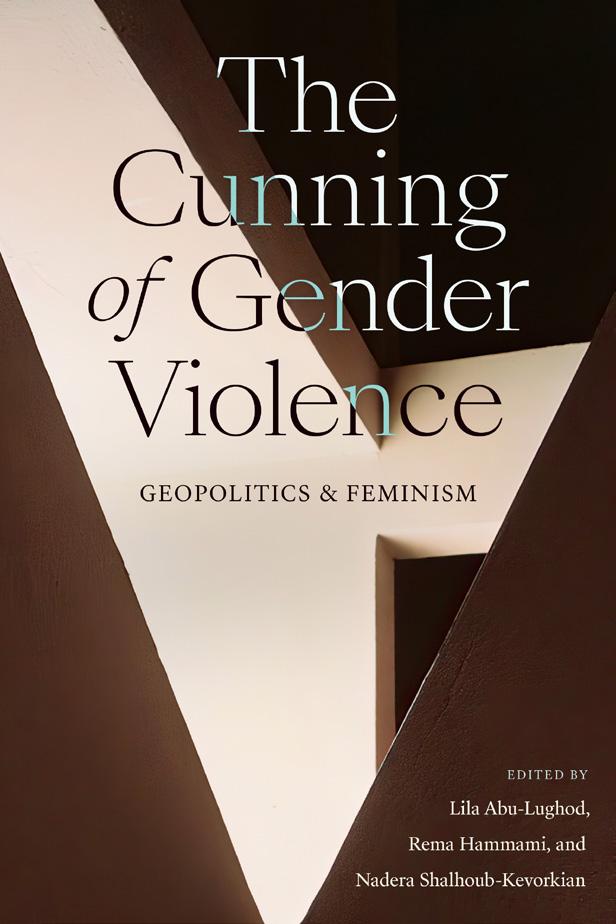
92
Archive of Tongues

An Intimate History of Brownness
MOON CHARANIA
In Archive of Tongues Moon Charania explores feminine dispossession and the brown diaspora through a reflection on the life of her mother. Drawing on her mother’s memories and stories of migration, violence, sexuality, queerness, domesticity, and the intimate economies of everyday life, Charania conceptualizes her mother’s tongue as an object of theory and an archive of brown intimate life. By presenting a mode of storytelling that is sensual and melancholic, piercing and sharp, Charania recovers otherwise silenced modes of brown mothers’ survival, disobedience, and meaning making that are often only lived out in invisible, intimate spaces, and too often disappear into them. In narrating her mother’s tongue as both metaphor for and material reservoir of other ways of knowing, Charania gestures to the afflictions, limits, and failures of feminist, queer, and postcolonial scholarly interrogations and the consequences of closing the archive of the brown mother.
Moon Charania is Associate Professor of International Studies and Comparative Women Studies at Spelman College and author of Will the Real Pakistani Woman Please Stand Up?: Empire, Visual Culture, and the Brown Female Body
The Pulse of the Earth
Political Geology in Java
ADAM BOBBETTE
In The Pulse of the Earth Adam Bobbette tells the story of how modern theories of the earth emerged from the slopes of Indonesia’s volcanoes. Beginning in the late nineteenth century, scientists became concerned with protecting the colonial plantation economy from the unpredictable bursts and shudders of volcanoes. Bobbette follows Javanese knowledge traditions, colonial geologists, volcanologists, mystics, Theosophists, orientalists, and revolutionaries to show how the earth sciences originate from a fusion of Western and non-Western cosmology, theology, anthropology, and geology. Drawing on archival research, interviews, and fieldwork at Javanese volcanoes and in scientific observatories, he explores how Indonesian Islam shaped the theory of plate tectonics, how Dutch colonial volcanologists learned to see the earth in new ways from Javanese spiritual traditions, and how new scientific technologies radically recast notions of the human body, distance, and the earth. In this way, Bobbette decenters the significance of Western scientists to expand our understanding of the evolution of planetary thought and rethinks the politics of geological knowledge.
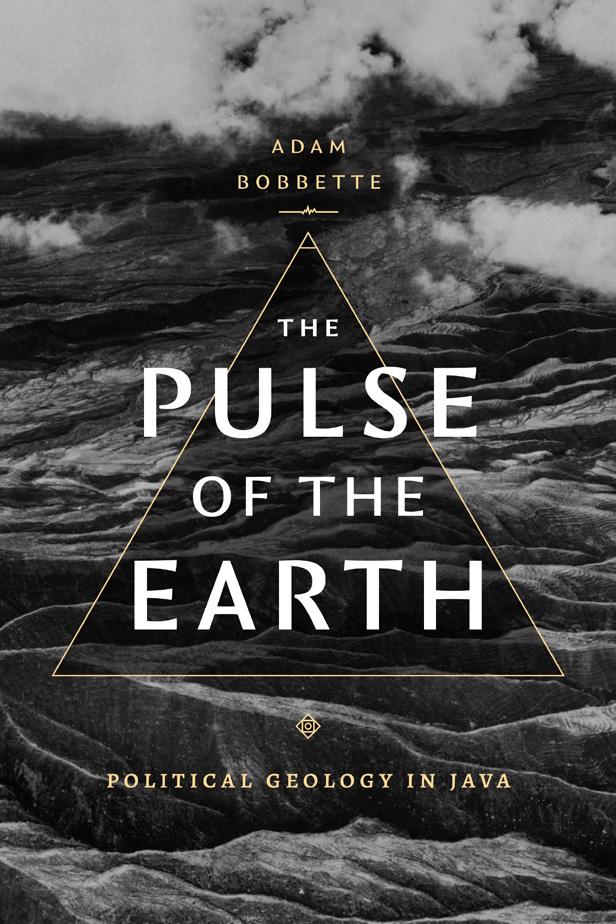
Adam Bobbette is Lecturer in Political Geology at the University of Glasgow and coeditor of Political Geology: Active Stratigraphies and the Making of Life
August 2023
192 pages
Gender and Sexuality / Feminism and Women's Studies / Queer Theory / Postcolonial and Colonial Studies
Rights: World
August 2023
248 pages
Geography / Asian Studies / Southeast Asia / Environmental Studies
Rights: World
93 Duke University Press dukeupress.edu
The Long War on Drugs

ANNE
L. FOSTER
Since the early twentieth century, the United States has led a global prohibition effort against certain drugs in which production restriction and criminalization are emphasized over prevention and treatment as means to reduce problematic drug usage. This “war on drugs” is widely seen to have failed, and periodically de-criminalization and legalization movements arise. Debates continue over whether the problems of addiction and crime associated with illicit drug use stem from their illicit status or the nature of the drugs themselves. In The Long War on Drugs Anne L. Foster explores the origin of the punitive approach to drugs and its continued appeal, despite its obvious flaws. She provides a comprehensive overview, focusing not only on a political history of policy developments, but also on changes in medical practice and knowledge of drugs. Foster also outlines the social and cultural changes prompting different attitudes about drugs, the racial, environmental, and social justice implications of particular drug policies, and the international consequences of US drug policy.
Anne L. Foster is Associate Professor of History at Indiana State University, author of Projections of Power: The United States and Europe in Colonial Southeast Asia, 1919–1941, and coeditor of The American Colonial State in the Philippines: Global Perspectives, both also published by Duke University Press. December
How Things Fall Apart
What Happened to the Cuban Revolution
ELIZABETH DORE
In How Things Fall Apart Elizabeth Dore reveals the decay of the Cuban political system through the lives of seven ordinary Cuban citizens. Born in the 1970s and 1980s, they recount how their lives changed over a tumultuous stretch of thirty-five years: first when Fidel Castro opened the country to tourism following the fall of the Soviet bloc; then when Raúl Castro allowed market forces to operate; and finally when President Trump’s tightening of the US embargo combined with the COVID-19 pandemic caused economic collapse. With warmth and humanity, they describe learning to survive in an environment where a tiny minority has grown rich, the great majority has been left behind, and inequality has destroyed the very things that used to give meaning to Cubans’ lives. In this book, everyday Cubans illuminate their own stories and the slow and agonizing decline of the Cuban Revolution.
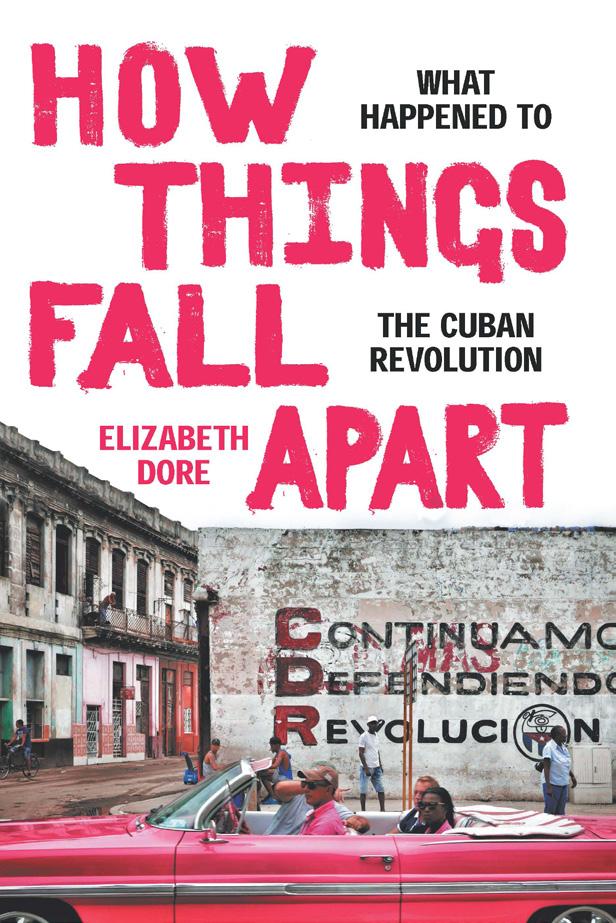
August 2023
352 pages
History / Latin American History / Latin American Studies / Caribbean Studies
Rights: World
Elizabeth Dore (1946–2022) was Professor Emeritus of Latin American History at the University of Southampton, author of Myths of Modernity: Peonage and Patriarchy in Nicaragua, and coeditor of Hidden Histories of Gender and the State in Latin America, both also published by Duke University Press.
94
2023
pages Medicine and Health / Public Health and Health Policy / Politics / History / U.S. History
World
224
Rights:
The Lettered Indian Race, Nation, and Indigenous Education in Twentieth-Century Bolivia
BROOKE LARSON
Bringing into dialogue the fields of social history, Andean ethnography, and postcolonial theory, The Lettered Indian maps the moral dilemmas and political stakes involved in the protracted struggle over Indian literacy and schooling in the Bolivian Andes. Brooke Larson traces Bolivia’s major state efforts to educate its unruly Indigenous masses at key junctures in the twentieth century. While much scholarship has focused on “the Indian boarding school” and other Western schemes of racial assimilation, Larson interweaves state-centered and imperial episodes of Indigenous education reform with vivid ethnographies of Aymara peasant protagonists and their extraordinary pro-school initiatives. Exploring the field of vernacular literacy practices and peasant political activism, she examines the transformation of the rural “alphabet school” from an instrument of the civilizing state into a tool of Aymara cultural power, collective representation, and rebel activism. From the metaphorical threshold of the rural school, Larson rethinks the politics of race and indigeneity, nation and empire, in postcolonial Bolivia and beyond.
Brooke Larson is Professor Emerita of History at Stony Brook University, author of Cochabamba, 15501900: Colonialism and Agrarian Transformation in Bolivia, also published by Duke University Press, and Trials of Nation Making: Liberalism, Race, and Ethnicity in the Andes, 1810–1910, and coeditor of Ethnicity, Markets, and Migration in the Andes: At the Crossroads of History and Anthropology
Politics in the Crevices
Urban Design and the Making of Property Markets in Cairo and Istanbul
SARAH EL-KAZAZ
In Politics in the Crevices, Sarah El-Kazaz takes readers into the world of urban planning and design practices in Istanbul and Cairo. In this transnational ethnography of neighborhoods undergoing contested rapid transformations, she reveals how the battle for housing has shifted away from traditional political arenas onto private crevices of the city. She outlines how multiple actors—from highly capitalized international NGOs and corporations to city dwellers, bureaucrats, and planning experts—use careful urban design to empower conflicting agendas, whether manipulating property markets to protect affordable housing or corner luxury real estate. El-Kazaz shows that such contemporary politicizations of urban design stem from unresolved struggles at the heart of messy transitions from the welfare state to neoliberalism, which have shifted the politics of redistribution from contested political arenas to design practices operating within market logics, ultimately relocating political struggles onto the city’s most intimate crevices. In so doing, she raises critical questions about the role of market reforms in redistributing resources and challenges readers to rethink neoliberalism and the fundamental ways it shapes cities and polities.

Sarah El-Kazaz is Associate Professor in the Department of Politics and International Studies, SOAS, University of London.
January 2024
496 pages
Native and Indigenous Studies / History Rights: World
November 2023
272 pages
Middle East Studies / Sociology / Urban Studies / Politics / Political Theory
Rights: World
95 Duke University Press dukeupress.edu
August 2023
296 pages
Middle East Studies / Postcolonial and Colonial Studies / Media Studies / Film
Rights: World
Gaza on Screen
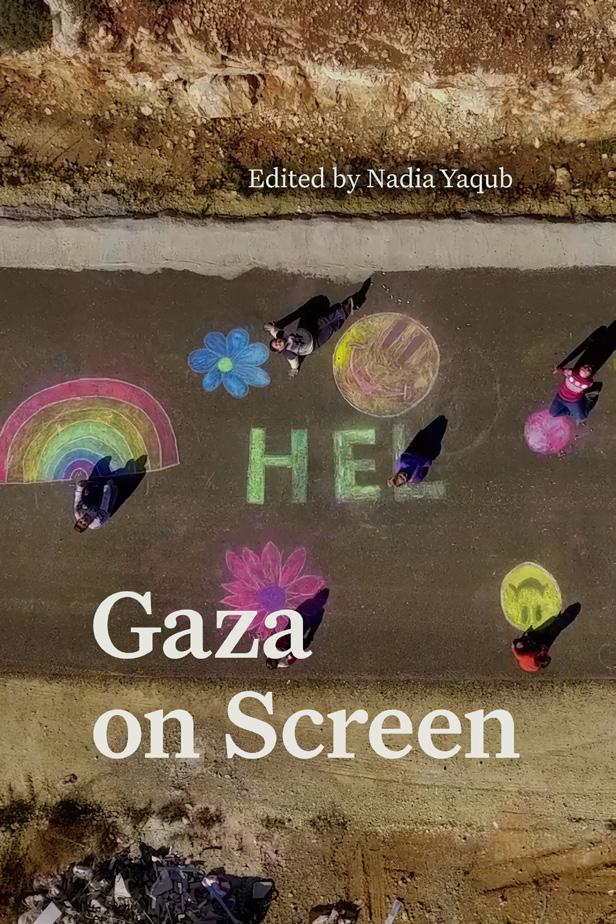
NADIA YAQUB, EDITOR
Gaza’s long association with resistance and humanitarian need has generated a complex and ever shifting range of visual material, comprising not just news reports and documentaries, but also essay, experimental, and fiction films, militant videos, and solidarity images. Contributors to Gaza on Screen, who include scholars and Gazan filmmakers, explore the practice, production, and impact of film and videos from and about the Gaza Strip. Conceptualizing screens—both large and small—as tools for mediation that are laden with power, the volume explores Gazan film and video in relation to humanitarianism and human rights, care, community, environment, mobility and confinement, and decolonization. The volume includes visual material ranging from solidarity broadcasts on Lebanese television, mid-twentieth-century British Pathé newsreels, and fiction films to breaking news, visuals of contemporary militant resistance, documentaries, and found footage films, arguing for a visual ecosystem in which differing types of film and video affect and inform each other. Throughout, Gaza on Screen demonstrates that screens shape and sustain relationships between Gaza and the world, and help to sustain the possibility of a different future. Contributors. Nayrouz Abu Hatoum, Shahd Abusalama, Samirah Alkassim, Basma Alsharif, Hadeel Assali, Azza El-Hassan, Hatim El-Hibri, Mohamed Jabaly, Ahmed Mansour, Arab Nasser, Tarzan Nasser, Kamran Rastegar, Viviane Saglier, Abdelsalam Shehada, Yaron Shemer, Rebecca L. Stein, Helga Tawil-Souri, Shaira Vadasaria, Nadia Yaqub
Nadia Yaqub is Professor of Asian and Middle Eastern Studies at the University of North Carolina, Chapel Hill; author of Pens, Swords, and the Springs of Art: The Oral Poetry Dueling of Palestinian Weddings in the Galilee and Palestinian Cinema in the Days of Revolution; and coeditor of Bad Girls of the Arab World
The Dark Tree

Jazz and the Community Arts in Los Angeles
Revised and Updated
STEVEN L. ISOARDI
September 2023
456 pages
Music / Jazz / American Studies / African American Studies and Black Diaspora
Rights: World
In the early 1960s, pianist Horace Tapscott gave up a successful career in Lionel Hampton’s band and returned to his home in Los Angeles to found the Pan Afrikan Peoples Arkestra, a community arts group that focused on providing community-oriented jazz and jazz training. Over the course of almost forty years, the Arkestra, together with the related Union of God’s Musicians and Artists Ascension collective, was at the forefront of the vital community-based arts movement in Black Los Angeles. Some three hundred artists—musicians, vocalists, poets, playwrights, painters, sculptors, and graphic artists—passed through these organizations, many ultimately remaining within the community and others moving on to achieve international fame. In The Dark Tree, Steven L. Isoardi draws on one hundred in-depth interviews with the Arkestra’s participants to tell the history of the important and largely overlooked community arts movement of Black Los Angeles. This revised and updated edition brings the story of the Arkestra up to date, as its ethos and aesthetic remain vital forces in jazz and popular music to this day.
Steven L. Isoardi is an independent scholar; editor of Songs of the Unsung: The Musical and Social Journey of Horace Tapscott, also published by Duke University Press, and Jazz Generations: A Life in American Music and Society; and coeditor of Central Avenue Sounds: Jazz in Los Angeles. He is the author of The Music Finds a Way: A PAPA/UGMAA Oral History of Growing Up in Postwar South Central Los Angeles
96
Virgin Mary and
the
Neutrino Reality in Trouble
ISABELLE STENGERS
TRANSLATED BY ANDREW GOFFEY
In Virgin Mary and the Neutrino, first published in French in 2006 and here appearing in English for the first time, Isabelle Stengers experiments with the possibility of addressing modern practices not as a block but through their divergence from each other. Drawing on thinkers ranging from John Dewey to Gilles Deleuze, she develops what she calls an “ecology of practices” into a capacious and heterogeneous perspective that is inclusive of cultural and political forces but not reducible to them. Stengers first advocates for an approach to sciences that would emphasize the way each should be situated by the kind of relationships demanded by what it attempts to address. This approach turns away from the disabling scientific/nonscientific binary—like the opposition between the neutrino and the Virgin Mary. An ecology of practices instead stimulates an appetite for thinking reality not as an arbiter but as what we can relate to through the generation of diverging concerns and obligations.

Isabelle Stengers is Emerita Professor of the Philosophy of Science at the Université libre de Bruxelles and is the author of numerous books, including Making Sense in Common: A Reading of Whitehead in Times of Collapse, Another Science is Possible: A Manifesto for Slow Science, and In Catastrophic Times: Resisting the Coming Barbarism Andrew Goffey is Associate Professor of Critical Theory and Cultural Studies at the University of Nottingham.
Habit's Pathways
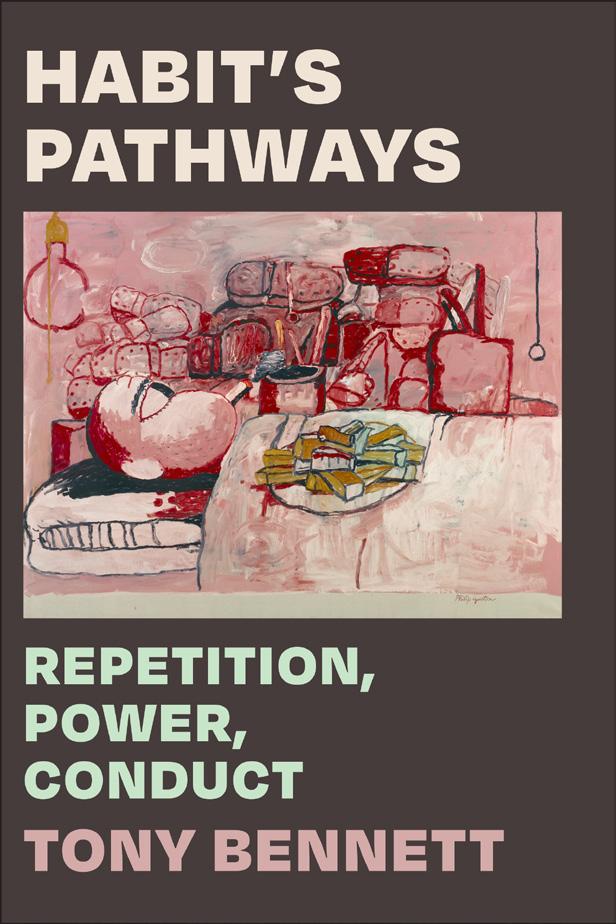
Repetition, Power, Conduct
TONY BENNETT
Habit has long preoccupied a wide range of theologians, philosophers, sociologists, psychologists, and neuroscientists. In Habit’s Pathways Tony Bennett explores the political consequences of the varied ways in which habit’s repetitions have been acted on to guide or direct conduct. Bennett considers habit’s uses and effects across the monastic regimens of medieval Europe, in plantation slavery and the factory system, through colonial forms of rule, and within a range of medicalized pathologies. He brings these episodes in habit’s political histories to bear on contemporary debates ranging from its role in relation to the politics of white supremacy to the digital harvesting of habits in practices of algorithmic governance. Throughout, Bennett tracks how habit’s repetitions have been articulated differently across divisions of class, race, and gender, demonstrating that although habit serves as an apparatus for achieving success, self-fulfillment, and freedom for the powerful, it has simultaneously served as a means of control over women, racialized peoples, and subordinate classes.
Tony Bennett is Emeritus Professor at the Institute for Culture and Society at Western Sydney University and Honorary Professor in the Humanities Research Centre at the Australian National University. Among his many books are Making Culture, Changing Society and, as coauthor, Collecting, Ordering, Governing: Anthropology, Museums, and Liberal Government
November 2023
264 pages
Science and Technology Studies / Critical Theory
Rights: World
September 2023
272 pages
Sociology / Social Theory / Theory and Philosophy / Critical Theory / Cultural Studies
Rights: World
97 Duke University Press dukeupress.edu
November 2023
304 pages
Theory and Philosophy / Marxism / History / Asian History / Asian Studies / East Asia Rights: World
Archaism and Actuality
Japan and the Global Fascist Imaginary HARRY HAROOTUNIAN
In Archaism and Actuality eminent Marxist historian Harry Harootunian explores the formation of capitalism and fascism in Japan as a prime example of the uneven development of capitalism. He applies his theorization of subsumption to examine how capitalism integrates and redirects preexisting social, cultural, and economic practices to guide the present. This subsumption leads to a global condition in which states and societies all exist within different stages and manifestations of capitalism. Drawing on Japanese philosophers Miki Kiyoshi and Tosaka Jun, Marxist theory, and Gramsci’s notion of passive revolution, Harootunian shows how the Meiji Restoration of 1868 and its program dedicated to transforming the country into a modern society exemplified a unique path to capitalism. Japan’s capitalist expansion in the nineteenth and twentieth centuries, rise as an imperial power, and subsequent transition to fascism signal a wholly distinct trajectory into modernity that forecloses any notion of a pure or universal development of capitalism. With Archaism and Actuality, Harootunian offers both a retheorization of capitalist development and a reinterpretation of epochal moments in modern Japanese history.
Harry Harootunian is Max Palevsky Professor of History Emeritus at the University of Chicago and Associate Research Scholar at the Weatherhead East Asian Institute at Columbia University. He is the author of numerous books, most recently, The Unspoken as Heritage: The Armenian Genocide and Its Unaccounted Lives, also published by Duke University Press.
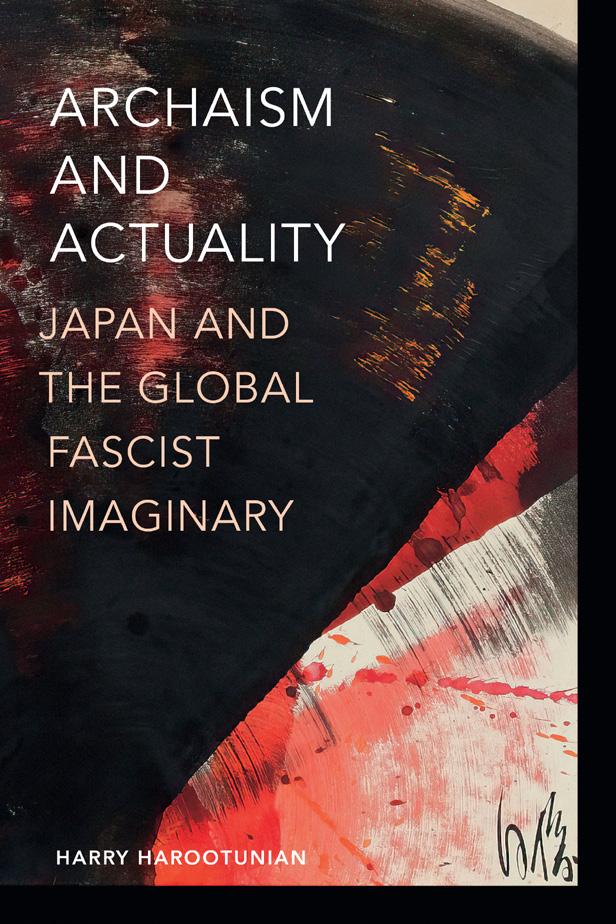
98
Baylor University Press

About Baylor University Press
Baylor University Press is the academic book publishing arm of Baylor University. Established in 1897, Baylor University Press publishes around forty new academic titles each year. The Press publishes technical scholarship for researchers, tools for teachers, and textbooks for students. All Press publications under our primary academic imprint enjoy rigorous peer review and project development.
The list focuses on scriptural, historical, and theological studies of Christianity, Judaism, and Islam. Press publications also investigate the relationship between religion and politics, the sciences, sociology, anthropology, literature, philosophy, history, and culture.
baylorpress.edu
A Storm of Images
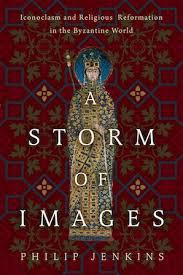
Iconoclasm and Religious Reformation in the Byzantine World PHILIP JENKINS
In the eighth century, the Byzantine Empire began a campaign to remove or suppress sacred images that depicted Christ, the Virgin, or other holy figures, whether in paintings, mosaics, murals, or other media. In some cases, the campaign extended to breaking or wrecking images through what became known as iconoclasm. Over the following years, the emperors' zealous movement involved other acts that closely foreshadowed the Reformation movement that would sweep Western Europe in the sixteenth century. Like that later Reformation, iconoclasm marked an authentic revolution in religious sensibility, with all that implied for theology, culture, and visual perceptions of holiness. This was a pivotal moment in the definition of Christianity and its relationship to the material creation. It was also a time of critical encounters with the other Abrahamic religions of Judaism and Islam.
With A Storm of Images, Philip Jenkins offers a compelling retelling of the saga of how the iconoclastic movement detonated ferocious controversy within the church and secular society as icon supporters challenged the image breakers. Decades of internal struggle followed, marked by rebellions and civil wars, purges and persecutions, plotting and coups d’état. After their cause triumphed, image supporters made the cult of icons ever more central to the faith of Orthodox Christianity. Iconoclasm marked a watershed in the history of Late Antiquity and the Early Middle Ages, and it contributed to Western attempts to establish new empires. The questions raised during these struggles are all the more relevant at a time when such controversy rages over public depictions of history and the removal of statues, monuments, and names associated with hated figures. As in those earlier times, debates over images serve as vehicles for authentic cultural revolutions.
Philip Jenkins is Distinguished Professor of History at Baylor University. He is also the author of Fertility and Faith: The Demographic Revolution and the Transformation of World Religions
September 2023
287 pages
Religion / Christianity / History
Rights: World
99
April 2024
640 pages
Religion / Christianity / Anglican
Rights:World
Anglican Identities
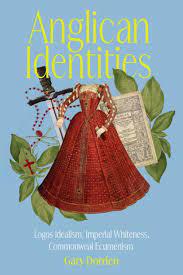
Logos Idealism, Imperial Whiteness, Commonweal Ecumenism
GARY DORRIEN
The Anglican Communion currently finds itself at an inflection point as it weighs its future prospects in light of discordant social, political, ecclesiological, and theological commitments. In this intellectual and political history of Anglicanism, Gary Dorrien shows that the Communion’s present challenges are the upshot of a centuries-old clash of Anglican identities. Tracing the narrative of Anglicanism from its ancient and medieval origins through the English Reformation and up to the last quarter of the twentieth century, Dorrien argues that Anglican Christianity is at once an ecumenical project, residing at the halfway point between Roman Catholicism and Protestantism, a theological movement informed by a brand of idealism centered in the incarnational faith of Logos theology, and an imperial enterprise complicit in the racist sickness of Western civilization.
A book long in the making, Anglican Identities offers a comprehensive, informative, and sobering account of the story of Anglicanism. Dorrien covers the key figures, periods, movements, and theological concerns from the Communion’s history, framing them in an interpretation of Anglican Christianity informed by decades in the classroom and his unique liberal-liberationist and activist reading of theology, ethics, and philosophy of religion.
Dorrien contends that Anglicanism has been sort-of ecumenical from the beginning, with a radical ecumenical aspirational vision, and in its liturgies and teachings has embodied and enacted an idealist approach to the claims of the Christian theological tradition. But Dorrien urges that these features of the Anglican story are deeply at odds with English Anglicanism’s entanglement with white colonialism. Indeed, in Dorrien’s telling, this antinomy between its identity as an ecumenically-generous religion of the incarnate Logos and its willing involvement in white supremacy is at the very heart of Anglican Christianity.
Gary Dorrien is Reinhold Niebuhr Professor of Social Ethics at Union Theological Seminary and Professor of Religion at Columbia University. He is also the author of In a Post-Hegelian Spirit: Philosophical Theology as Idealistic Discontent

100
Desire
MICHAEL O'SIADHAIL
Critically acclaimed and award-winning poet Micheal O'Siadhail's Desire is a quartet of poems which addresses the pressing global concerns of our times. He describes the devastating effects of the Covid-19 pandemic, how it spread worldwide, paralyzing our society and instilling daily fear of death, particularly in older people. Hospitals were unable to cope, restaurants and businesses were closing, workers laid off, schools and universities taught remotely, and few weddings or funerals could take place throughout a pandemic which he sees as ultimately reflecting our relationship to the damaged environment and to climate change. The current ecological crisis is rooted in new reckless patterns of rapacity which threaten our habitat as our flawed stewardship has led to global warming, heatwaves, raging fires, and hurricanes. Still, we fail to curb our greed. Our need for comfort, convenience, and instant communication on the internet, which began as an idealistic dream of making knowledge universal, has resulted in an overconsumption that further harms our planet, a consumerism driven by algorithms and internet surveillance.
It is time to regain a more modest perspective on our part in the natural world and learn again to be better forebears for the generations to come, responsible stewards of the earth we share. A greater sense of our role as humble, trusted custodians can free us for wonder and praise and allow us to re-find sources of meaning worthy of life-enhancing desires. O'Siadhail affirms with realism, imagination, and inspiring wisdom how our human desires and longings can open up ways through our unprecedented global challenges.
Micheal O’Siadhail is an internationally acclaimed poet whose works include The Five Quintets, Collected Poems, One Crimson Thread, and Testament
October 2023
128 pages
Poetry / Subjects & Themes / Inspirational & Religious
Rights: World

101 Baylor University Press baylorpress.org
October 2023
296 pages
Religion / Christian Theology / Ethics
Rights: World
Ordinary Faith in Polarized Times
Justification and the Pursuit of Justice
AMY CARR & CHRISTINE HELMER
Christians in the United States and around the world are politically polarized today, unable to speak to one another across deep divisions regarding urgent social issues. Ordinary Faith in Polarized Times: Justification and the Pursuit of Justice addresses this dire reality by offering a theological framework for Christian justice-seeking. Amy Carr and Christine Helmer draw on Paul’s theology to center the idea of justification by faith in Christ as the primary ground of Christian belonging and community.

This approach yields a theology of ordinary faith that resists the temptation to equate Christian identity with the performance of a heroic "here I stand" posture against moral and political positions felt to be inimical to a properly Christian life. An ordinary faith situates Christian identity on a baptismal belonging to Christ. Baptism draws Christians into the messy process of discerning together the shape of justice in and through the Beloved Community. With justification by faith as the touchstone of Christian unity, Ordinary Faith in Polarized Times reveals how Christians who inhabit different ethical and political positions can navigate the disorientations and reorientations that arise when they debate what justice-seeking looks like from within the body of Christ.
Carr and Helmer articulate ways that justification by faith grounds Christian practices of affective listening and storytelling, even on the most contentious ethical questions today, with the hope that mutual conversation in and through the Beloved Community can get Christians who disagree oriented towards each other again for the good of the world.
Amy Carr is Professor of Religious Studies at Western Illinois University. Christine Helmer is Peter B. Rizma Professor of Humanities at Northwestern University.

102
Qohelet
Searching for a Life Worth Living
DEBRA BAND & MENACHEM FISCH
How to live a life of wisdom and fulfillment in a far-from-perfect world? Philosopher Menachem Fisch and artist Debra Band together probe Qohelet’s inquiry into the value of life "under the sun" in this brilliant work—the first illuminated manuscript of the entire biblical text, the first philosophical analysis tracing the coherent path of this biblical thinker’s full argument. Whereas modern readers influenced by the famous declaration "vanity, vanity, all is vanity" from the 1611 King James Bible have commonly understood that Qohelet found only futility and hopelessness in human life, Fisch restores the literal meaning, "vapor," to Qohelet’s key word, hevel, with implications that reveal Qohelet’s path to wisdom and even serenity. Through linguistic precision and careful unfolding of the book’s philosophical argument, Fisch uncovers Qohelet’s twin concerns: life is short, and situated as we are, far below the heavens, we can never be assured of comprehending our world, or understanding divine will and intent. He reveals Qohelet’s understanding that since we can never fully predict or understand our fortunes or the heritage we leave behind us, the best we can do is to live our lives fully, relating to others attentively, always aware of the limits of human life.

In her glowing, immersive, and discursive illuminated paintings of the entire text, Band imagines Qohelet’s teachings, employing the grandest of palaces, the Alhambra, as the central metaphor for the beauty and impermanence of human life and accomplishments. She fills its halls and gardens with often surprising imagery, symbolism, and related poetry, creating a visual midrash that reveals the relationship of Qohelet’s thought to other biblical texts and Jewish lore and its reverberations across the centuries and cultures of Western civilization, from ancient Israel to today’s America. Each illuminated page is complemented by lucid commentary explaining its full meaning. Renowned scholars Ellen F. Davis and Moshe Halbertal crown the work with a penetrating foreword and preface.
Debra Band draws upon her love of both the manuscript arts and the Jewish textual tradition in her acclaimed illuminated manuscripts. She is the author and illuminator of The Song of Songs: The Honeybee in the Garden (JPS, 2005), I Will Wake the Dawn: Illuminated Psalms (with Arnold J. Band) (JPS, 2007), Arise! Arise! Deborah, Ruth and Hannah (with Arnold J. Band) (Honeybee in the Garden, 2012), and Kabbalat Shabbat: The Grand Unification (with Raymond P. Scheindlin) (Honeybee in the Garden, 2016), among other works. Her paintings have been widely exhibited across the United States and Canada. She resides in Potomac, Maryland, with her husband, Michael Diamond, MD, and menagerie. Menachem Fisch is Joseph and Ceil Mazer Professor Emeritus of History and Philosophy of Science at Tel Aviv University, TAU codirector of the Frankfurt–Tel Aviv Center for Religious and Interreligious Studies, and senior fellow of the Goethe University Frankfurt’s Forschungskolleg Humanwissenschaften. He is author of The View from Within: Normativity and the Limits of Self-Criticism (with Y. Benbaji) (Notre Dame, 2011), Creatively Undecided: Toward a History and Philosophy of Scientific Agency (Chicago, 2017), and Covenant of Confrontation: A Study of Non-Submissive Religiosity in Rabbinic Literature (Hebrew) (Bar-Ilan, 2019).
July 2023
208 pages
Religion / Judaism / Sacred Writings
Rights: World
103 Baylor University Press baylorpress.org
October 2023
230 pages
Religion / Christianity / History
Rights: World
Sola Scriptura
Scripture's Final Authority in the Modern World BEN WITHERINGTON III


In modern times, evangelical Protestants have advocated for the belief that the Bible is the only real standard of truth and true Christian praxis for the church. But is this how the early Jews and Christians, who wrote the biblical books, viewed their sacred texts? And what counted as those sacred texts? Furthermore, there is often a lack of clarity as to what is meant by the famous phrase that became a motto of the German Reformation: sola scriptura. Does it mean that the Bible is the only authority for Christian faith and practice, or does it mean the Bible is the final authority, allowing non-biblical traditions, human reason, and perhaps even experience to have some authority in the church?
With this magisterial study, Ben Witherington III invites readers to go back to the time of the writing of the Bible and look at what is said about the sacred texts with a specific focus on how the authority of such texts was viewed. Witherington then walks through Christian history until the point where the phrase sola scriptura actually appears as an authority claim of some kind. Surprisingly, it does not show up until the fourteenth century A.D. and not in the writings of a Protestant. From there, Witherington examines how the phrase continued to be used in the various Reformations and into the modern era. The story of Sola Scriptura also involves the rise of science, the effect of the Enlightenment, and changes in views about human sexuality that have affected the discussion of the Bible’s authority in various ways.
Students of Scripture, budding scholars, pastors, and laity alike stand to benefit from this book as Christians of all stripes are confronted by the same crises: a profound historical amnesia that is affecting even churches that are bibliocentric; the general chaos in Western culture that has further alienated younger generations from the church and angered the older generations who still attend church; and the increasing biblical illiteracy in the church, including in its pulpits, which has led to churches taking their signals and sense of direction from the culture rather than the biblical witness itself. Such crises will not be overcome without a serious coming to grips with the Bible, its history, and its authority for the Christian life.
Ben Witherington III is Professor of New Testament for Doctoral Studies, Asbury Theological Seminary. His publications include Troubled Waters: Rethinking the Theology of Baptism (2007), Making a Meal of It: Rethinking the Theology of the Lord's Supper (2007), The Living Word of God: Rethinking the Theology of the Bible (2007), What's in the Word: Rethinking the Socio-Rhetorical Character of the New Testament (2009), and The Problem with Evangelical Theology: Testing the Exegetical Foundations of Calvinism, Dispensationalism, Wesleyanism, and Pentecostalism, Revised and Expanded Edition (2015).
104
The Lord by Wisdom Founded the Earth

Creation and Covenant in Old Testament Theology
KATHARINE J. DELL
In Proverbs, Wisdom is personified as a woman who is with God at the creation of the world, delighting in what God has made. In Job, God appears in theophany and describes the wonders of the earth and heavens. There are thus revealed detailed descriptions of God’s work in creation in the wisdom literature. Key themes emerge of the foundation of the earth, its division from the heavens and the waters, God’s provision of all of nature as well as human and animal life, God’s relationship to the world, and the ethics and morality of our human response. There is also a wealth of covenant language that includes creation and links up with wisdom texts too. This is epitomized in Noah’s covenant with God and the sign of the rainbow. In The Lord by Wisdom Founded the Earth, Katharine Dell illuminates the Old Testament theological themes of creation and covenant, interpreting them through the lens of wisdom. Regarding creation, Dell shifts attention from the Genesis accounts, allowing a fresh reading from texts in Proverbs, Job, and Ecclesiastes, through which subsequently Genesis and certain “creation” Psalms are assessed for similarities and differences. This approach allows the creation theme to be prioritized in new ways and then brought into dialogue with covenant ideas, leading to a reconsideration of Genesis 9, with its profound image of the rainbow as a sign within creation of the covenant between God and the world, and various prophetic texts—passages wherein the close symbiosis of covenant with creation has been overlooked. Furthermore, a “cosmic covenant” emerges over time, a covenant of peace that will characterize the eschatological age, as found in some later prophetic literature. Dell contends that wisdom literature is often misrepresented for its lack of reference to covenant, demonstrating key relations through intertextual parallels from the Psalms and Deuteronomy. The figure of Wisdom in Proverbs 3 and 8, in the emphases on relationship and communication, anticipates the ultimate merging of themes of Wisdom, creation, covenant, and Torah in later apocryphal texts. Likewise, Dell also suggests that Solomon emerges as the canonical figurehead of wisdom’s “covenant” with humanity and the world.
October 2023
252 pages
Religion
Rights: World
105 Baylor University Press baylorpress.org
Katharine Dell is Read in Old Testament Literature and Theology at the University of Cambridge.














 BOYD COTHRAN AND ADRIAN SHUBERT
BOYD COTHRAN AND ADRIAN SHUBERT
 MBAYE LO AND CARL W. ERNST
MBAYE LO AND CARL W. ERNST

 SARAH E. JOHNSON
SARAH E. JOHNSON


 MICHAEL MUHAMMAD KNIGHT
MICHAEL MUHAMMAD KNIGHT


 LARRY D. GRAGG
LARRY D. GRAGG







 HELENE WELDT-BASSON
HELENE WELDT-BASSON












 DAVID K. SEITZ
DAVID K. SEITZ







 ANGELA WANHALLA
ANGELA WANHALLA




































 DREW
DREW

 LARA MONTESINOS COLEMAN
LARA MONTESINOS COLEMAN

























































